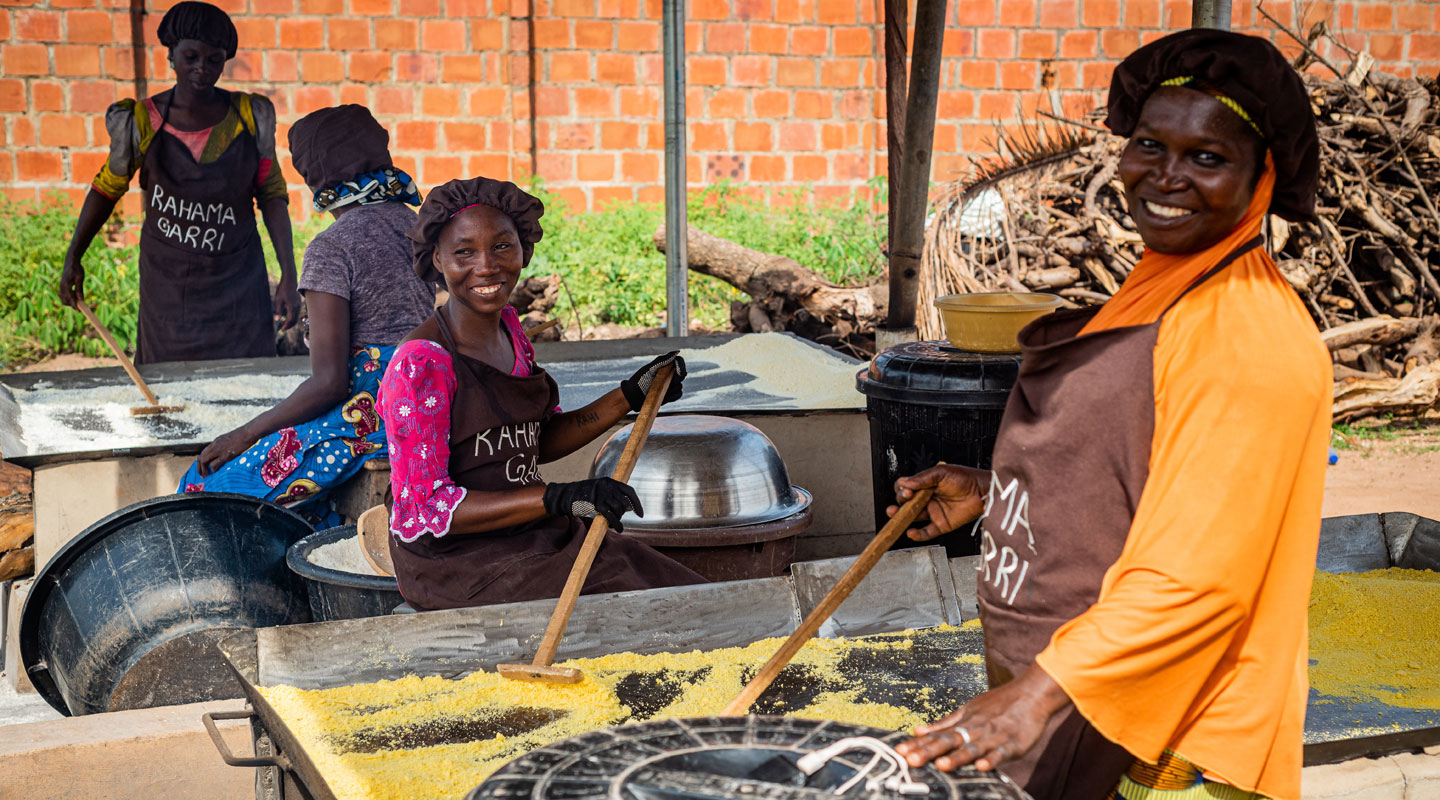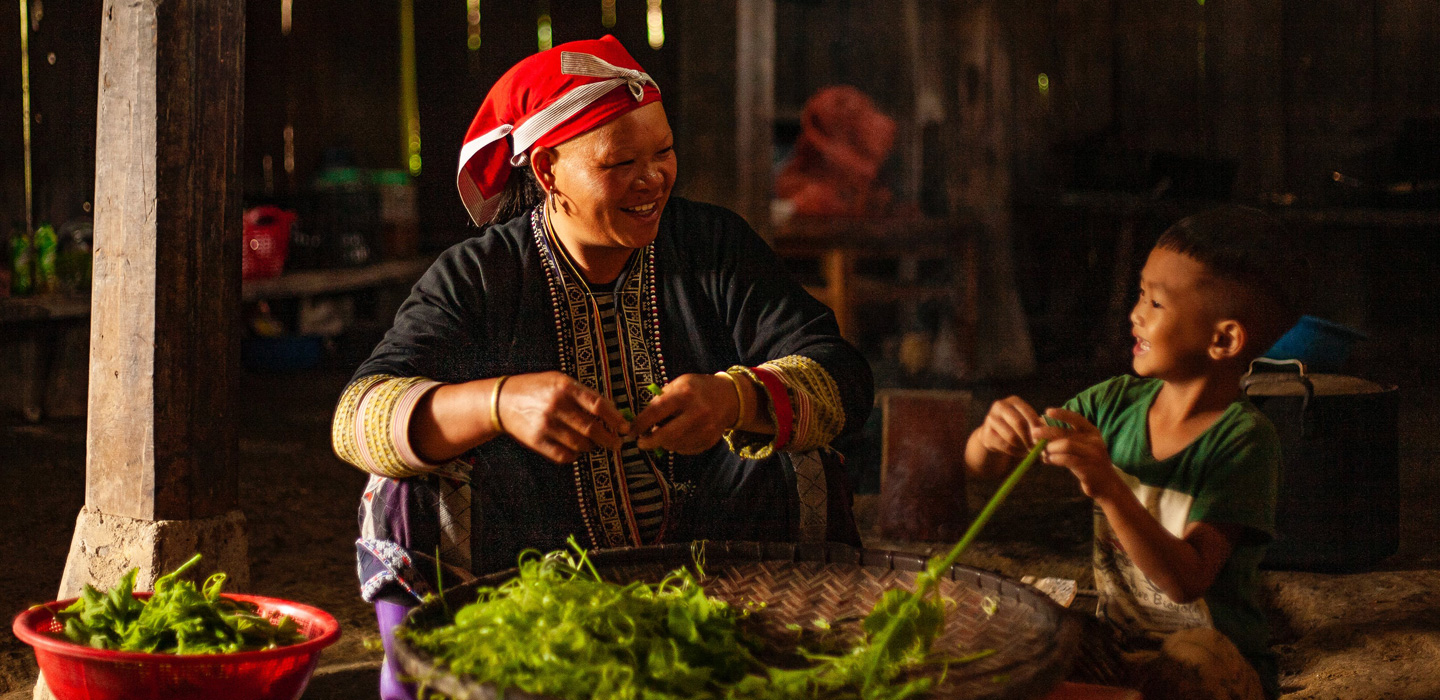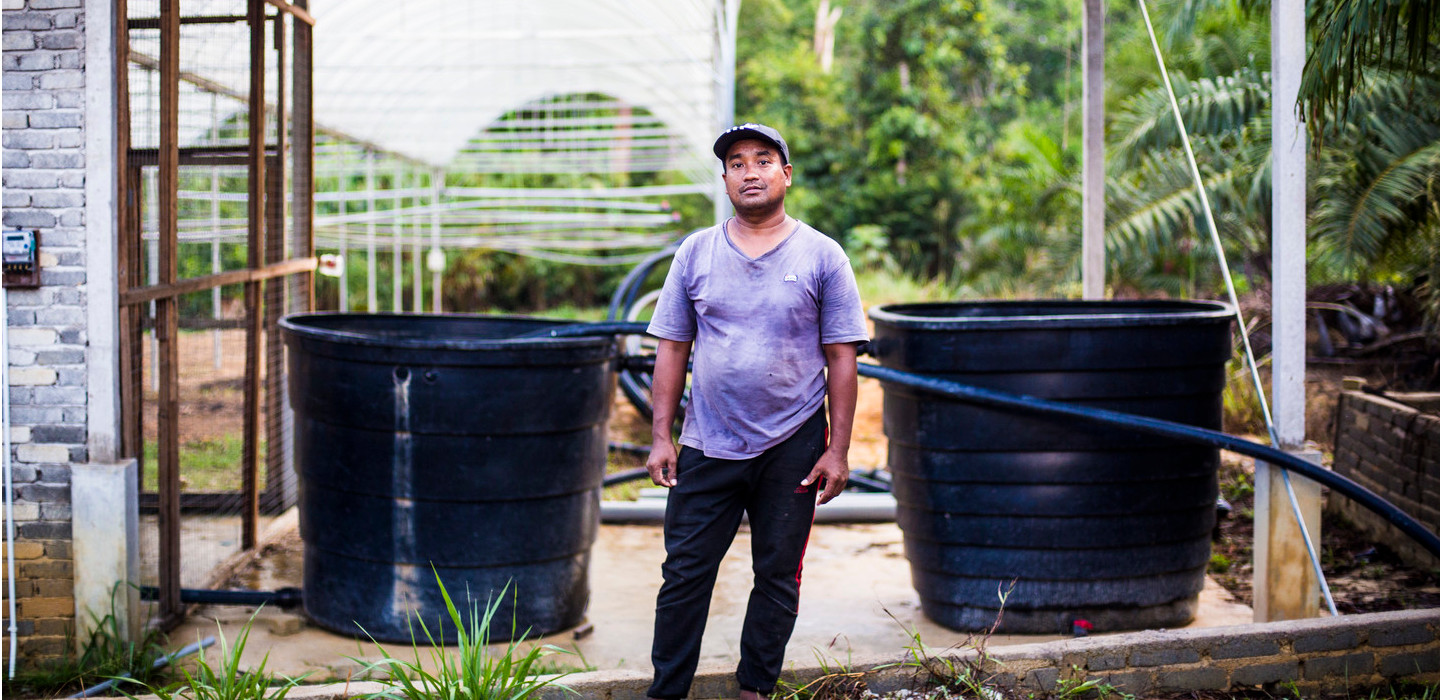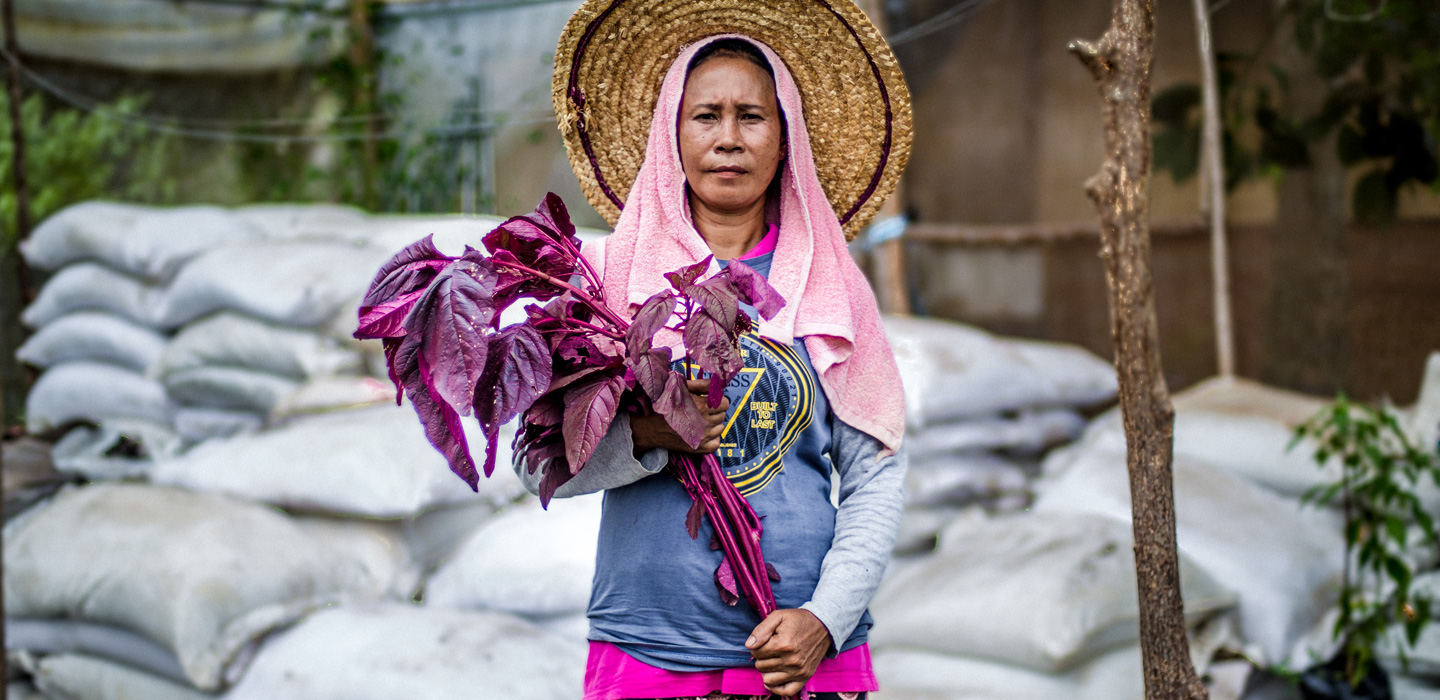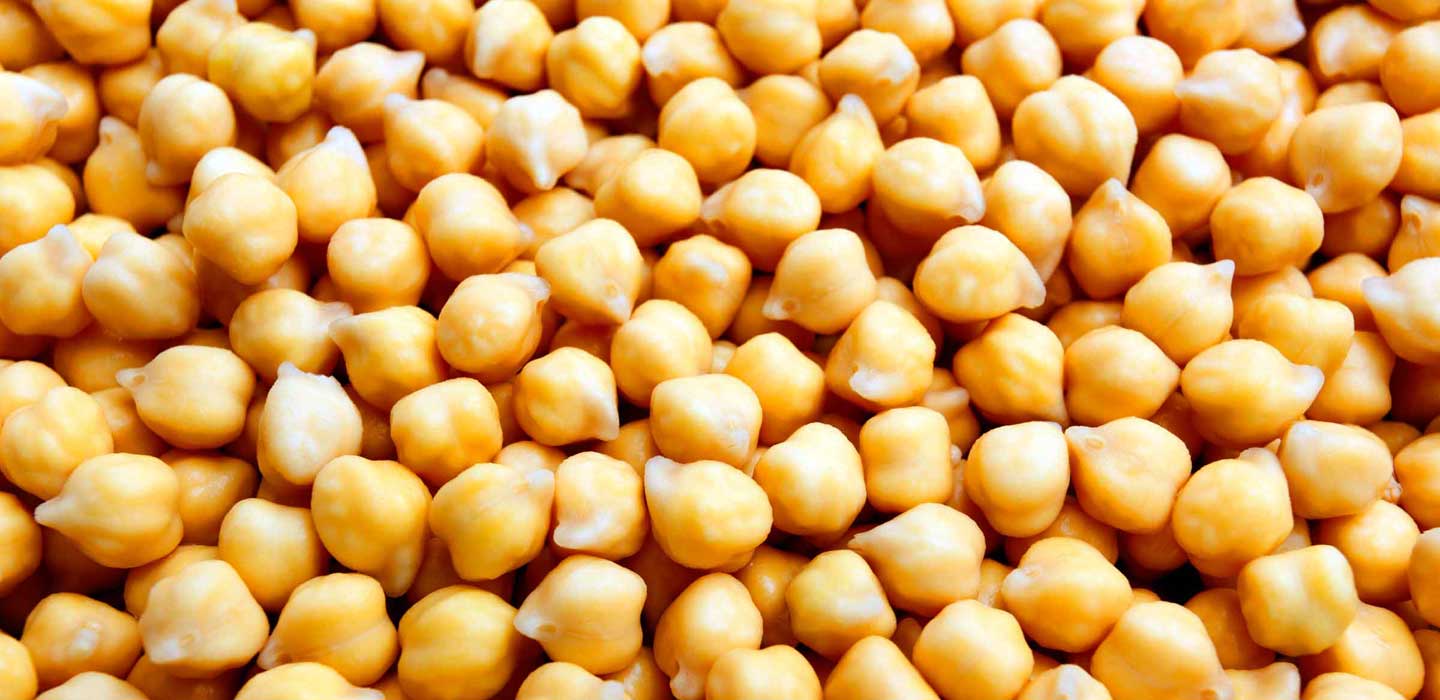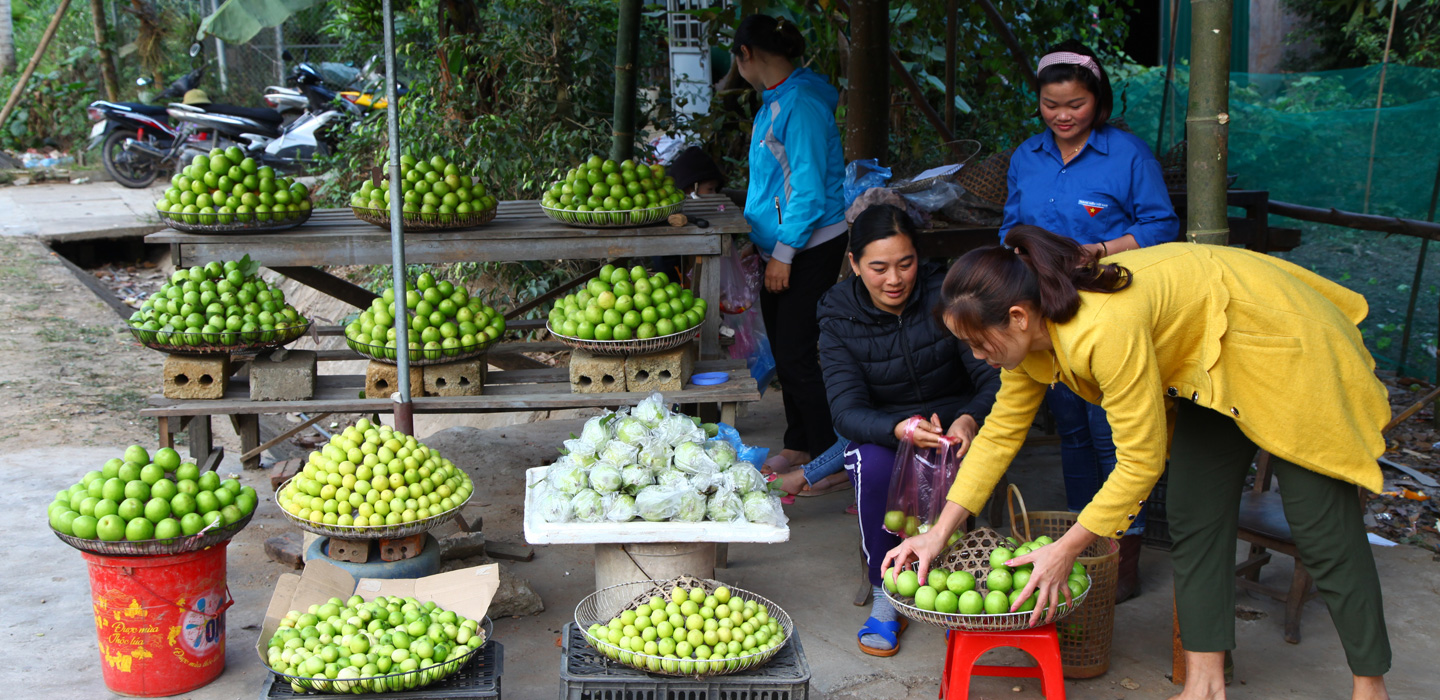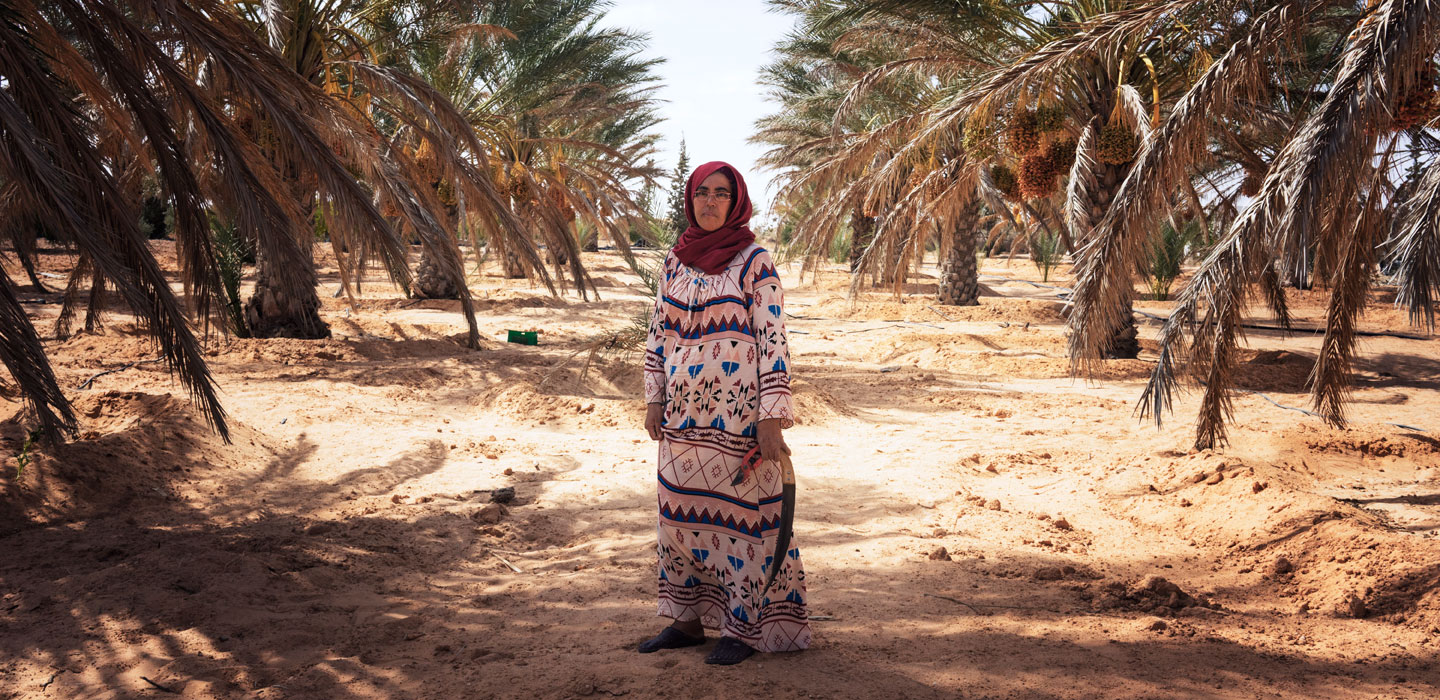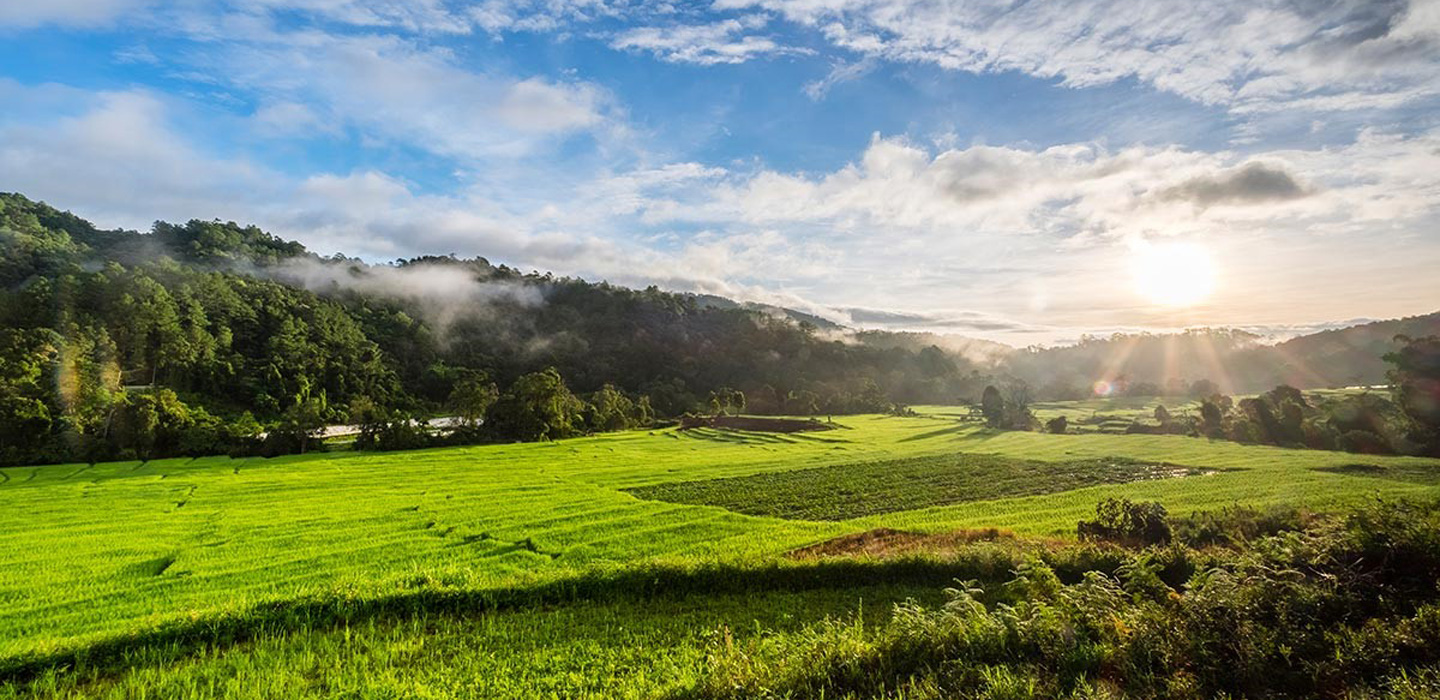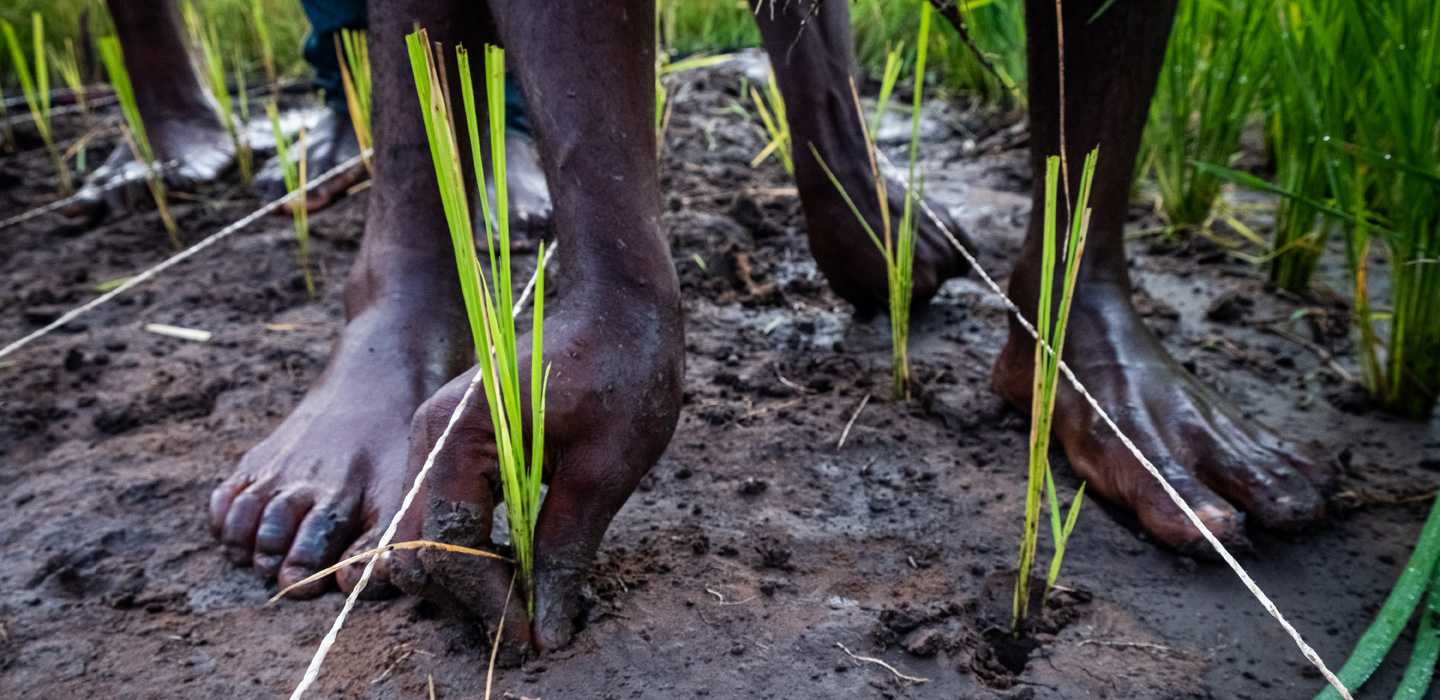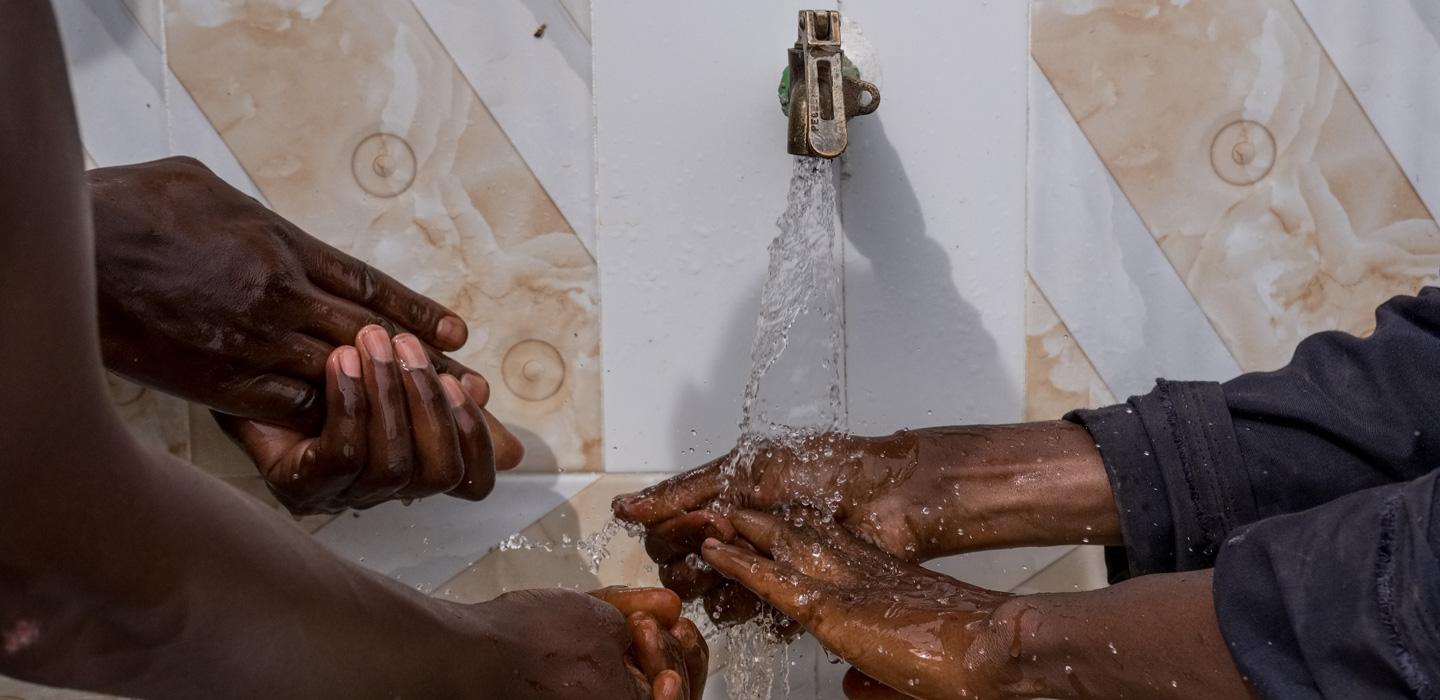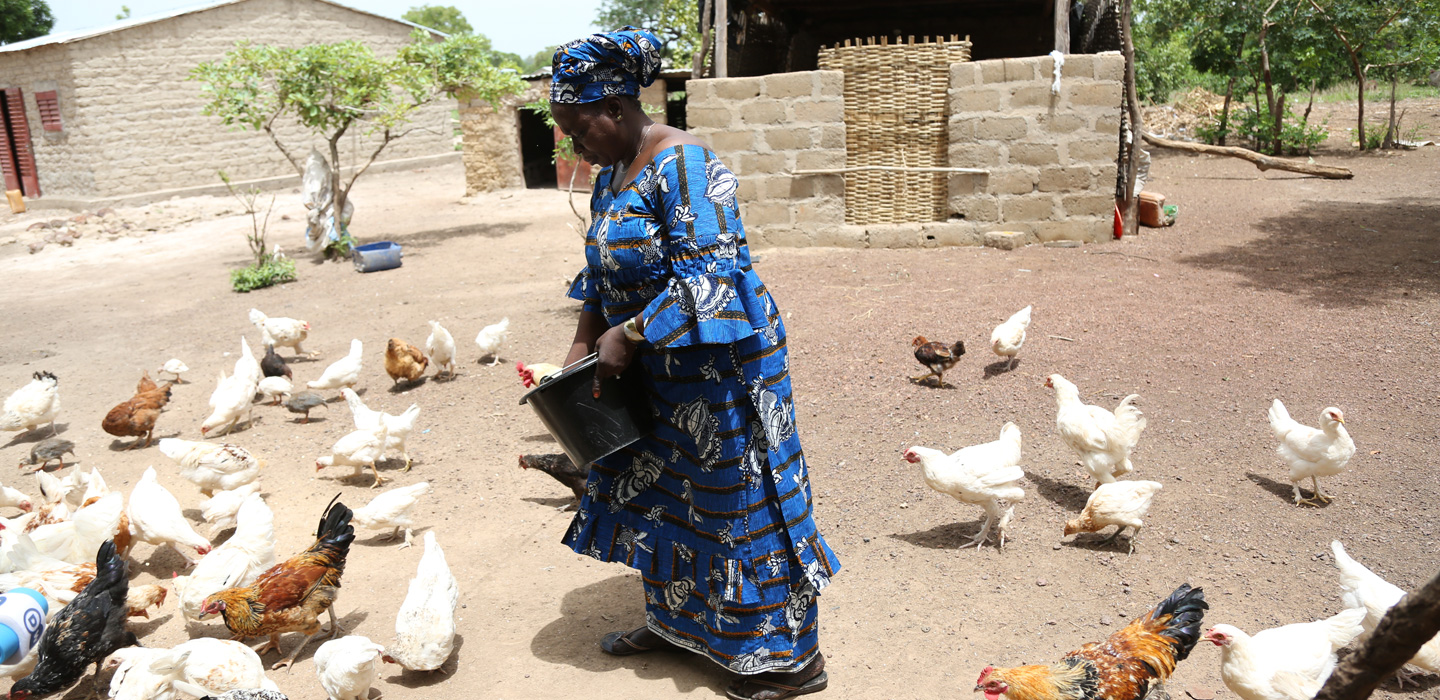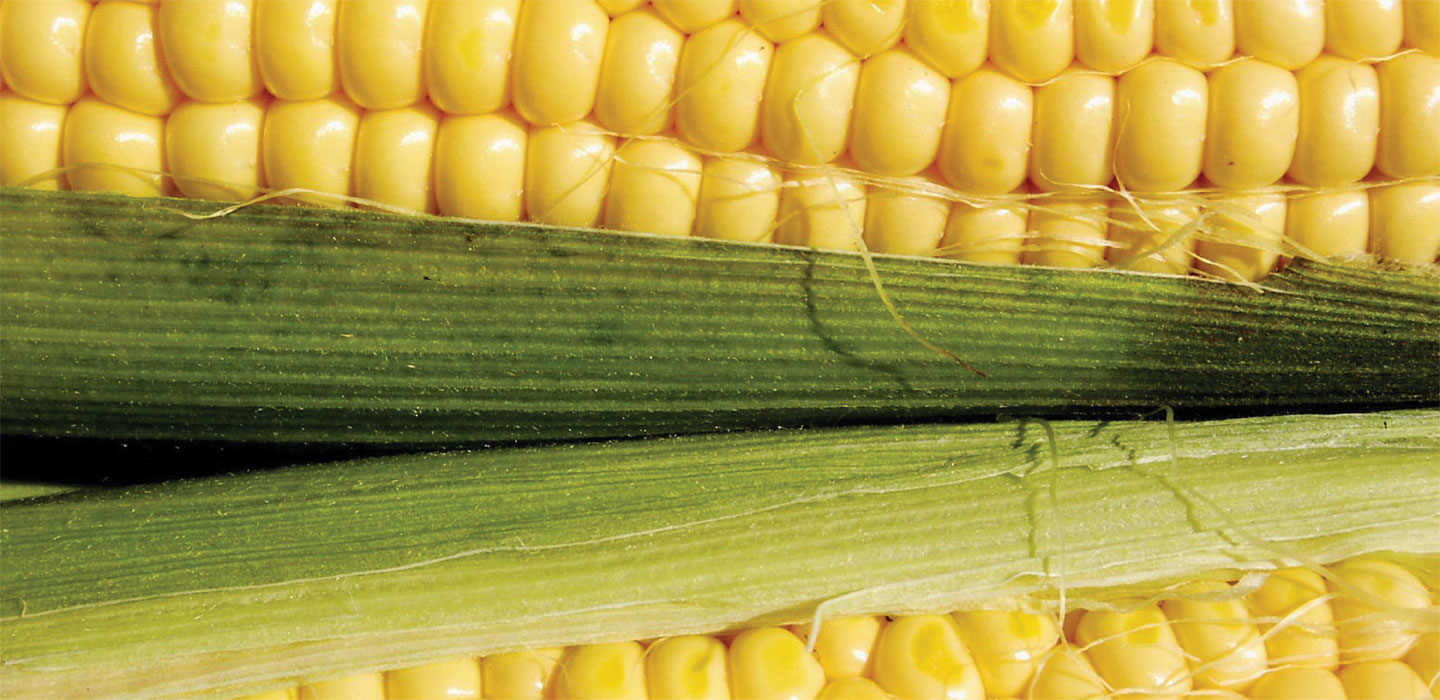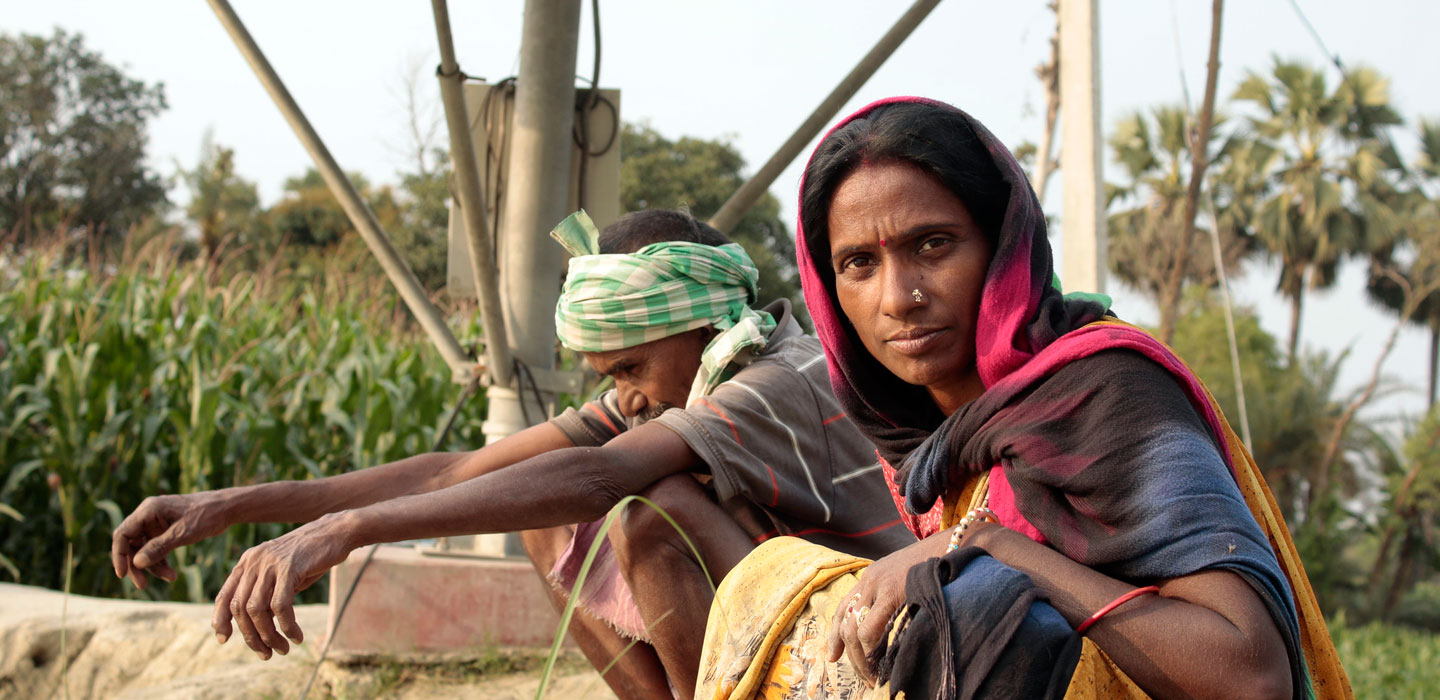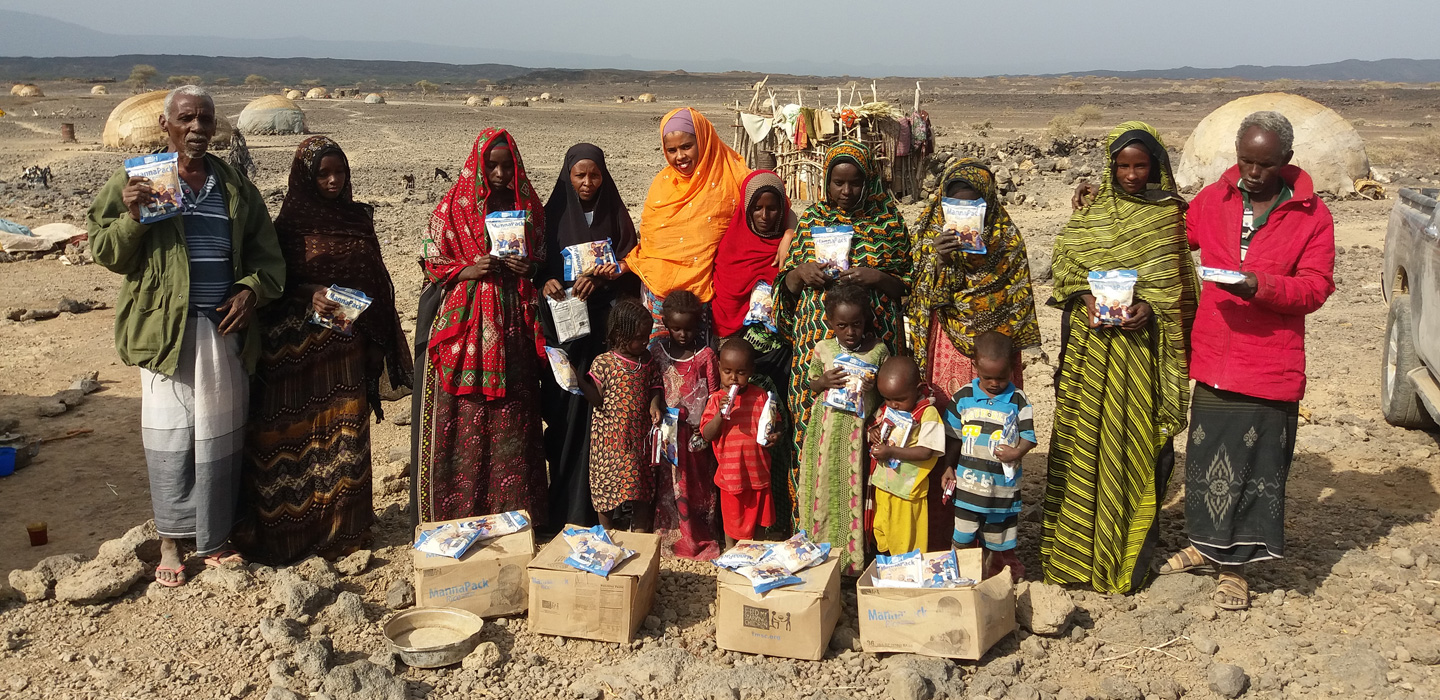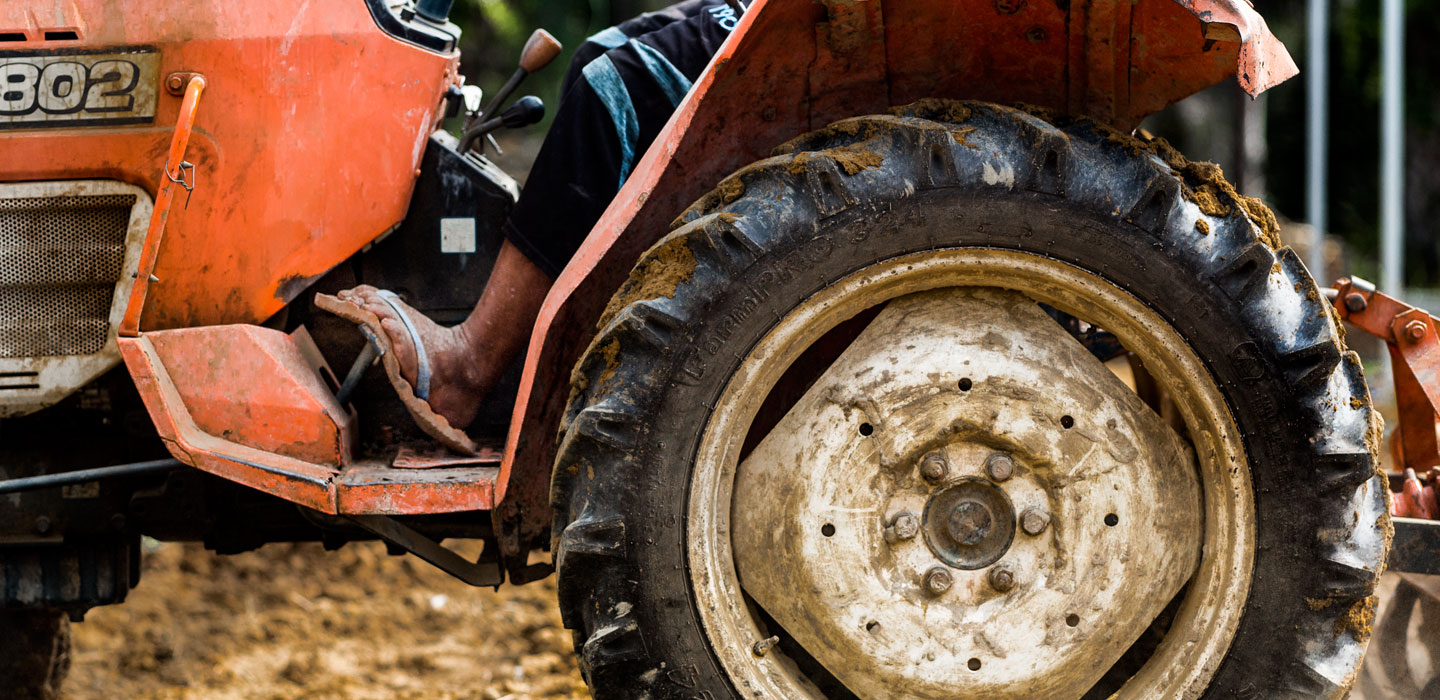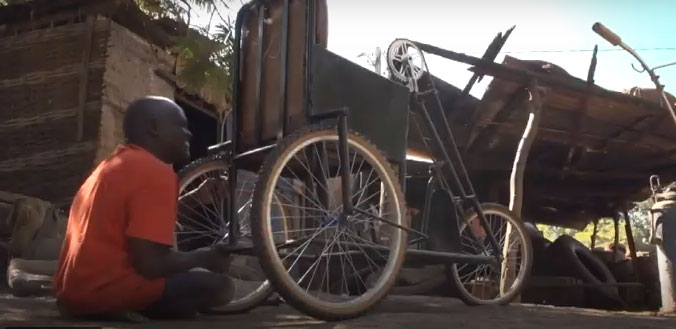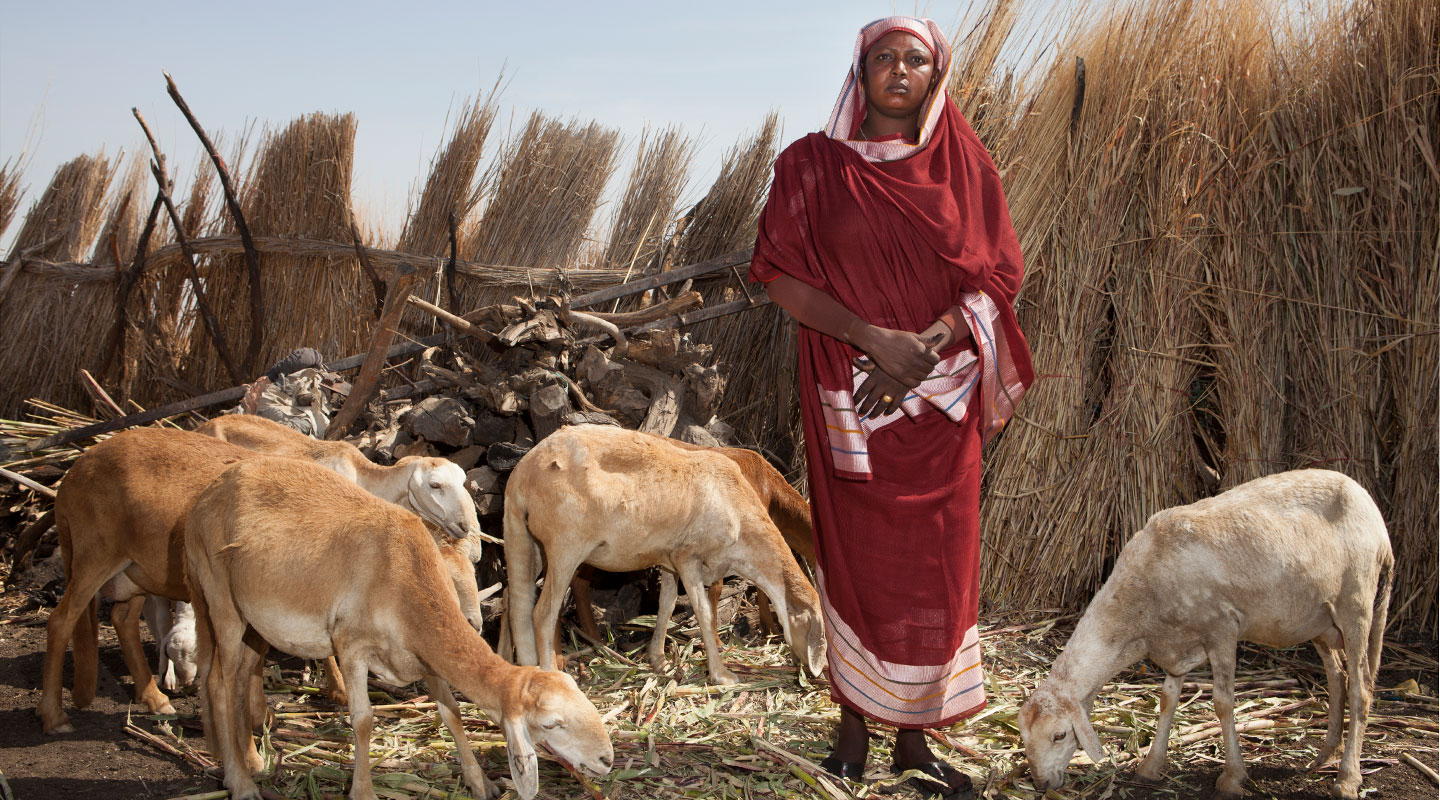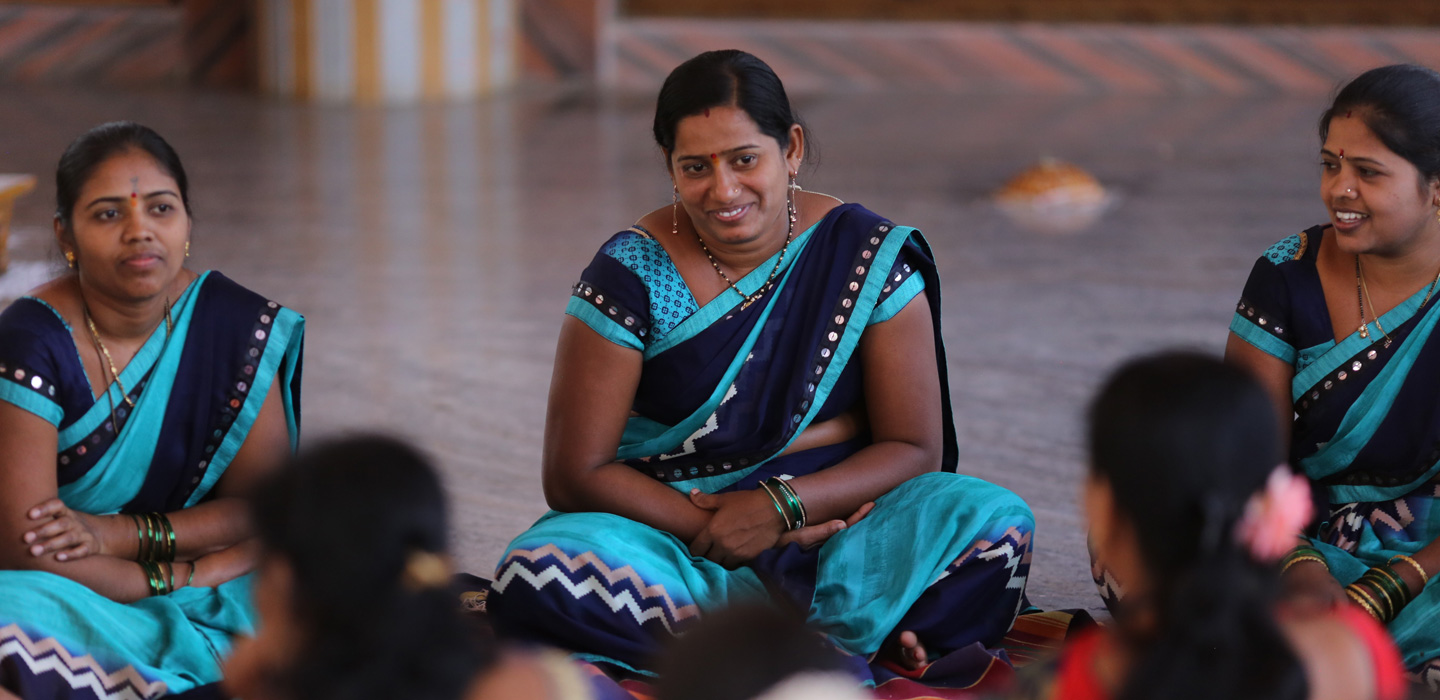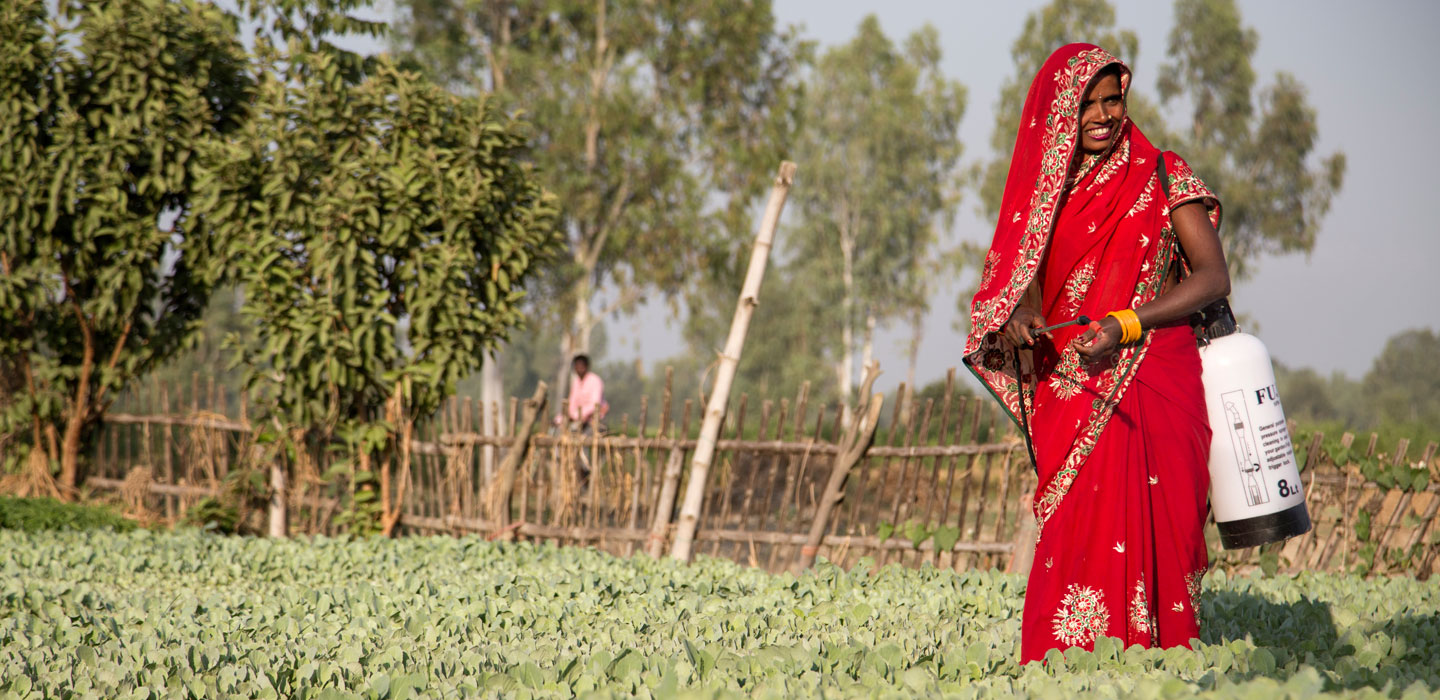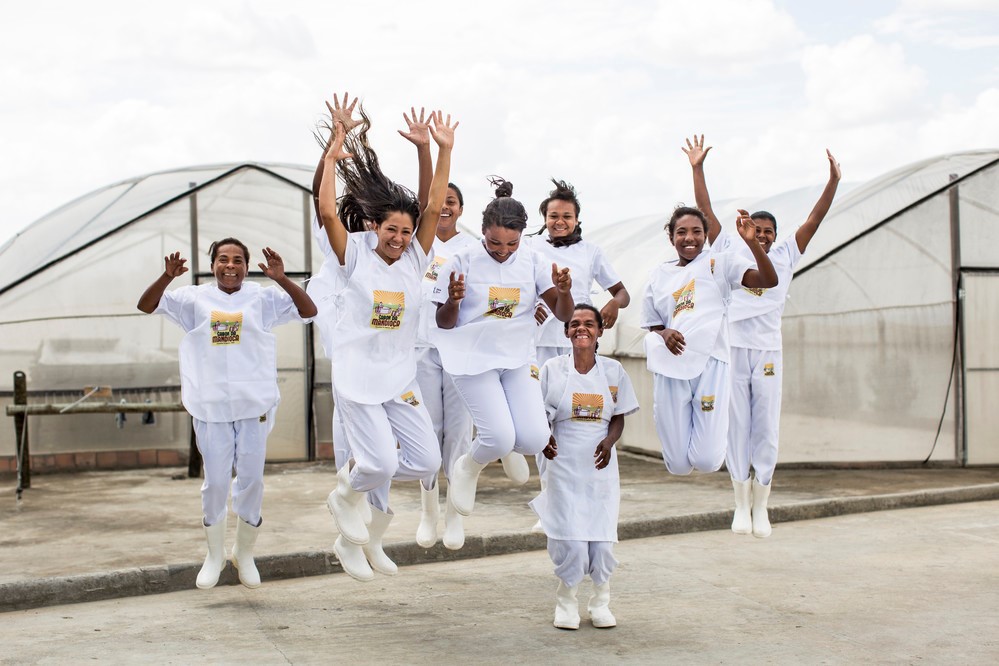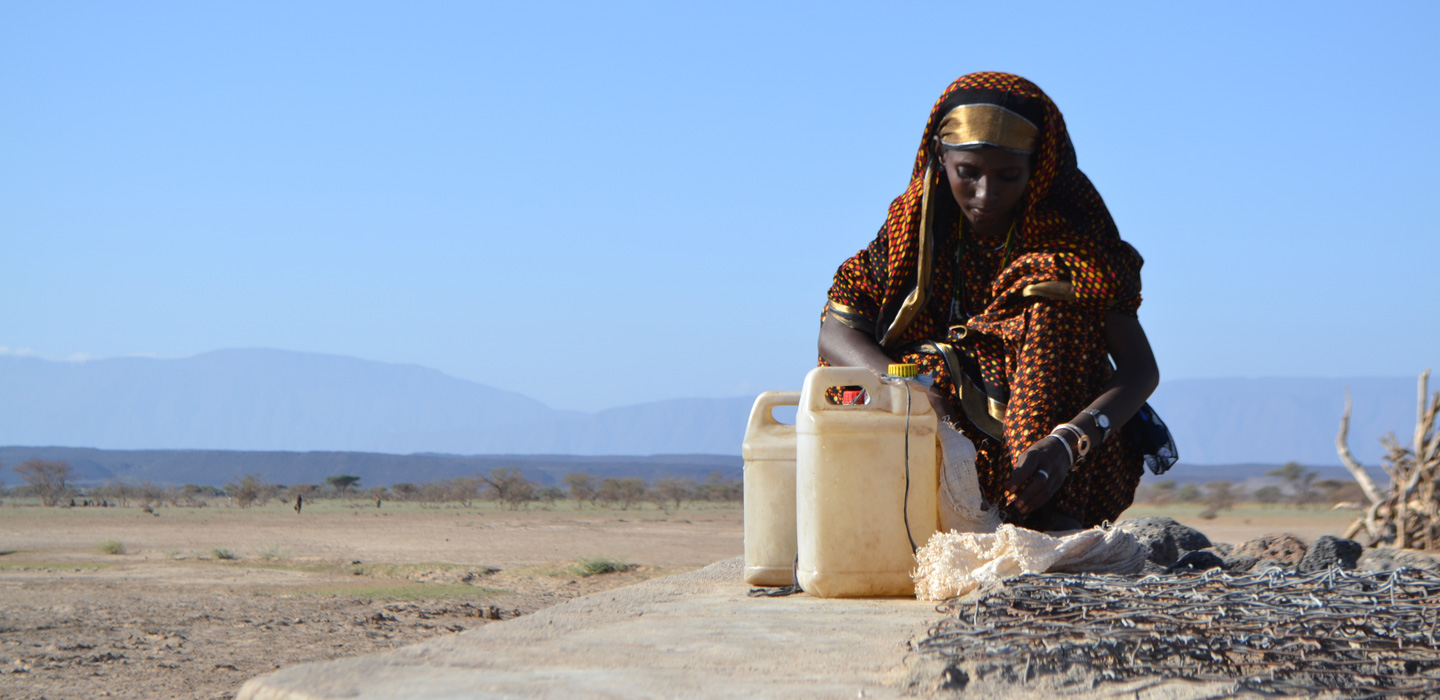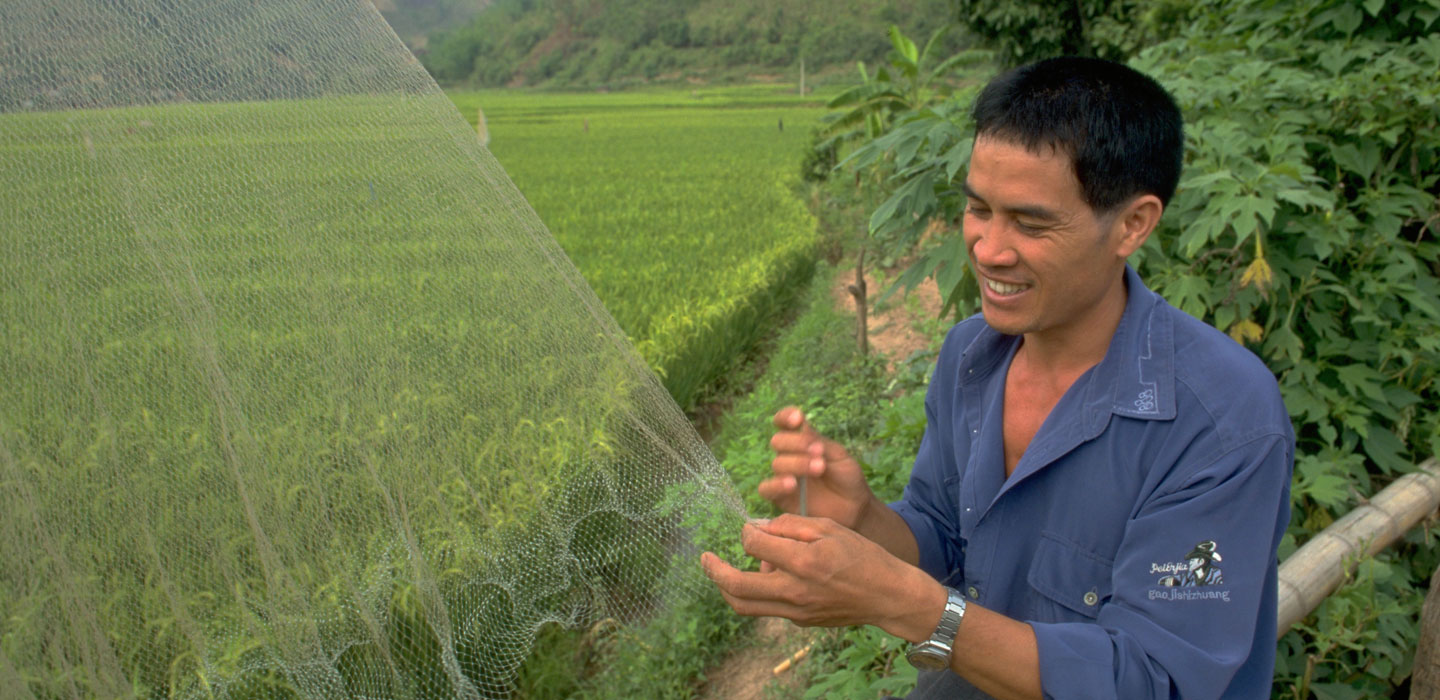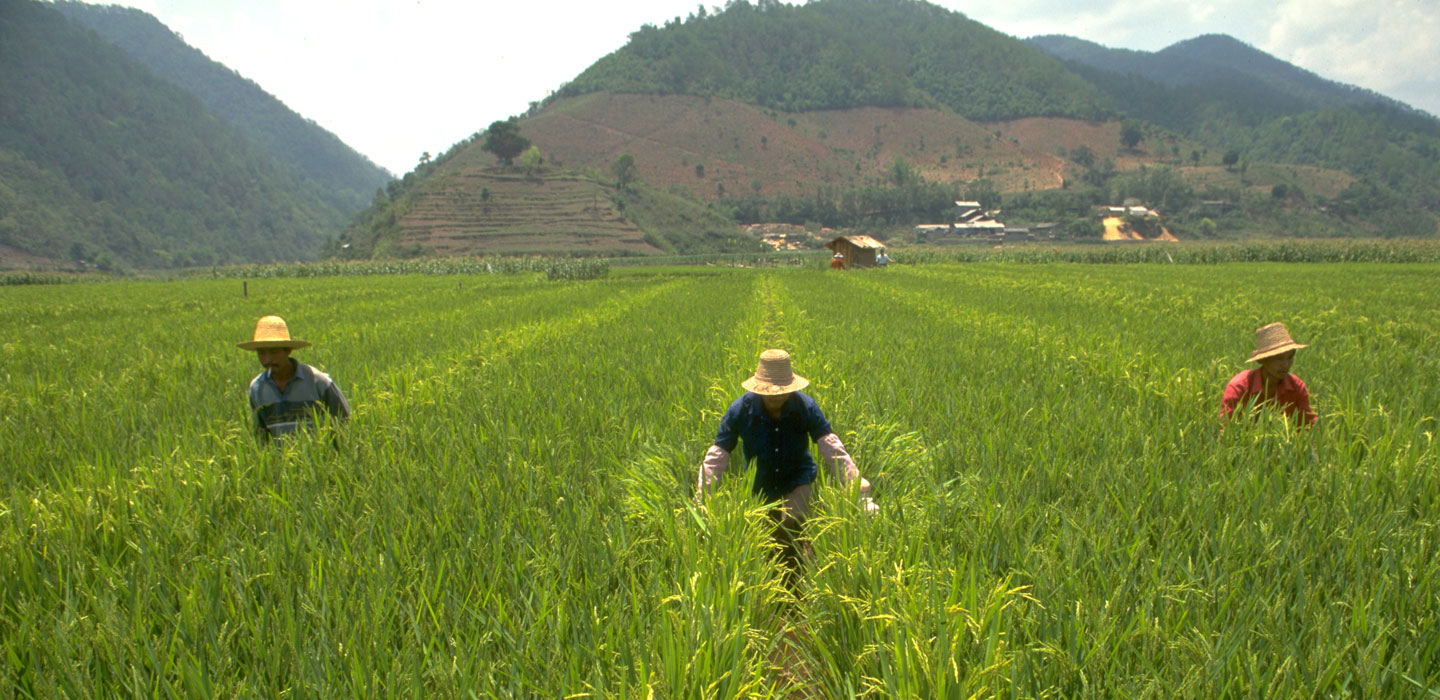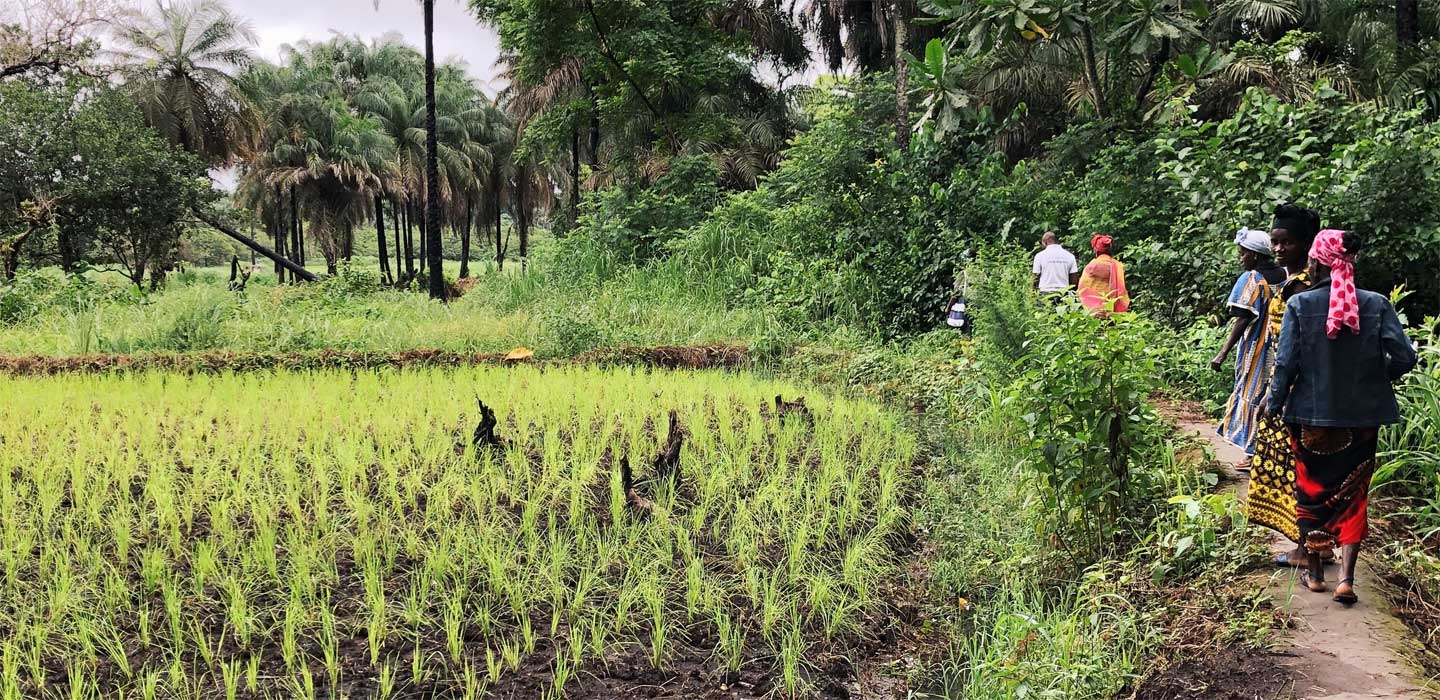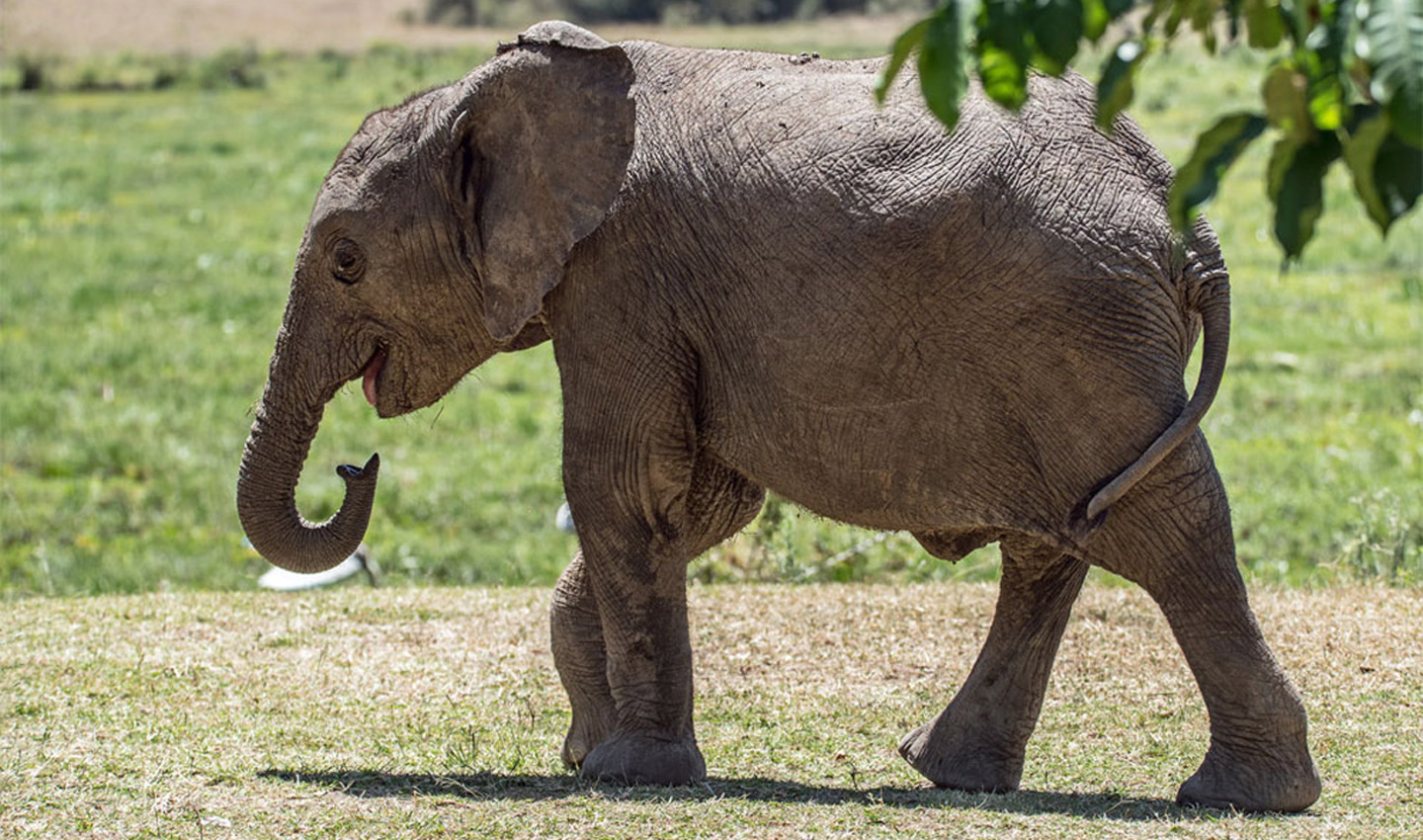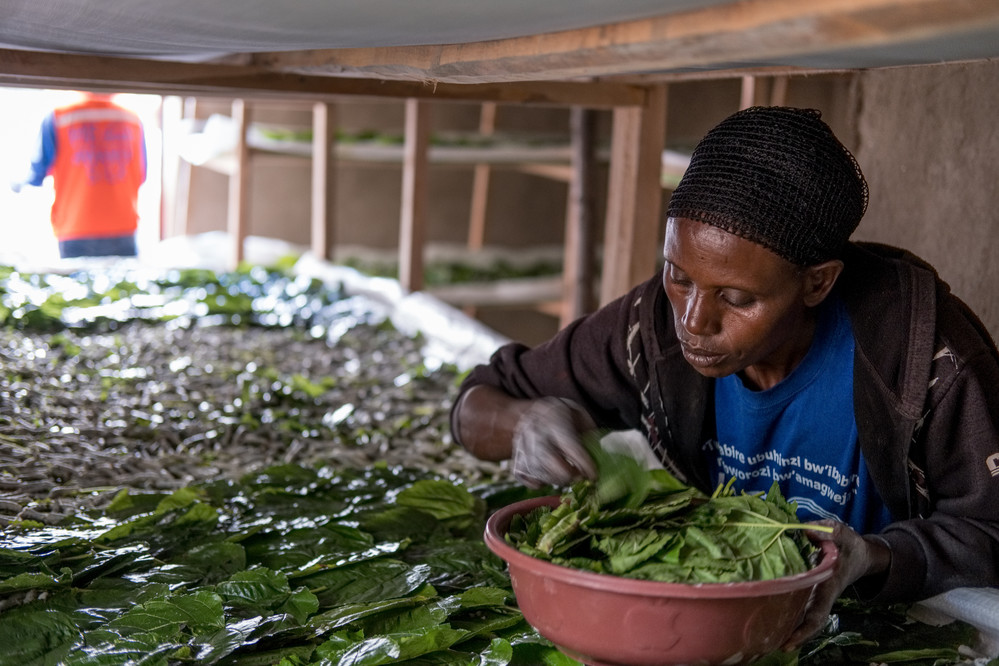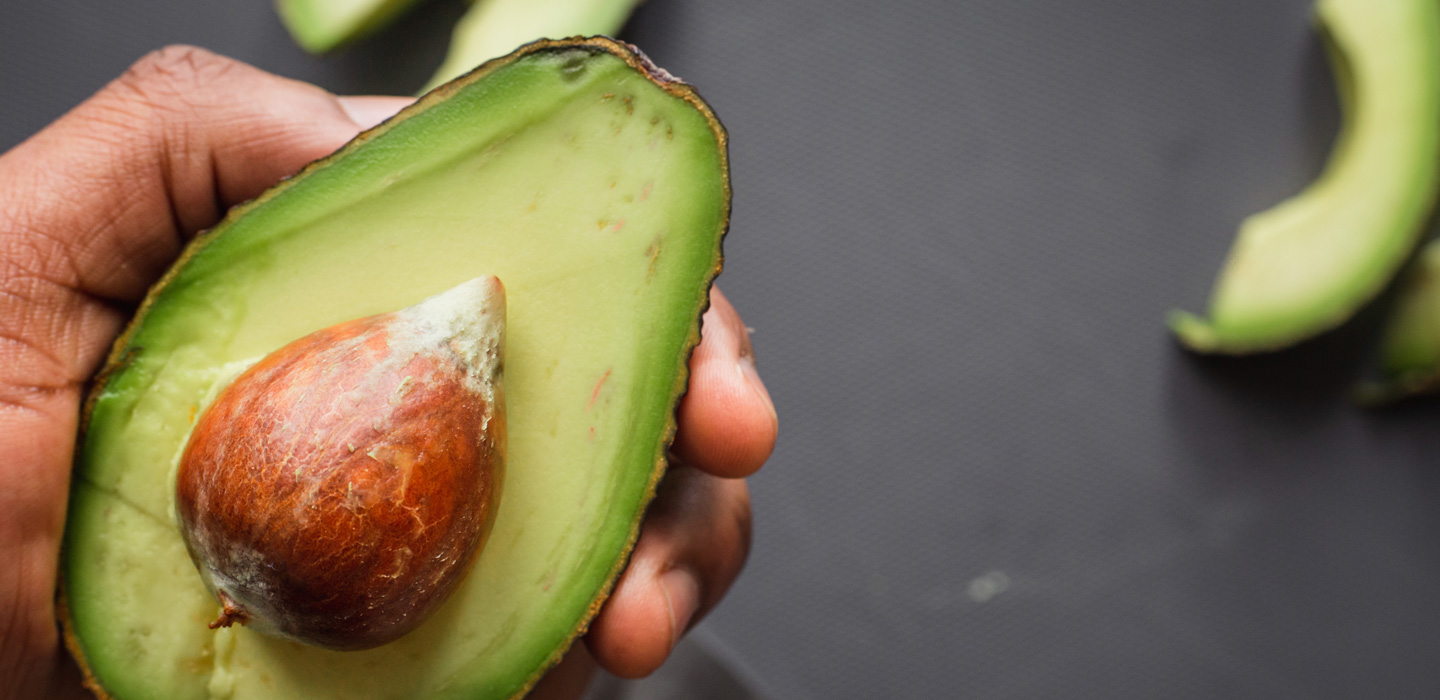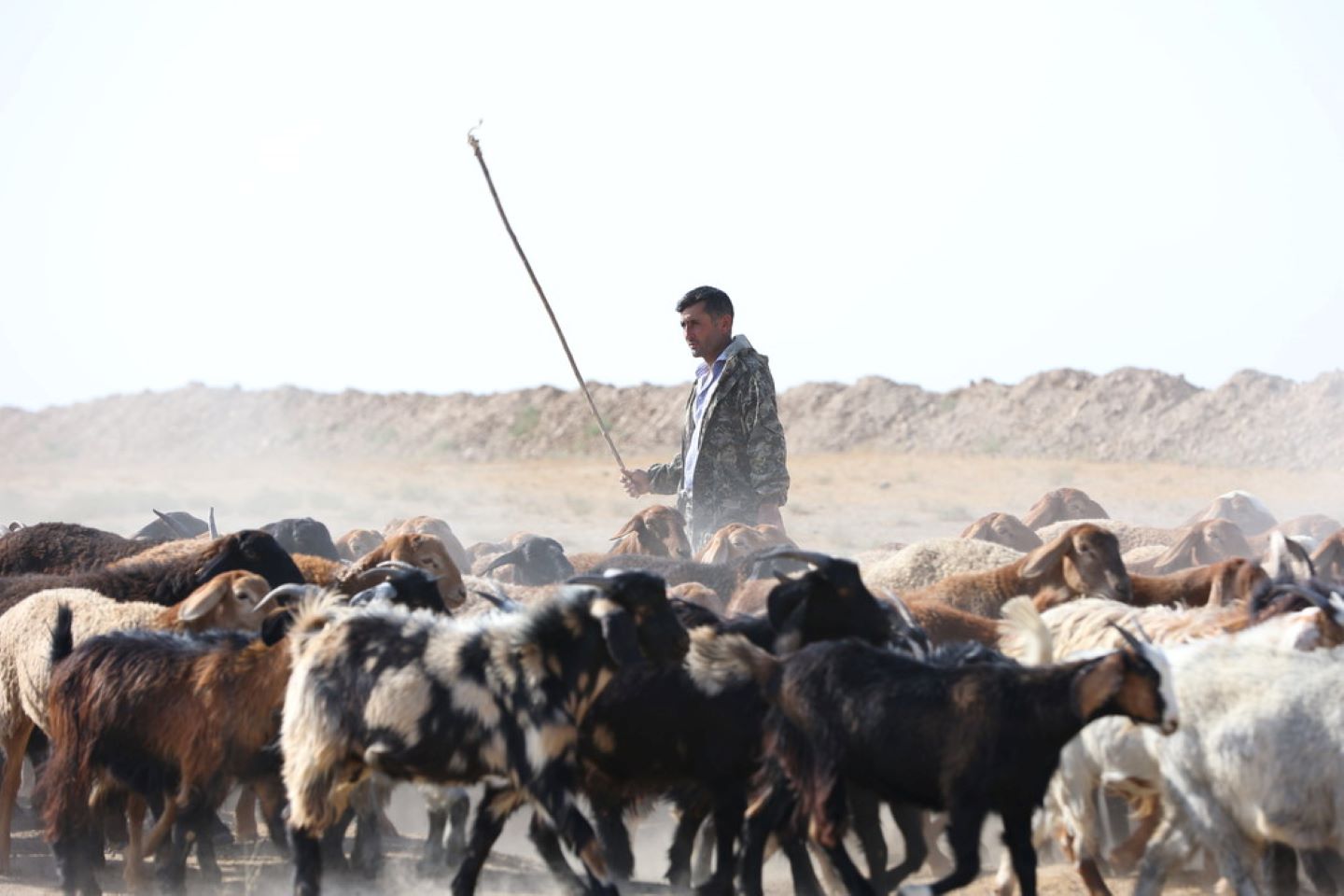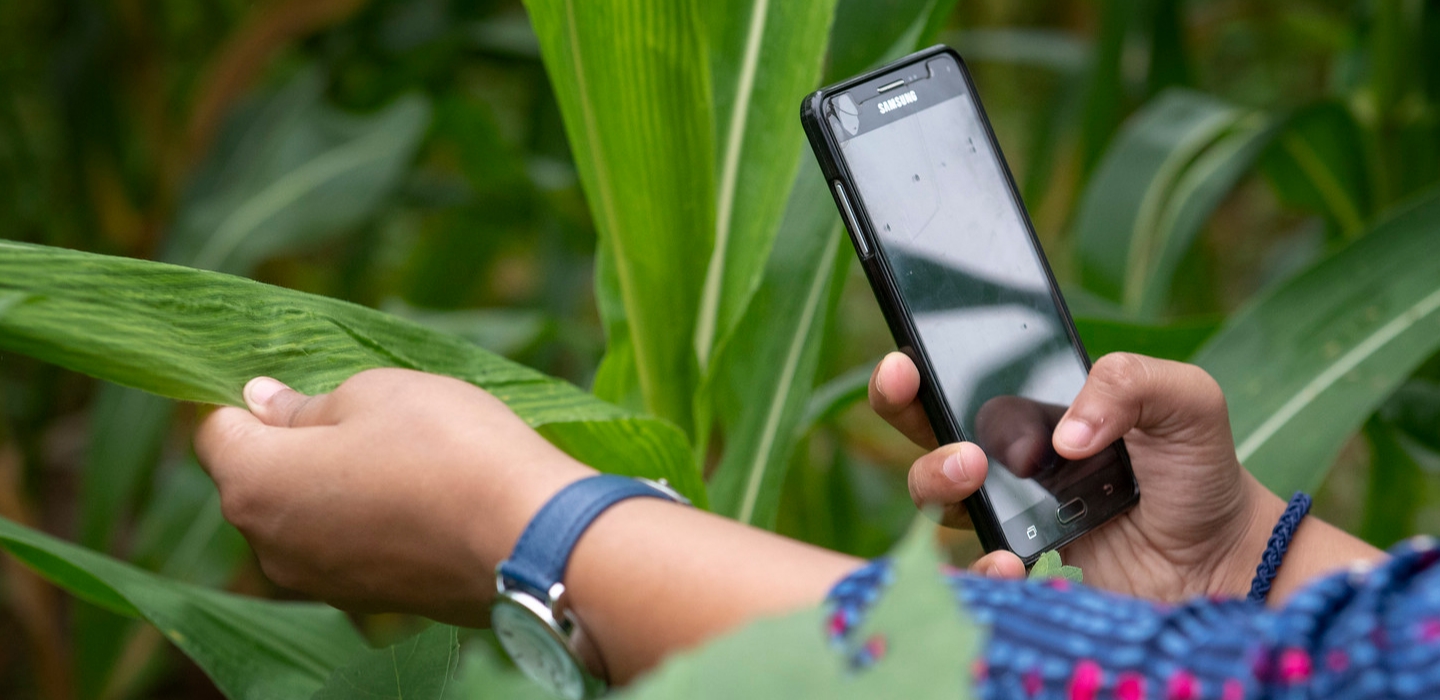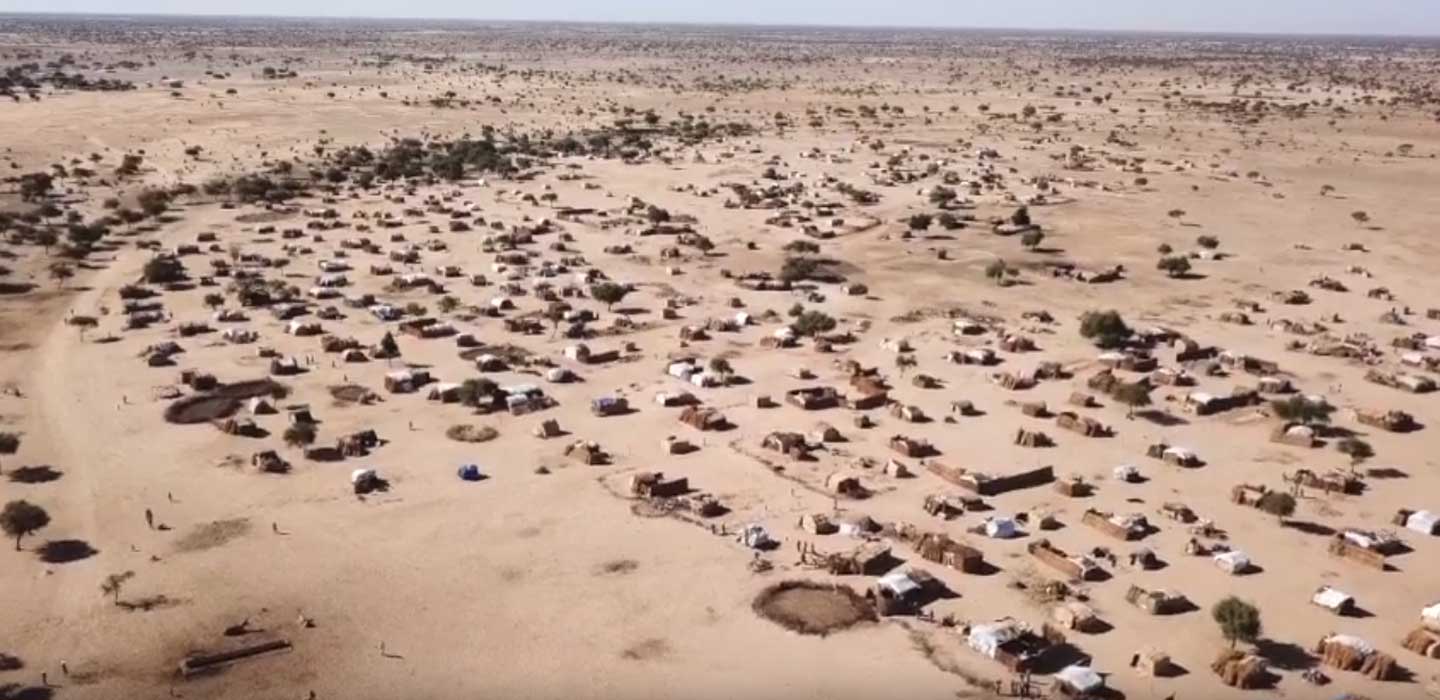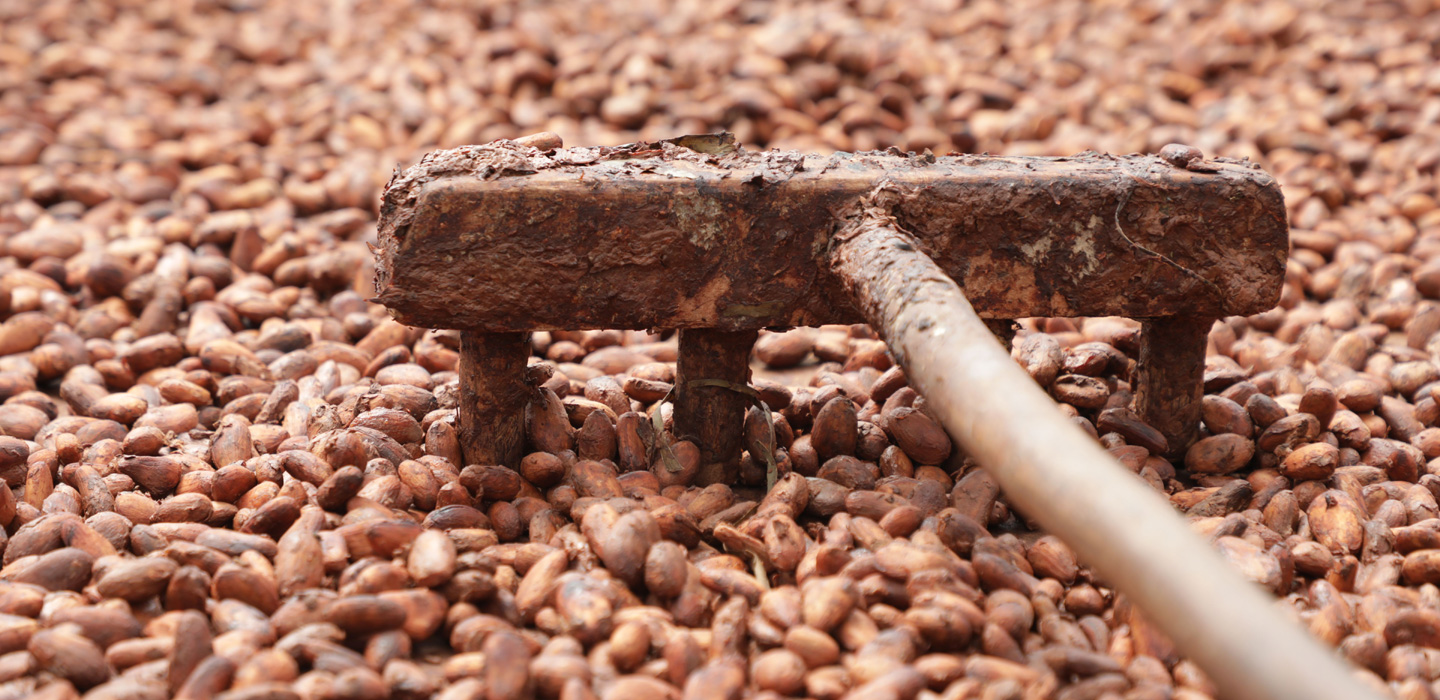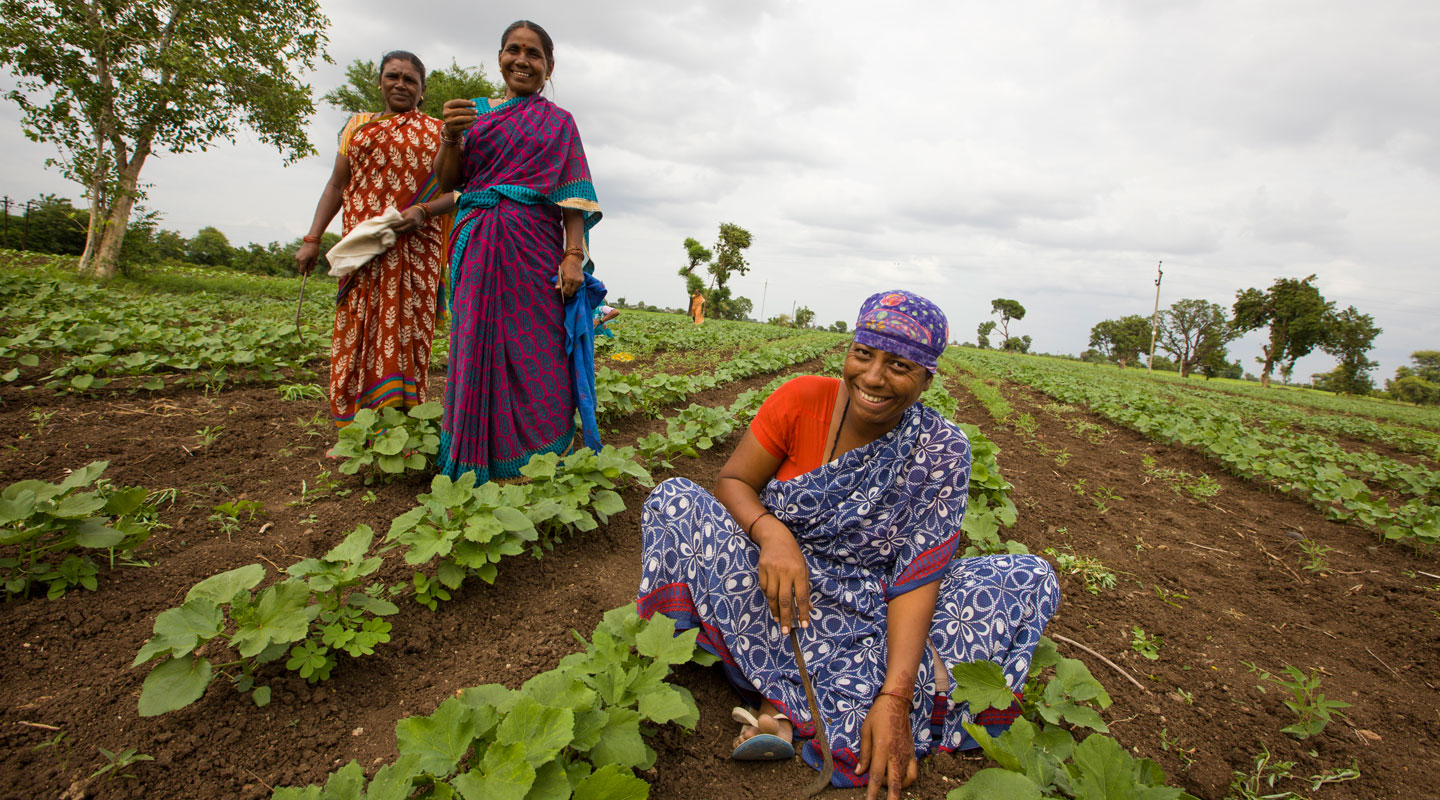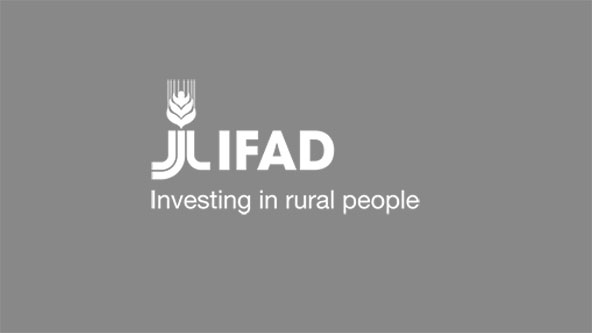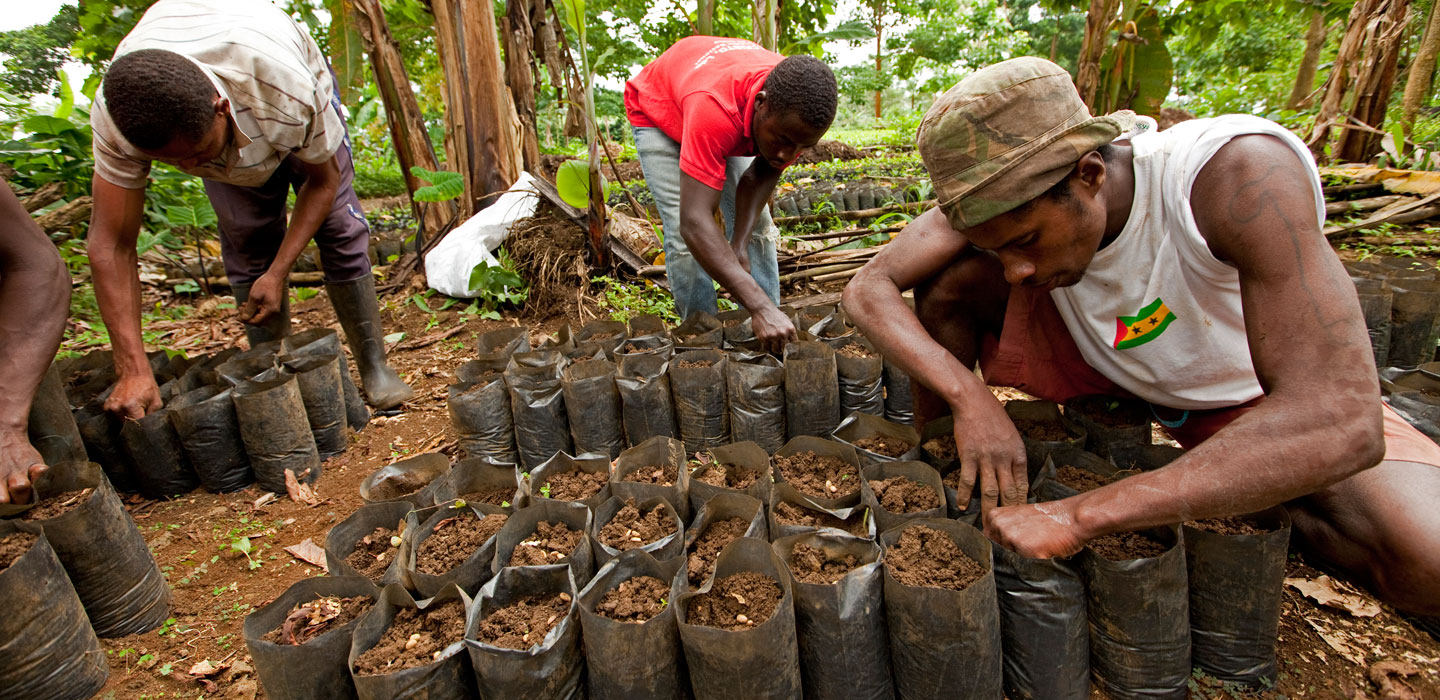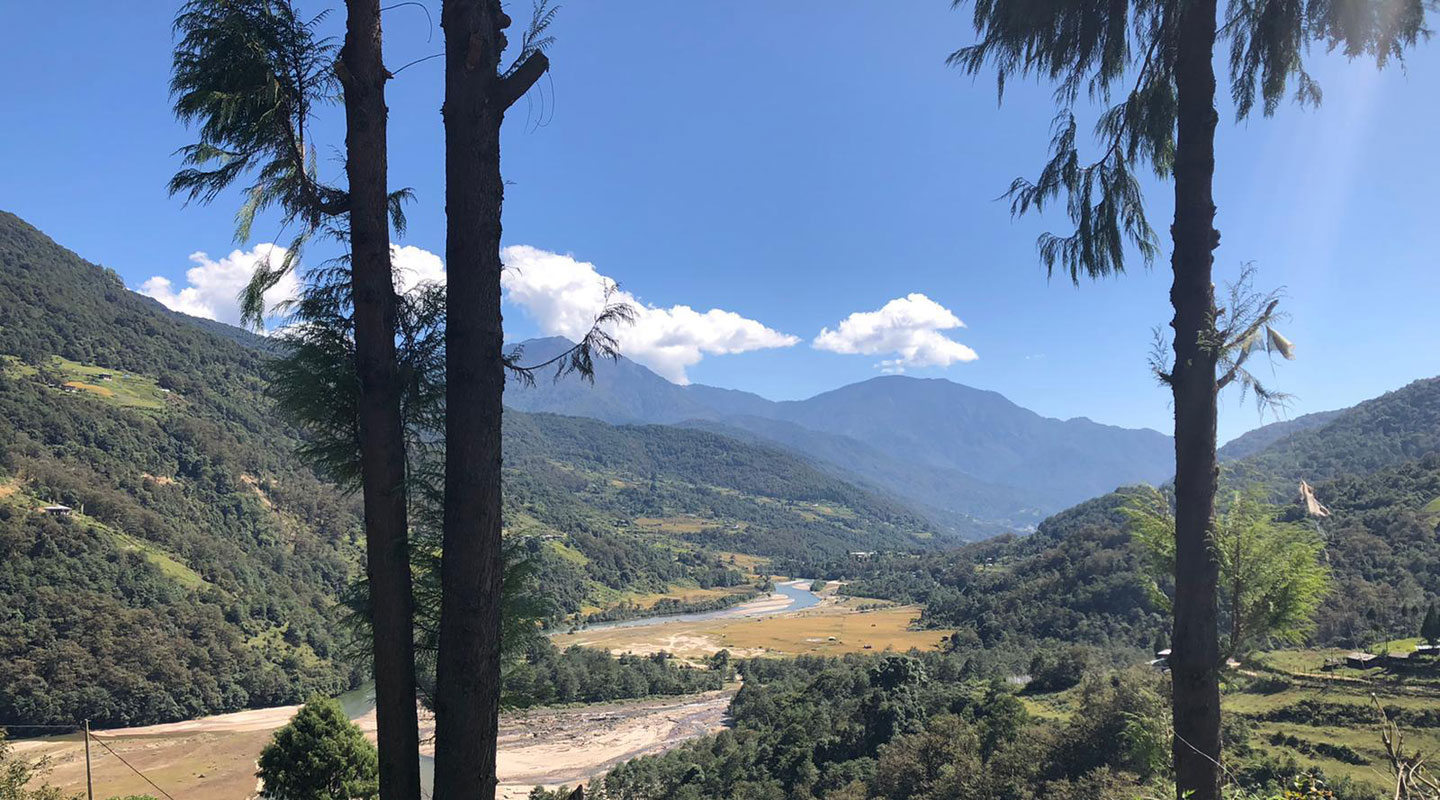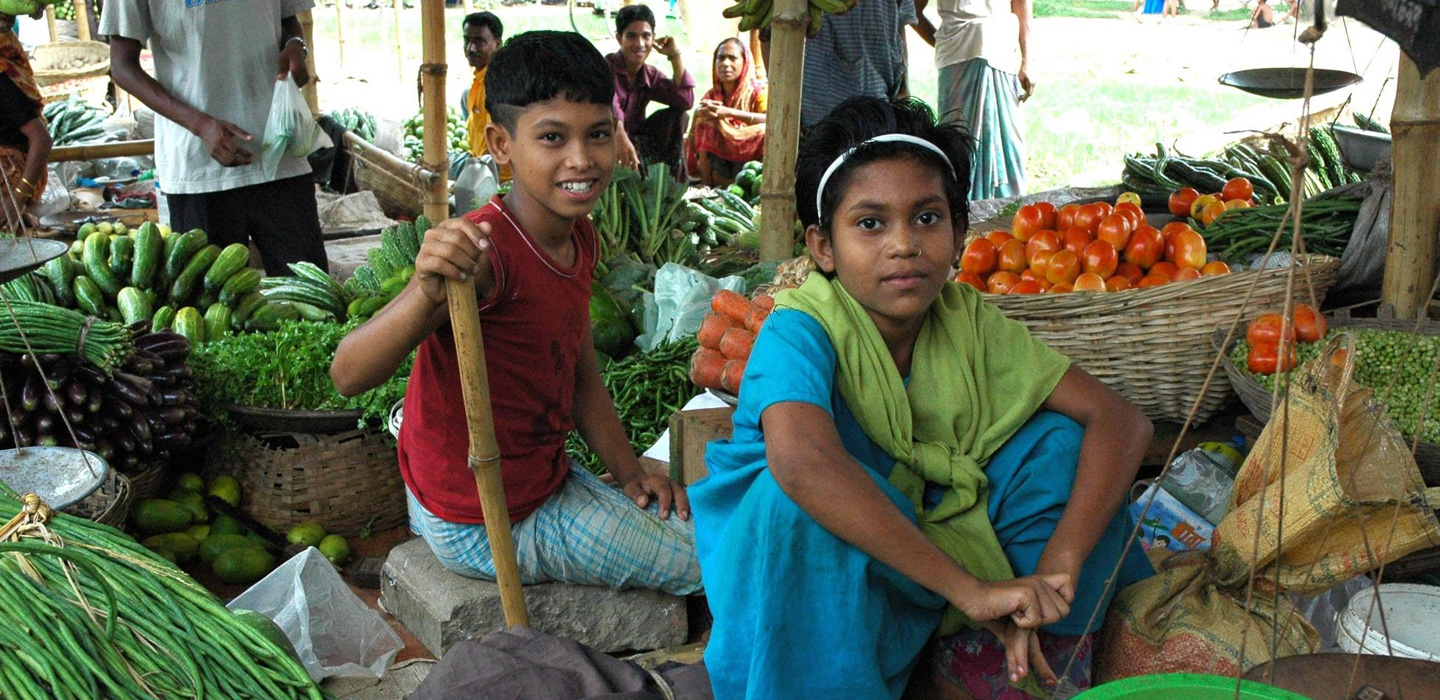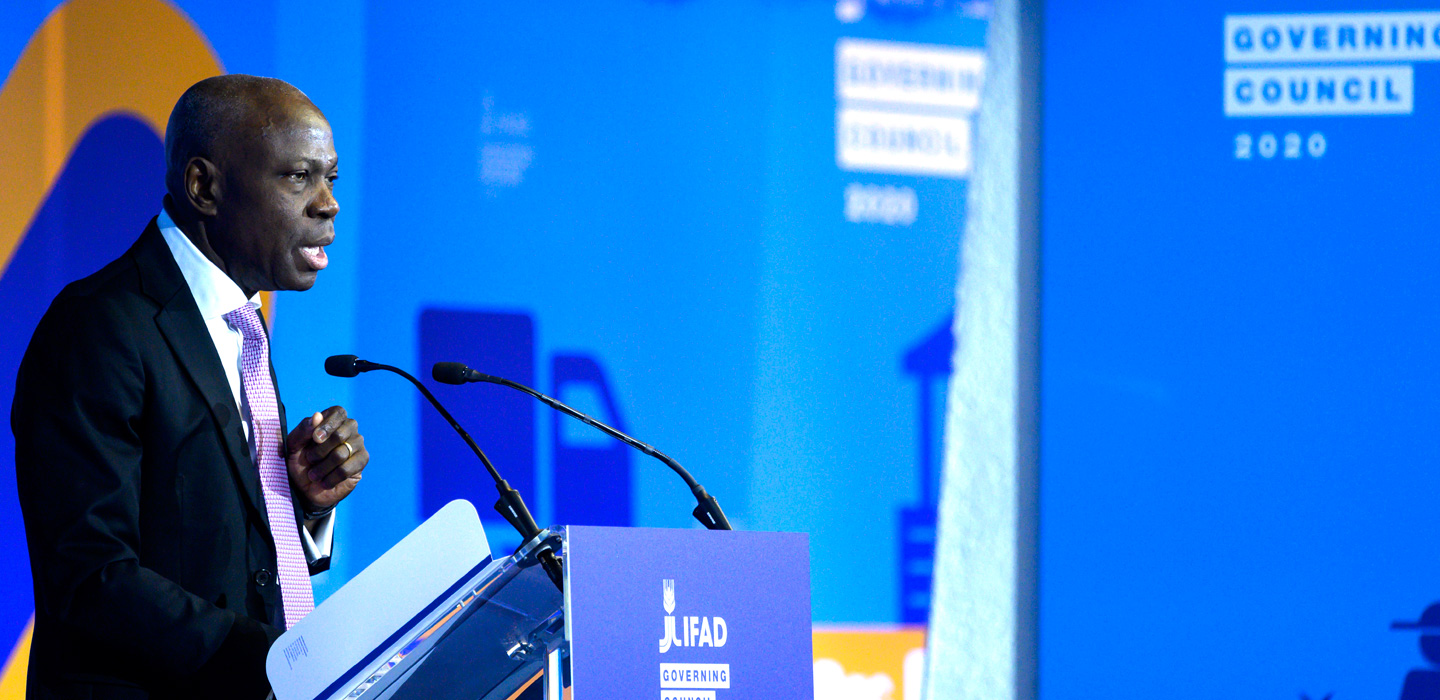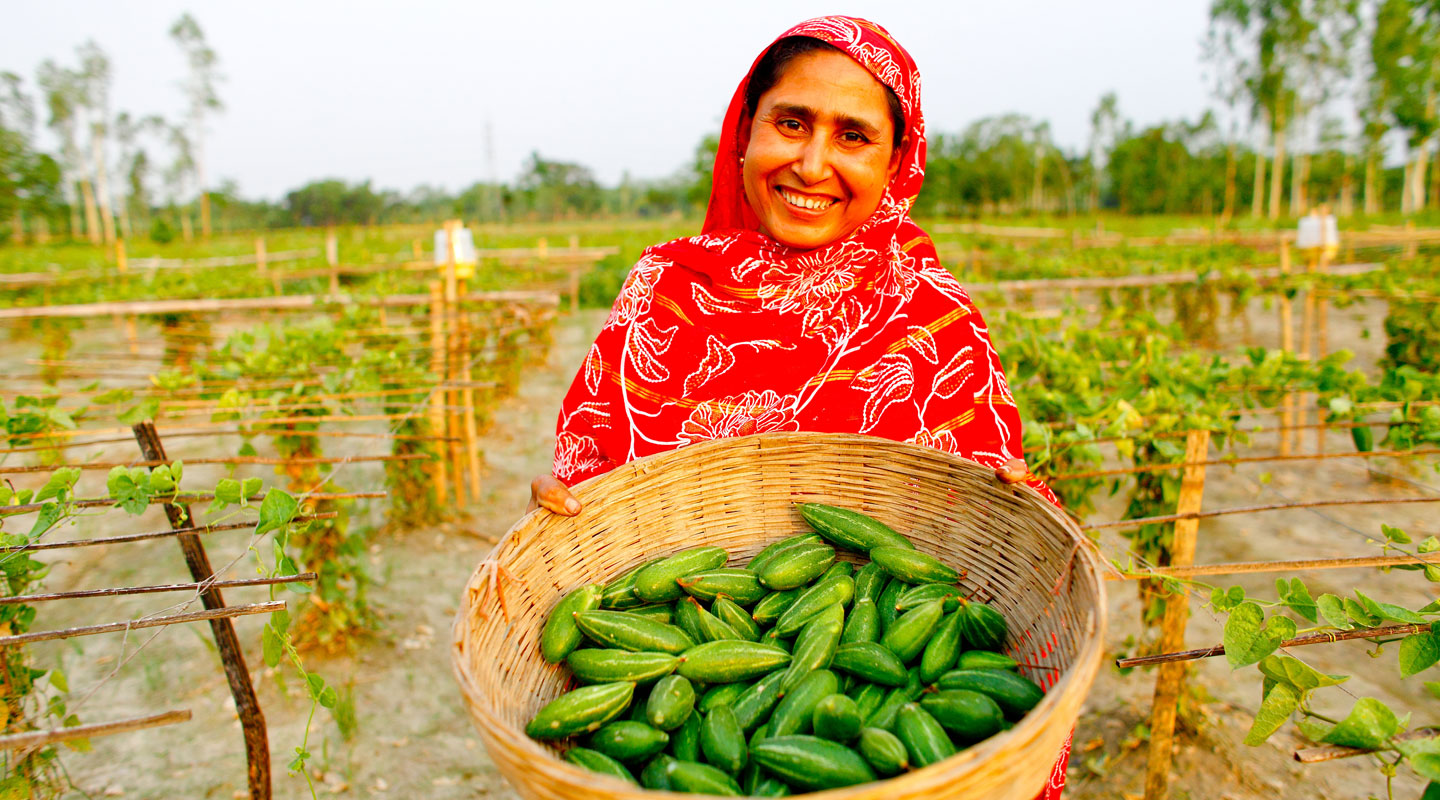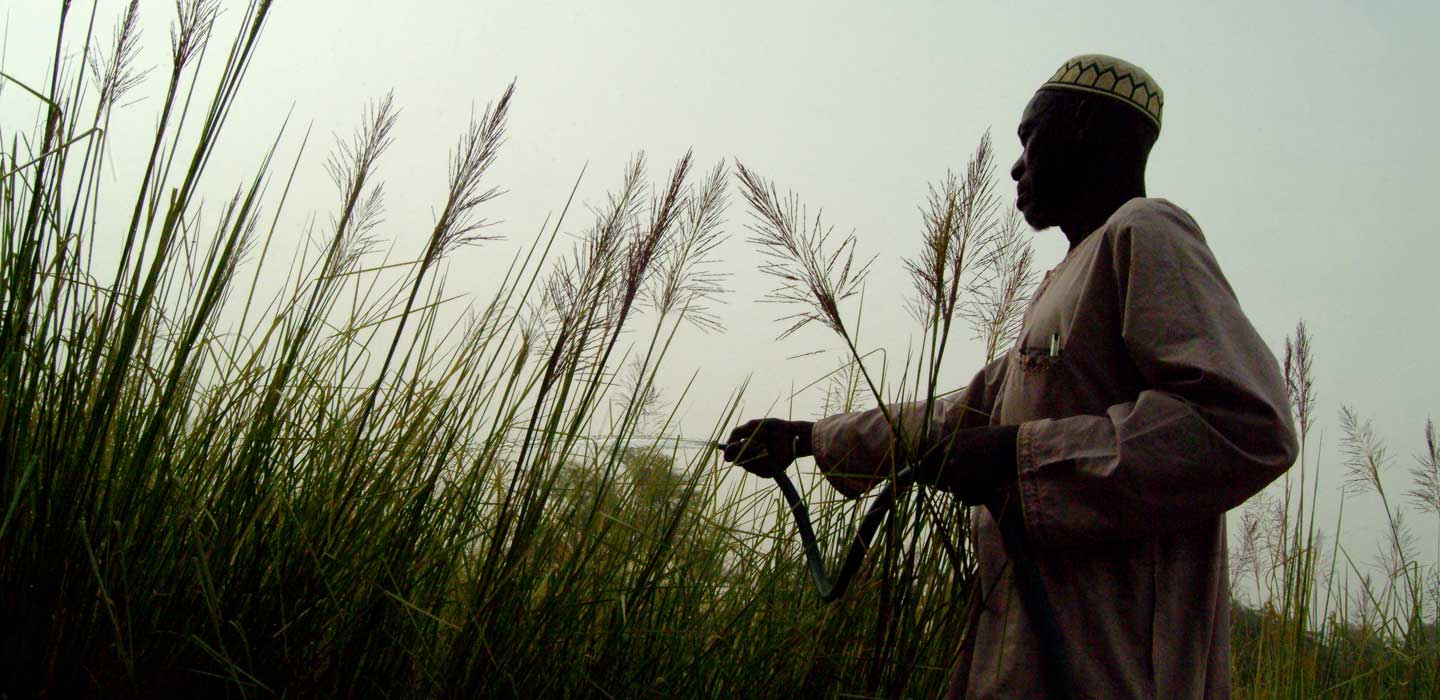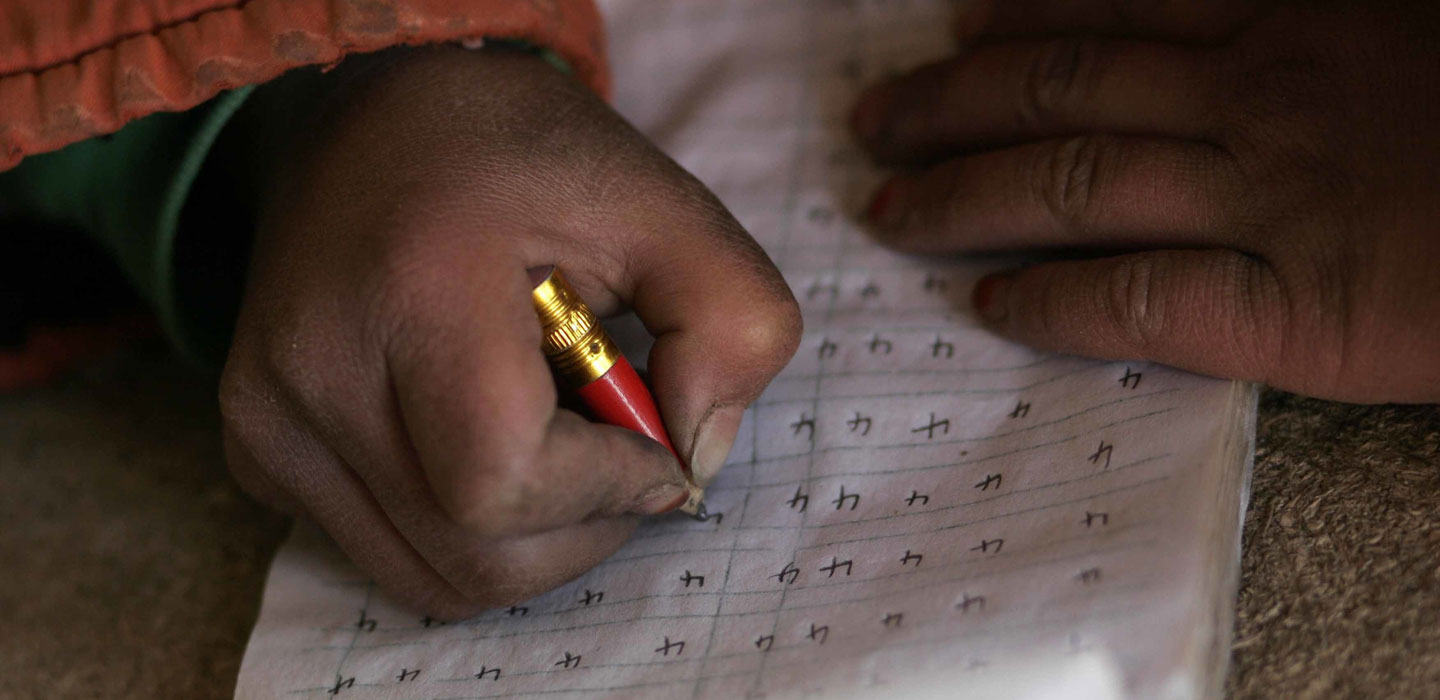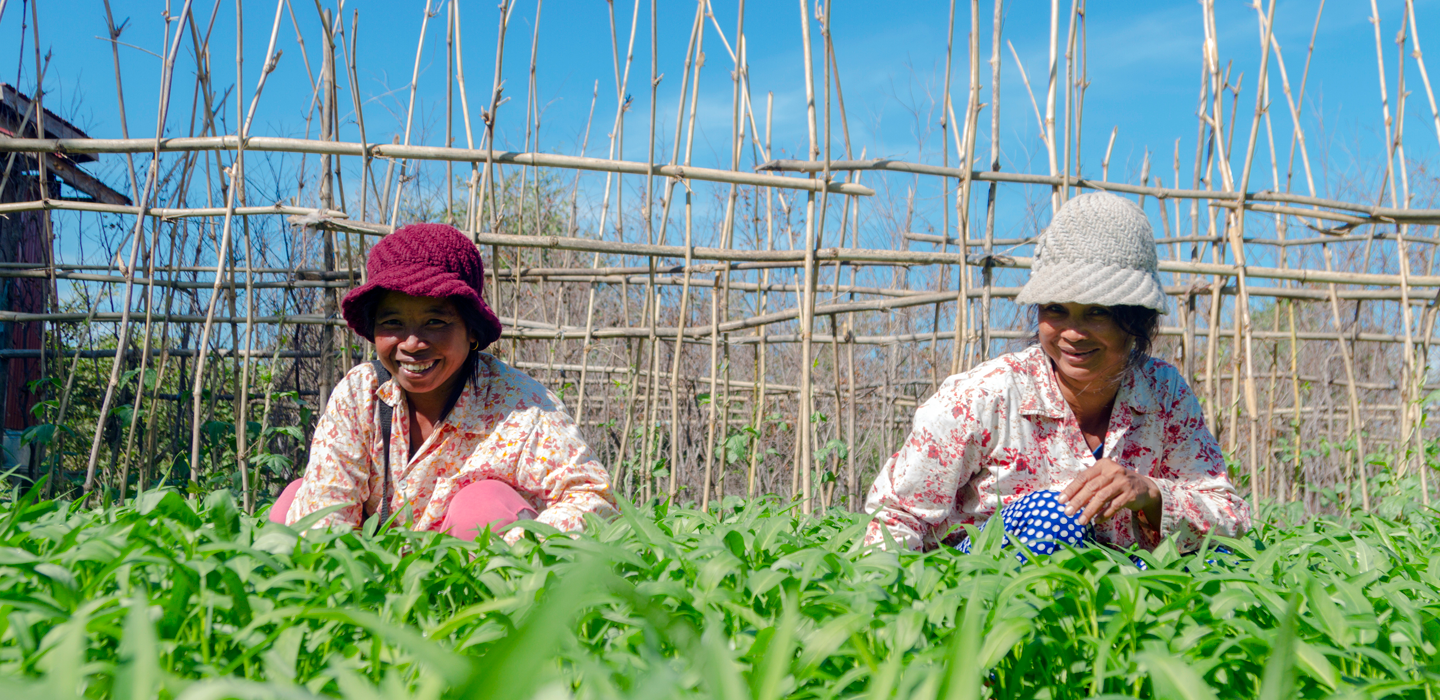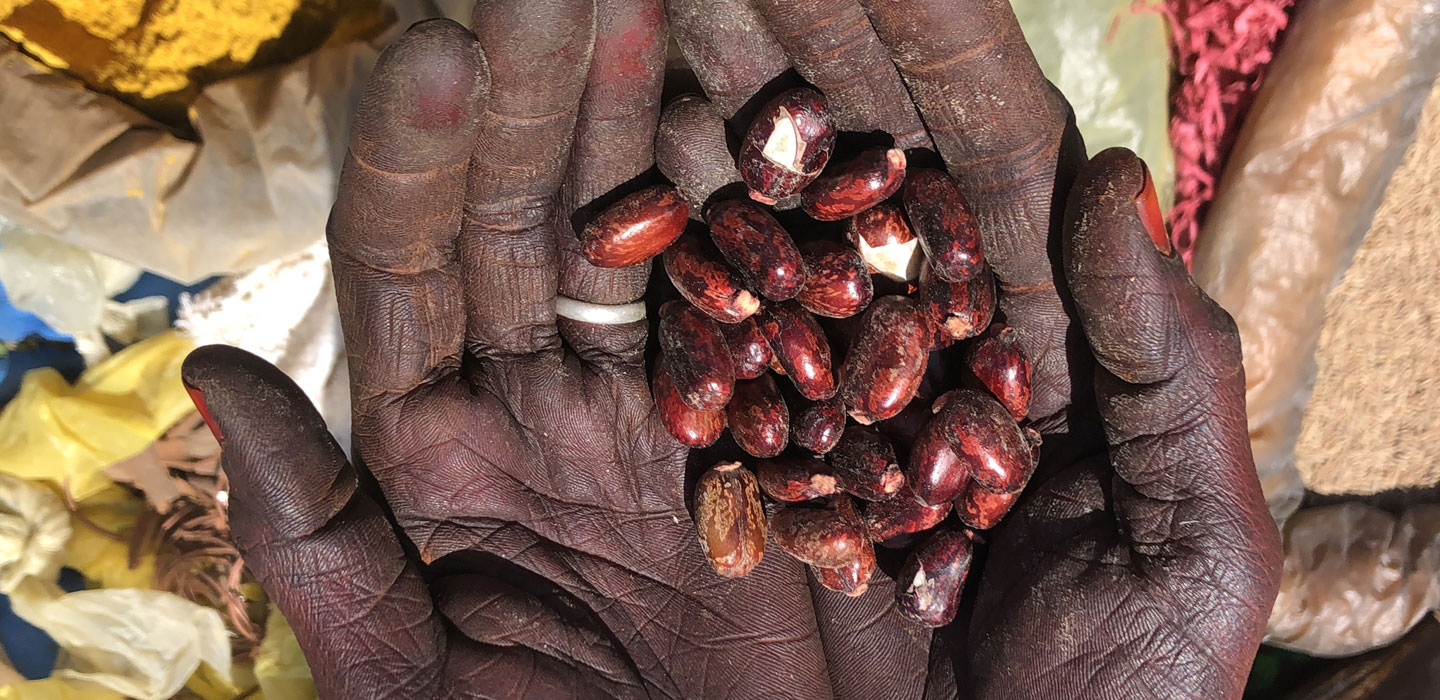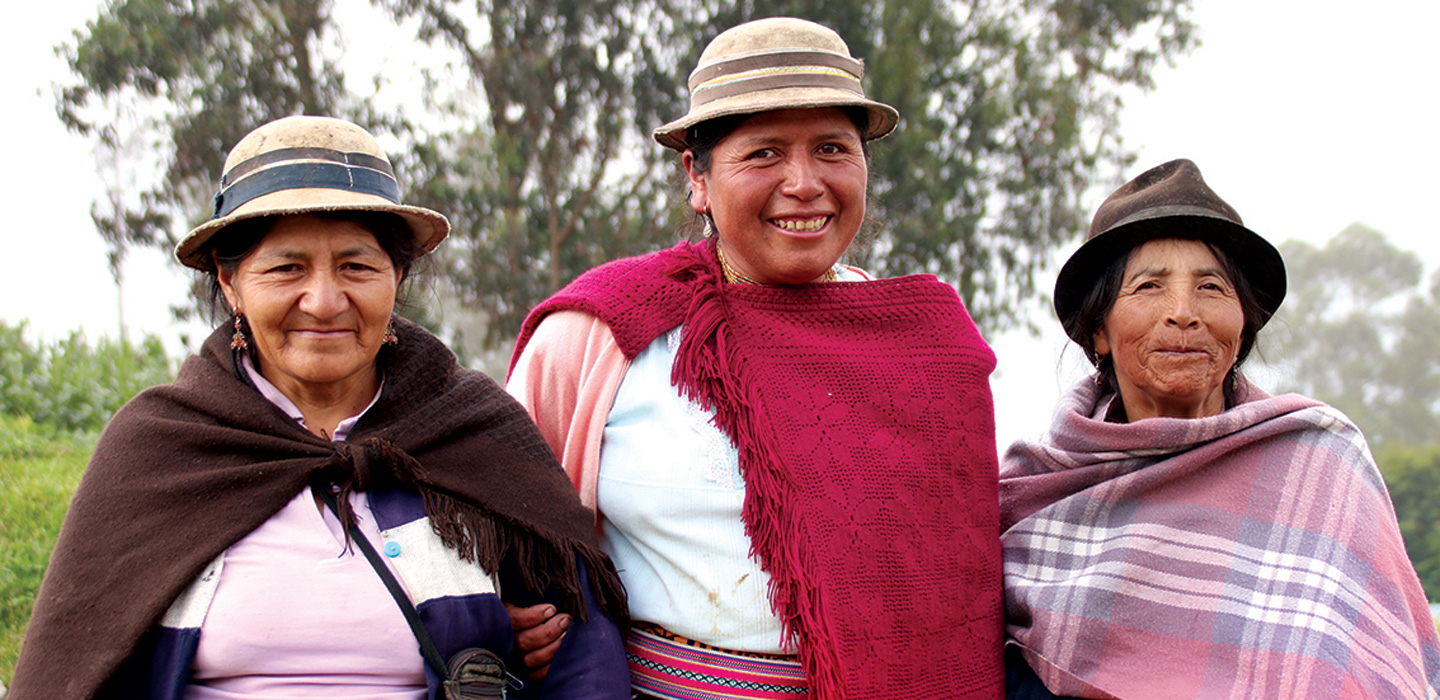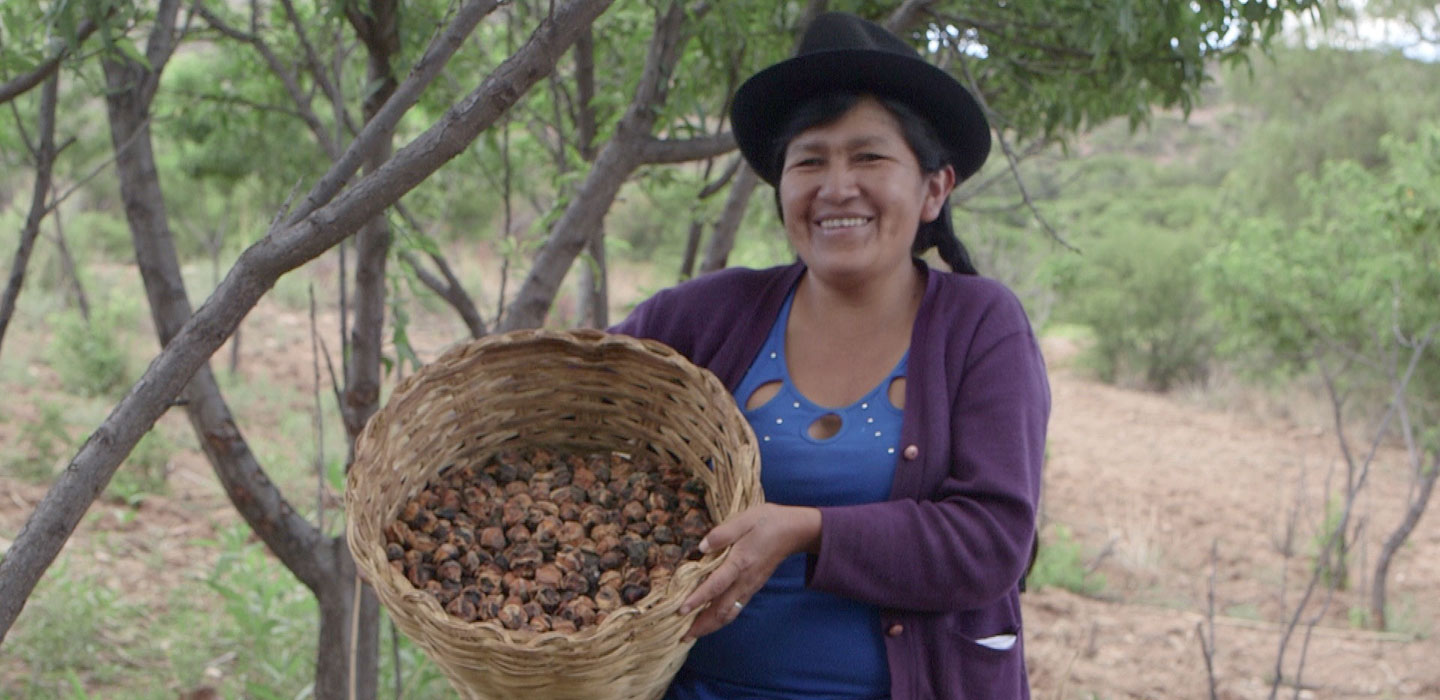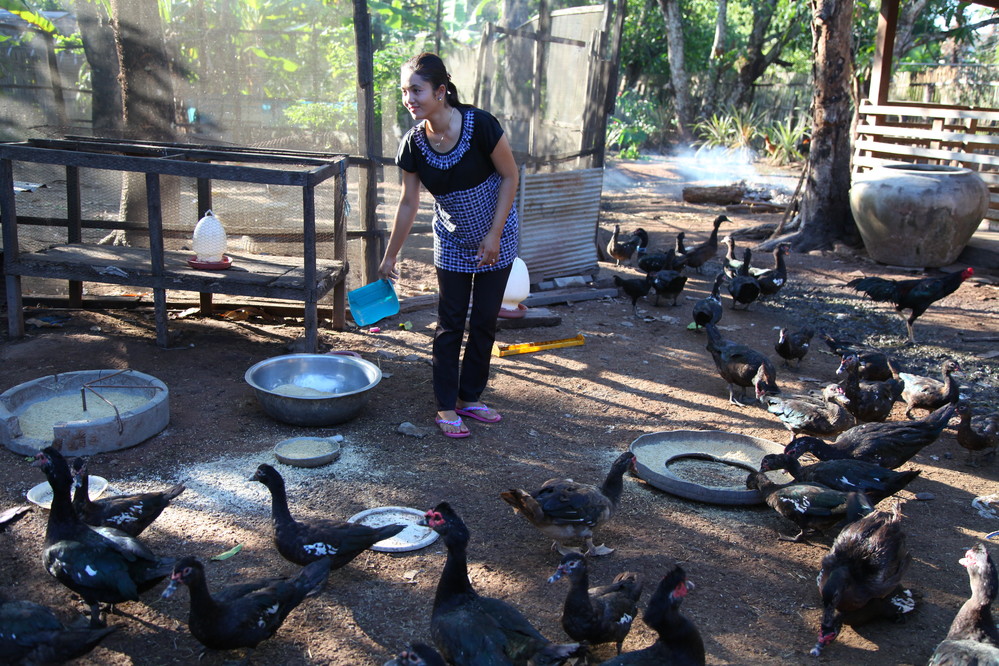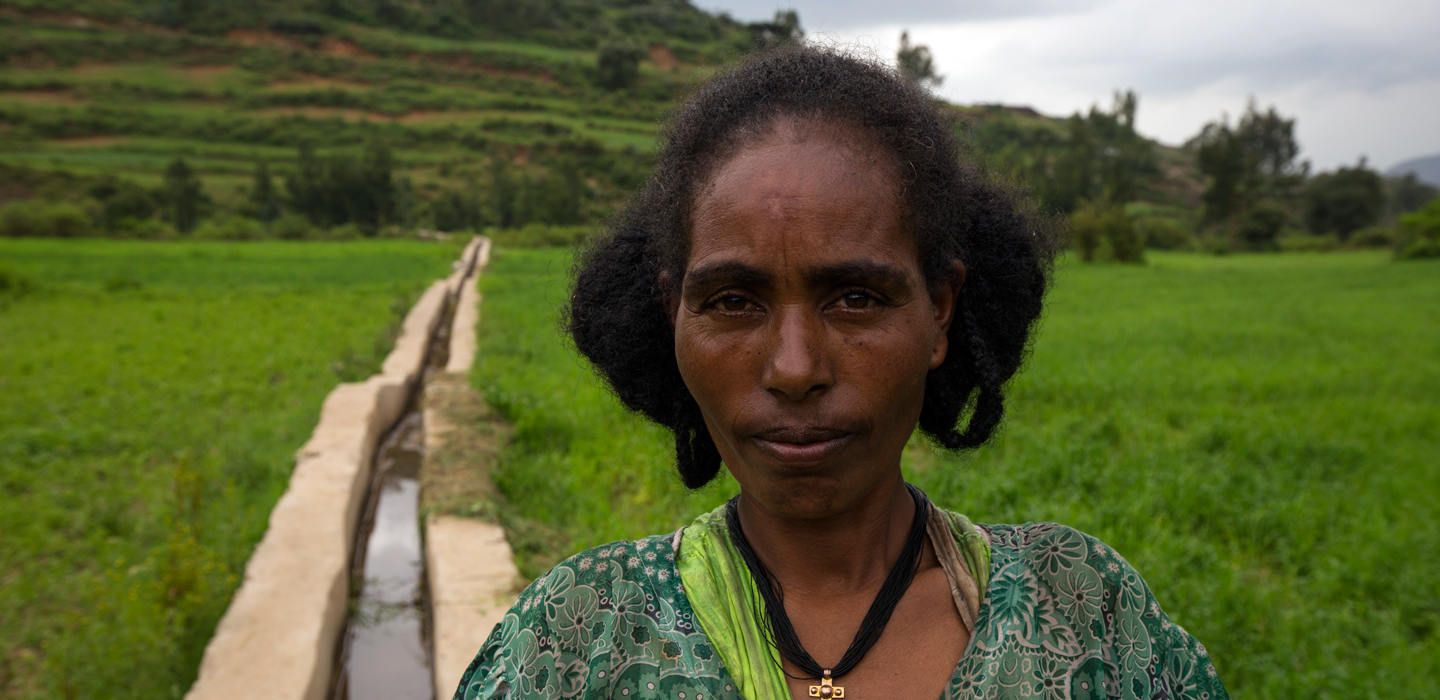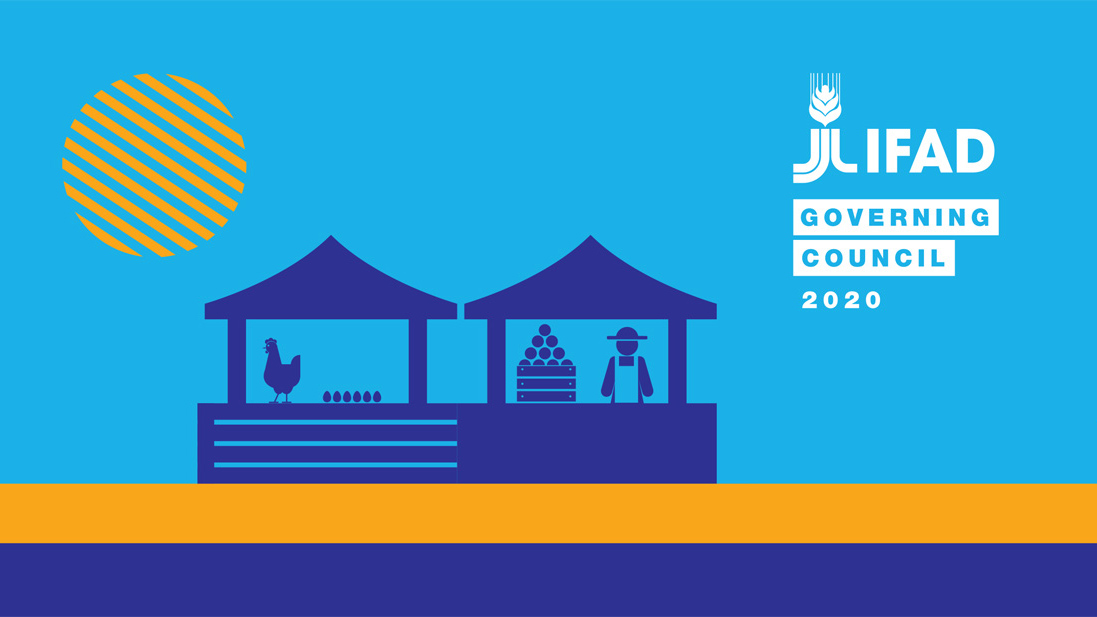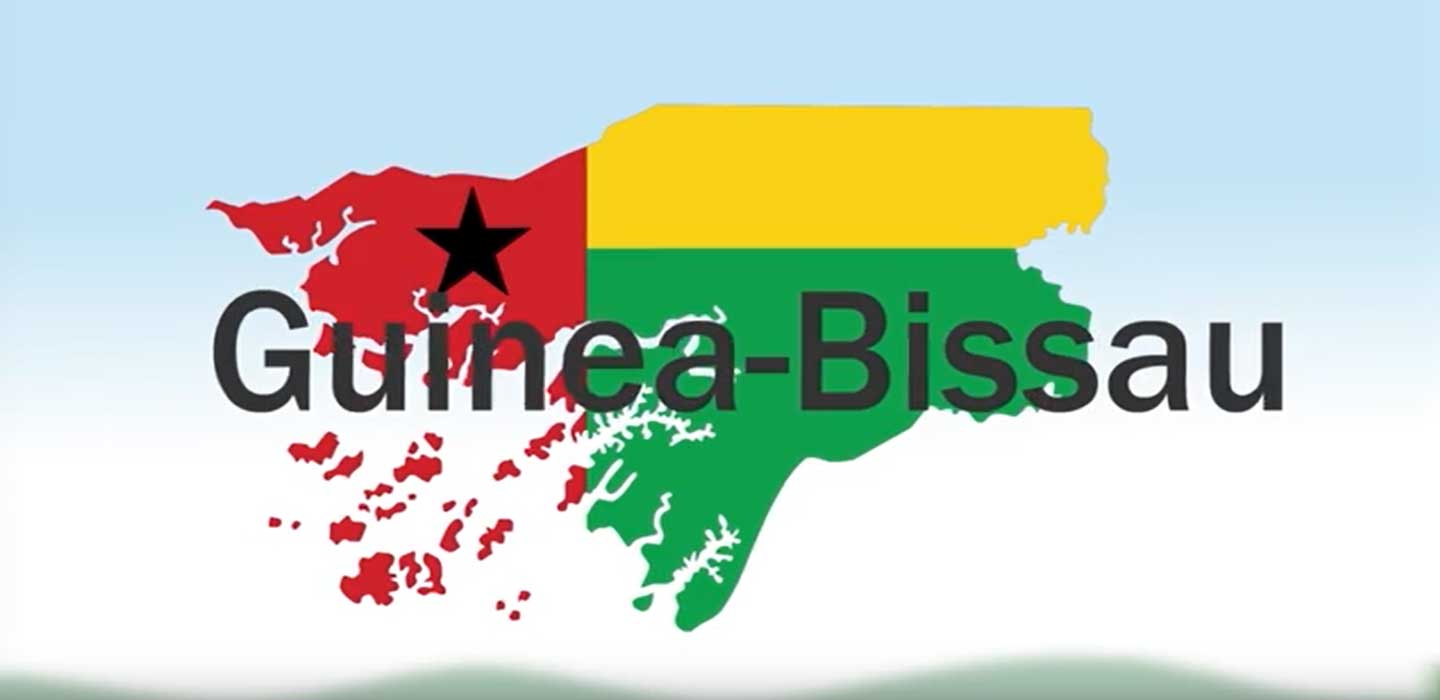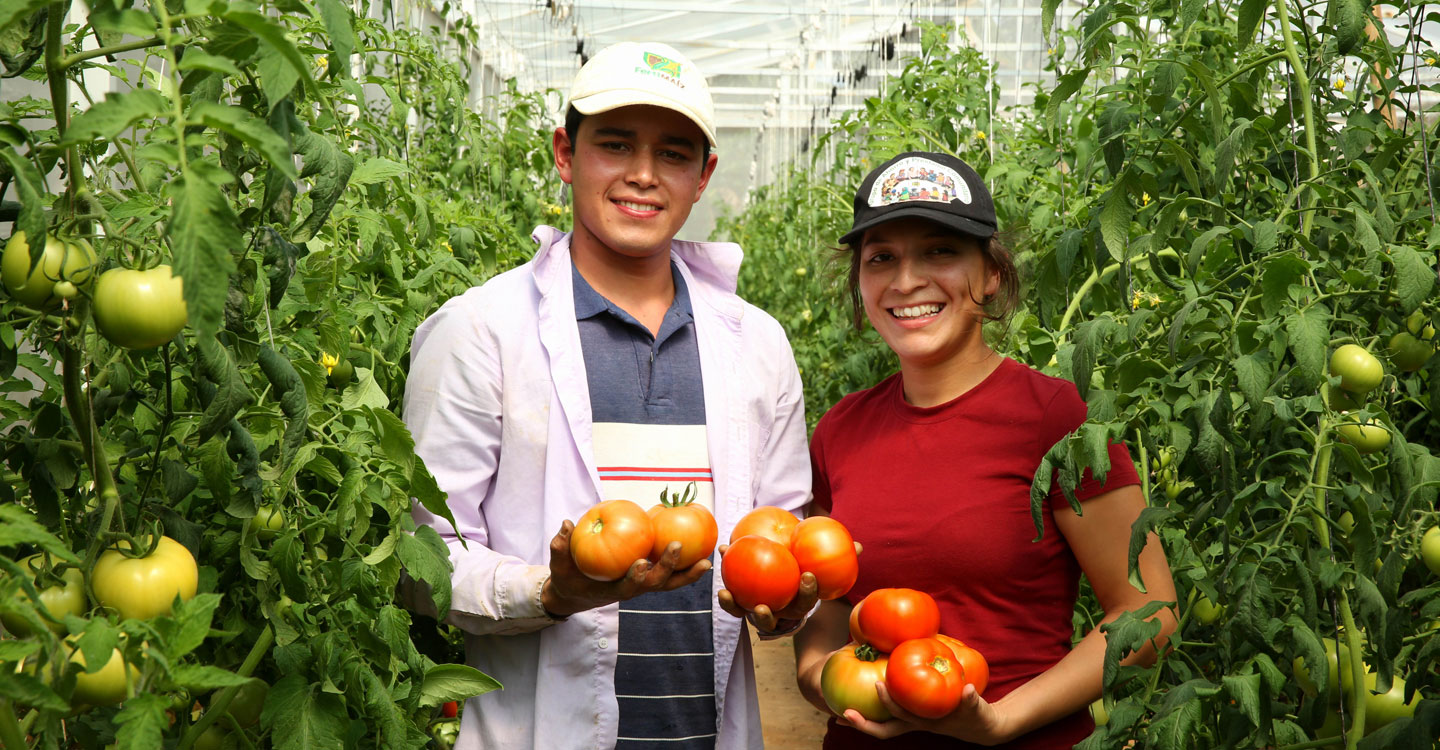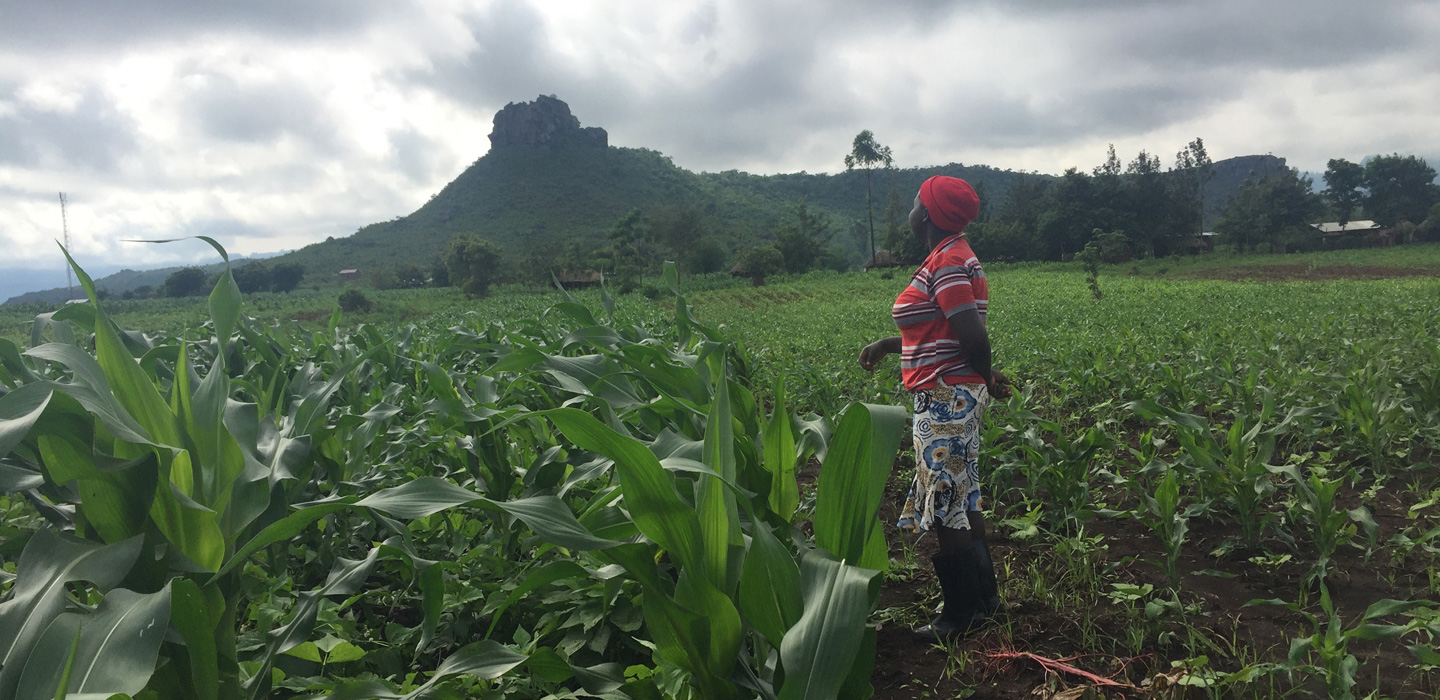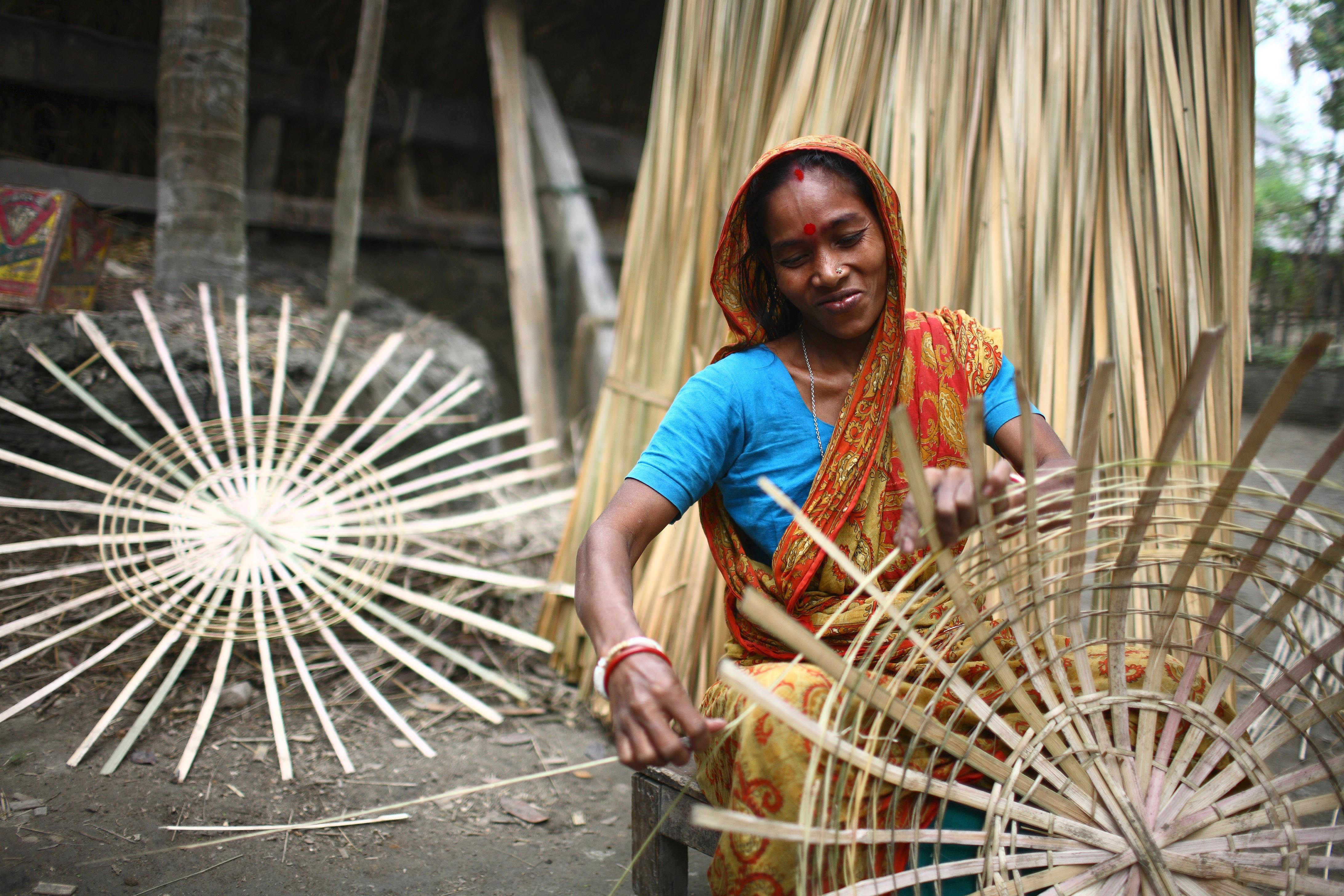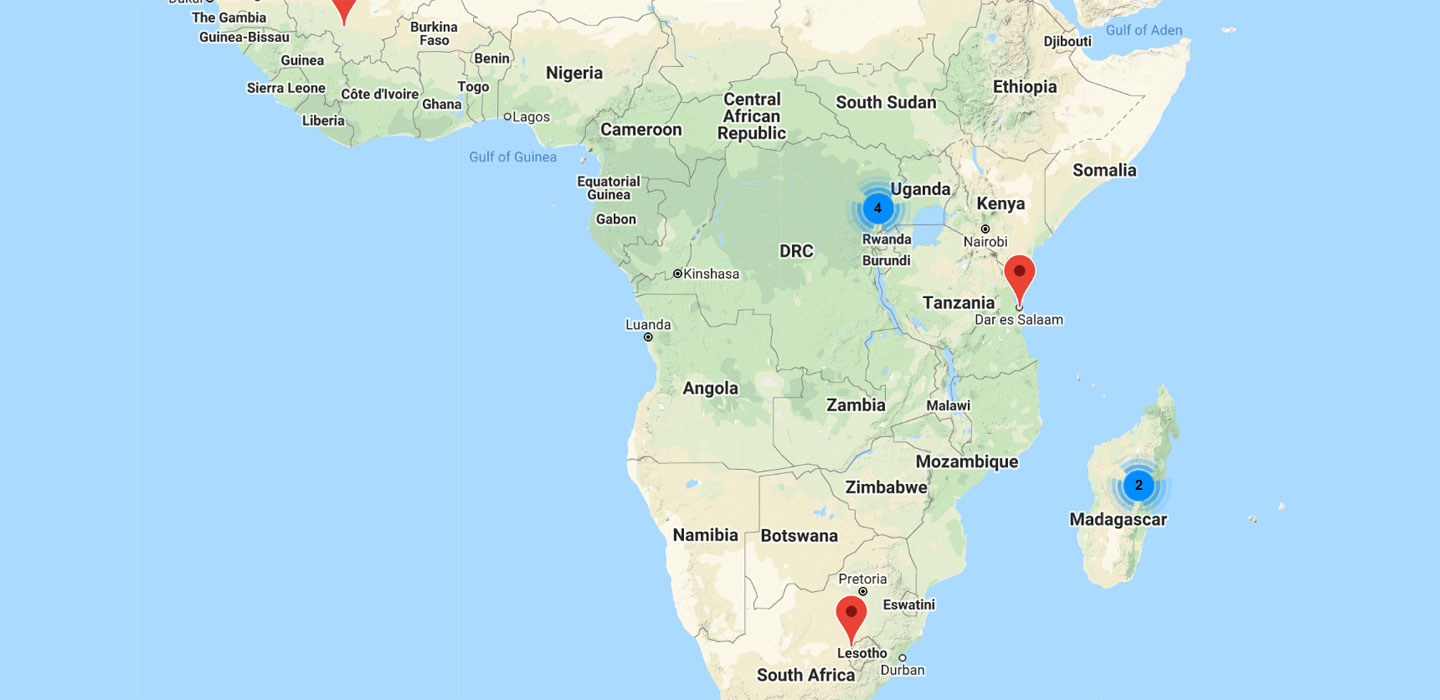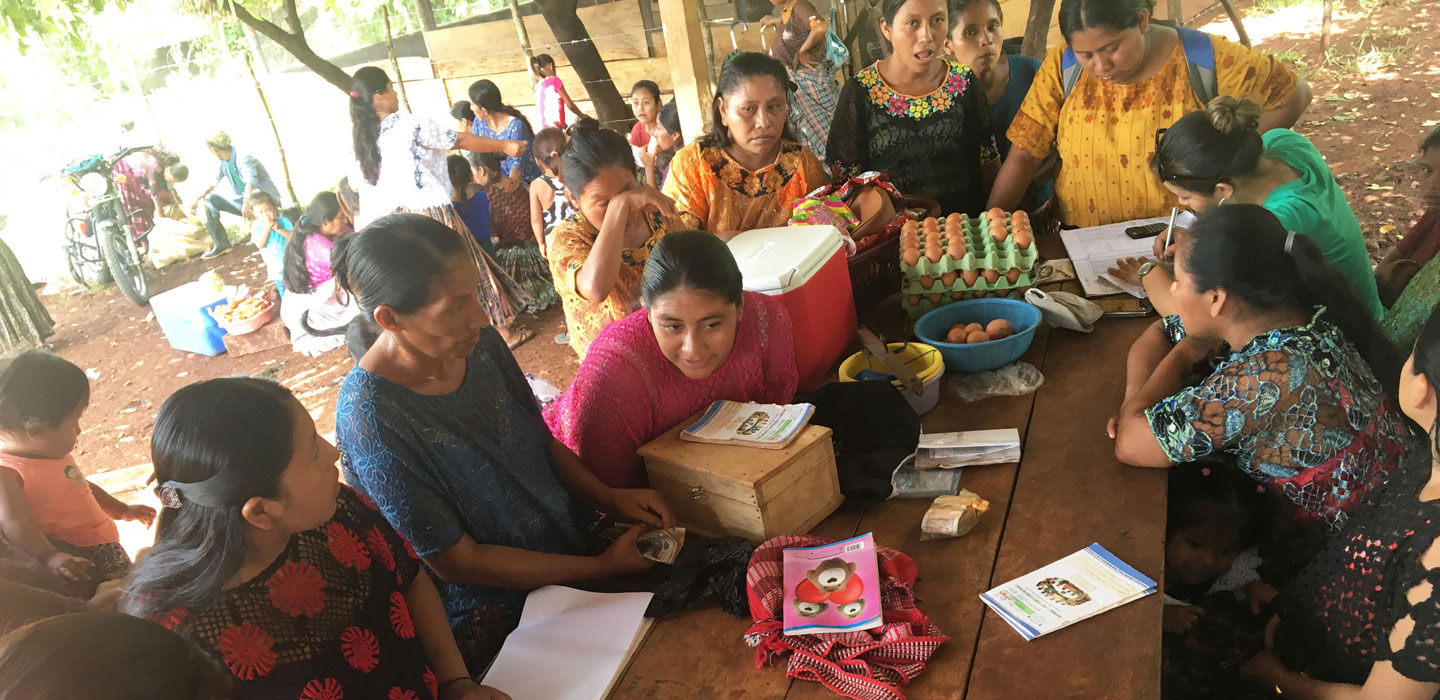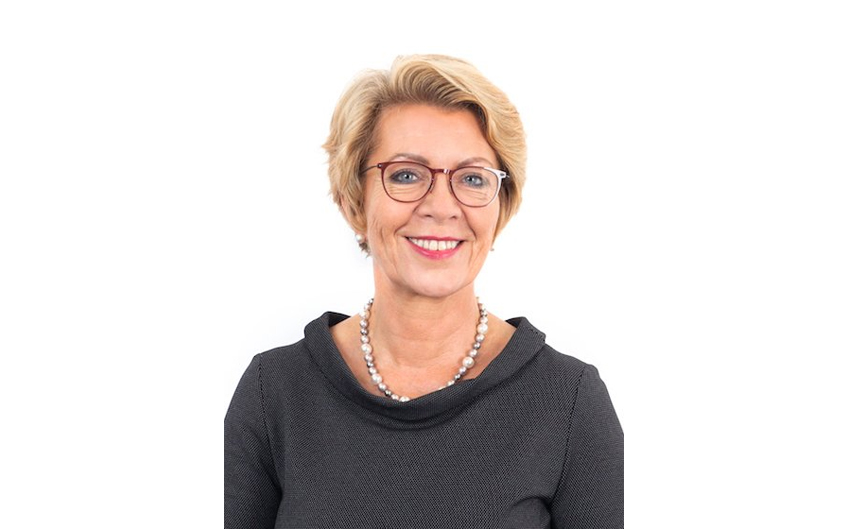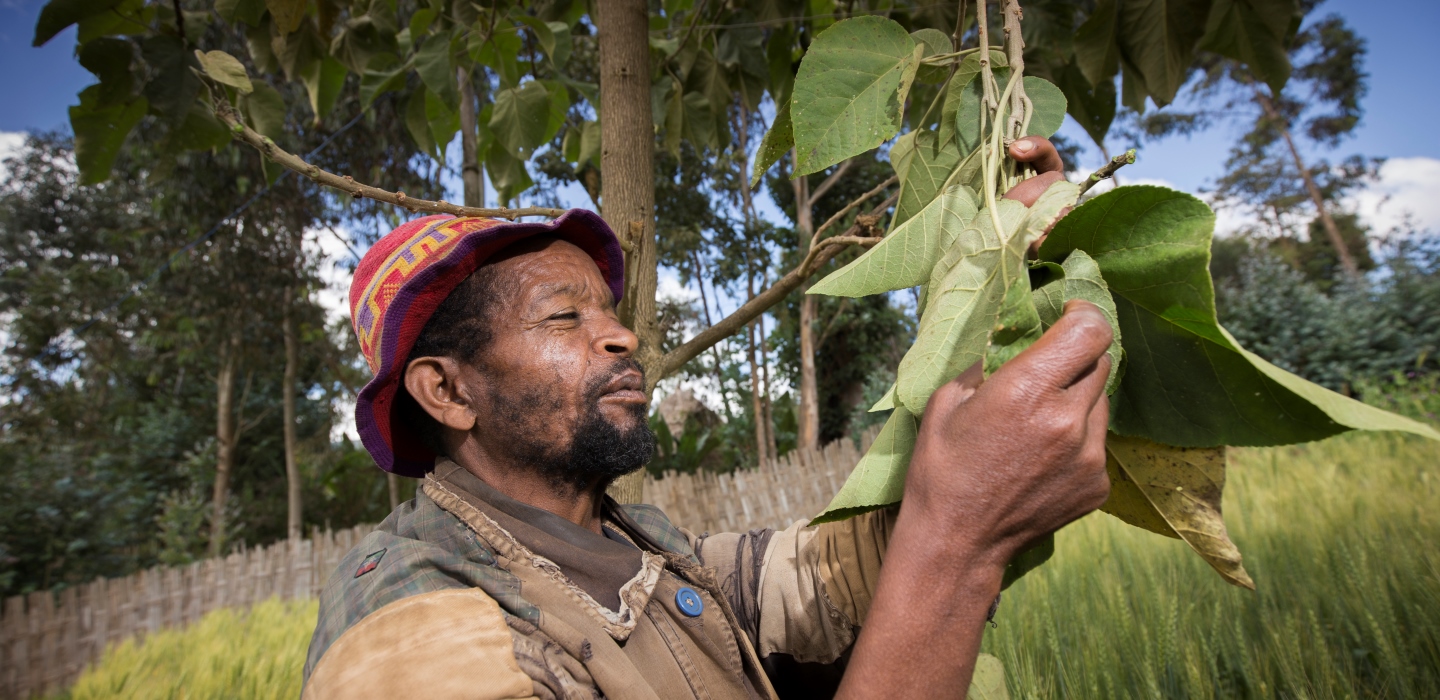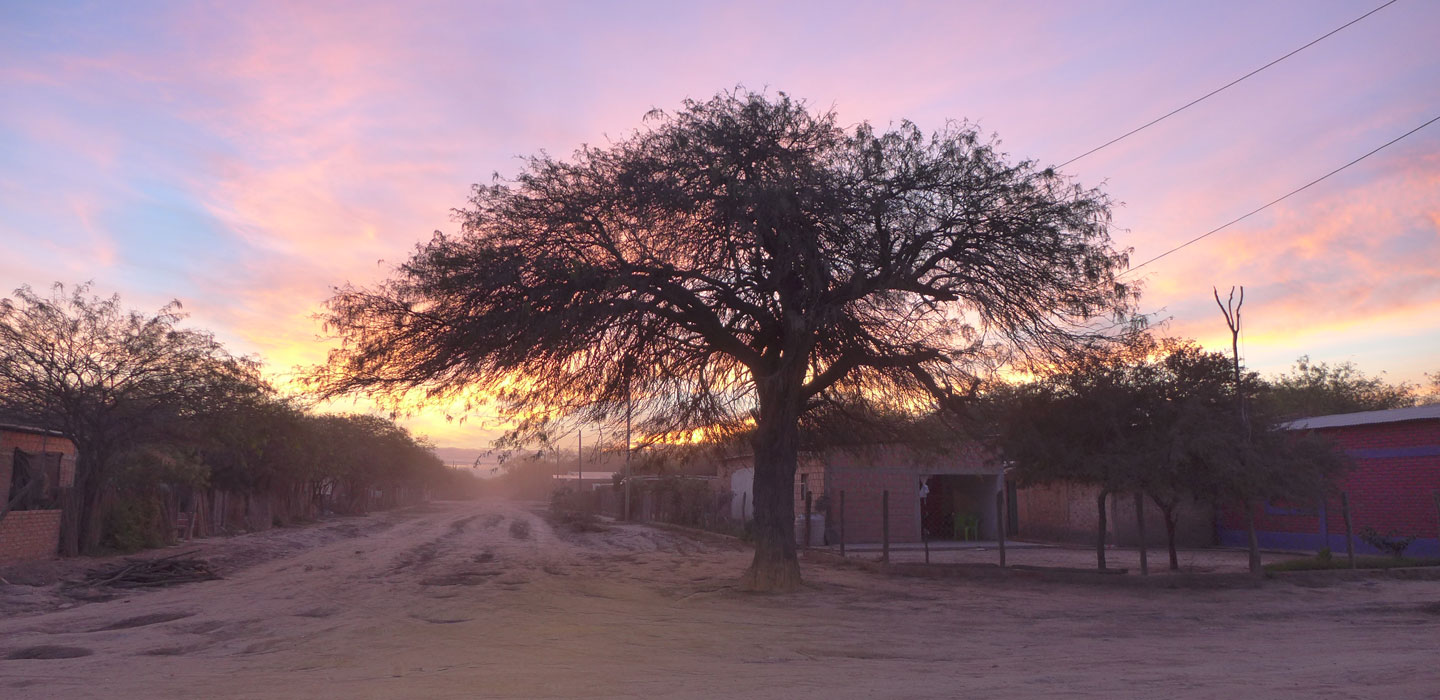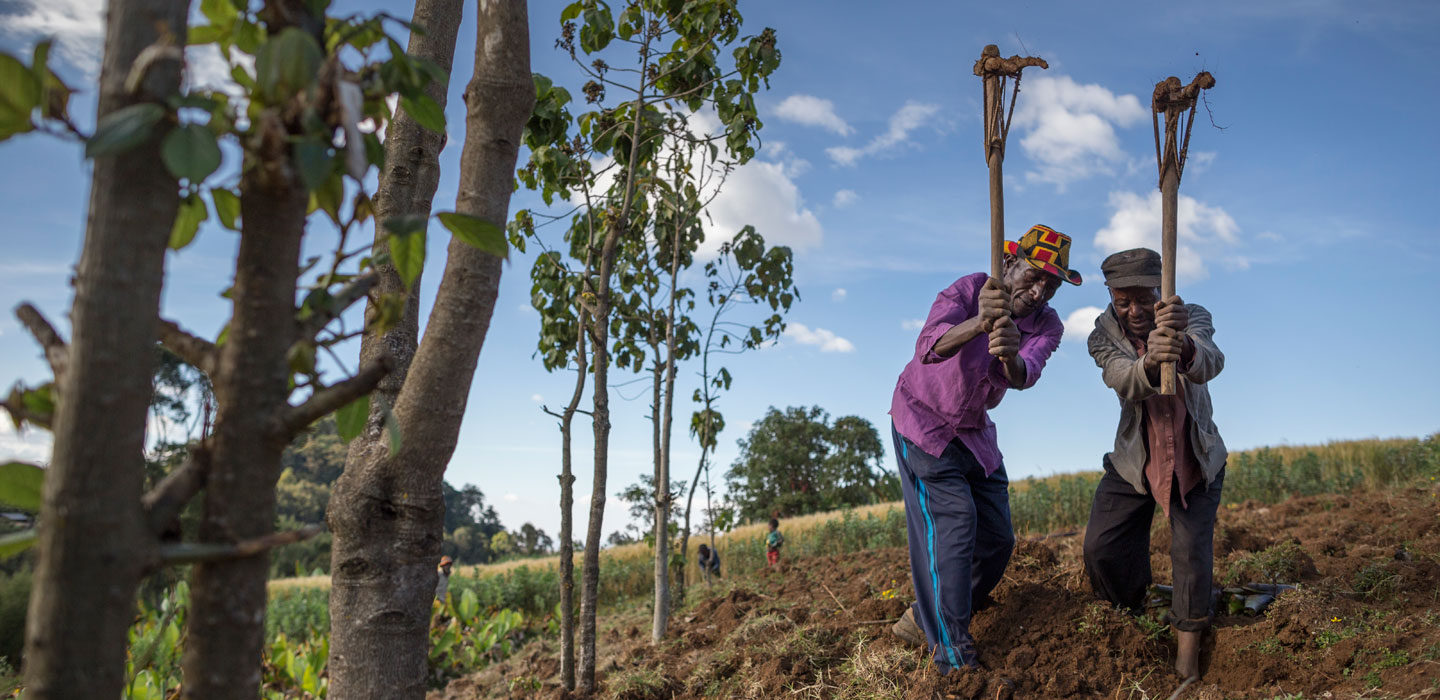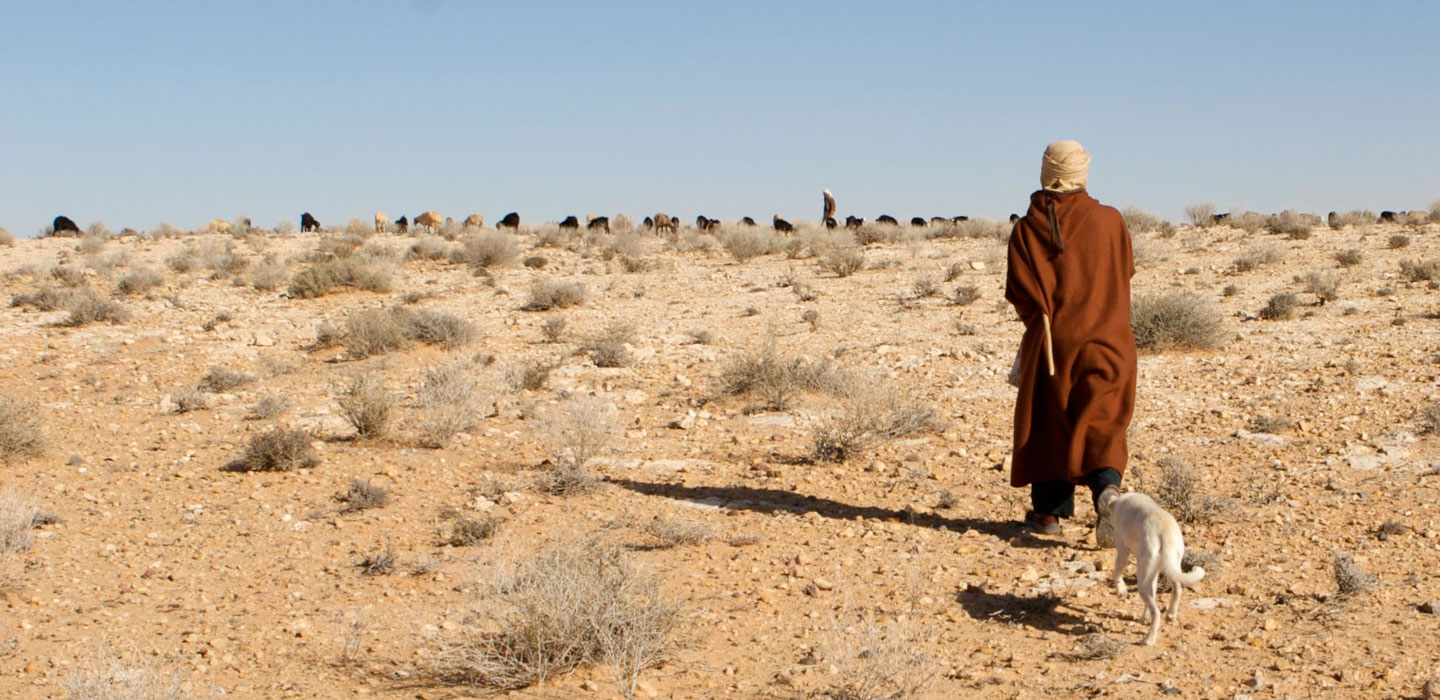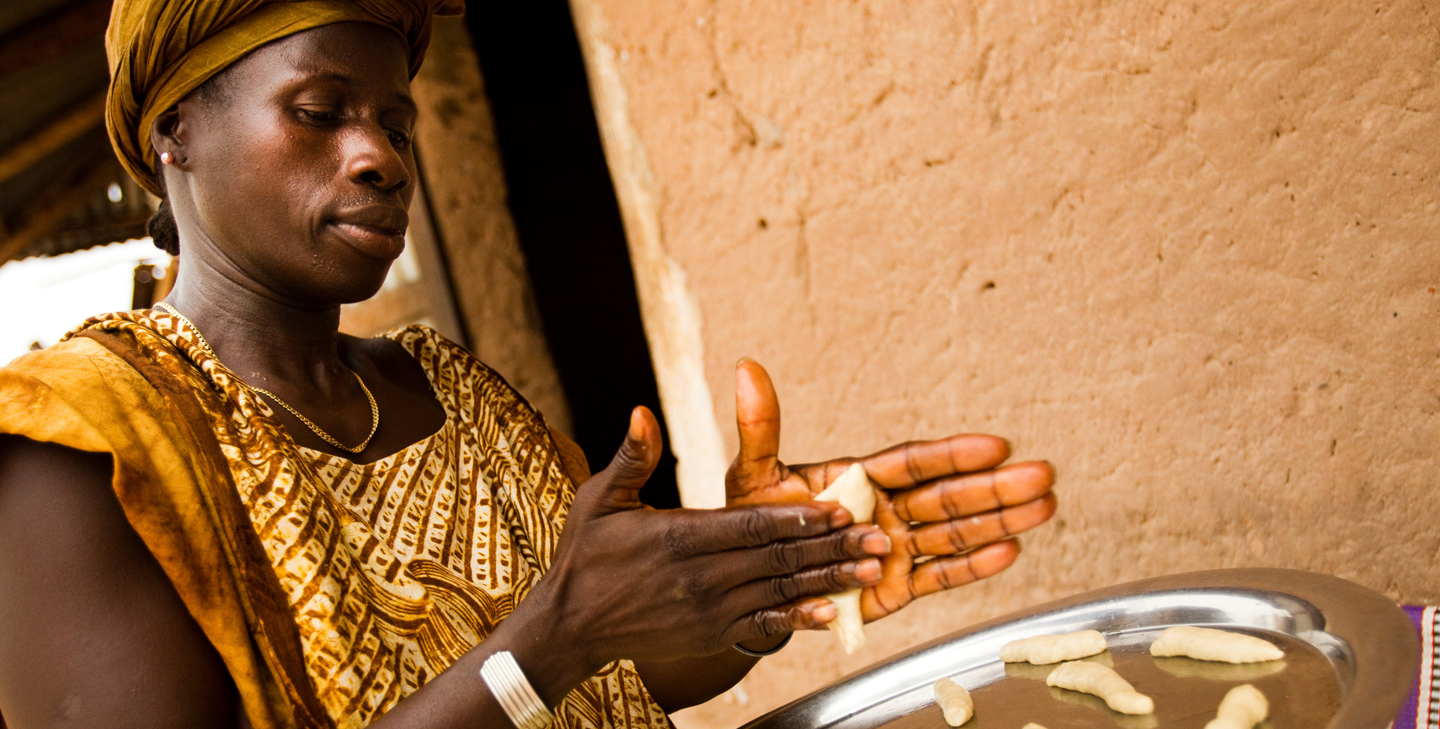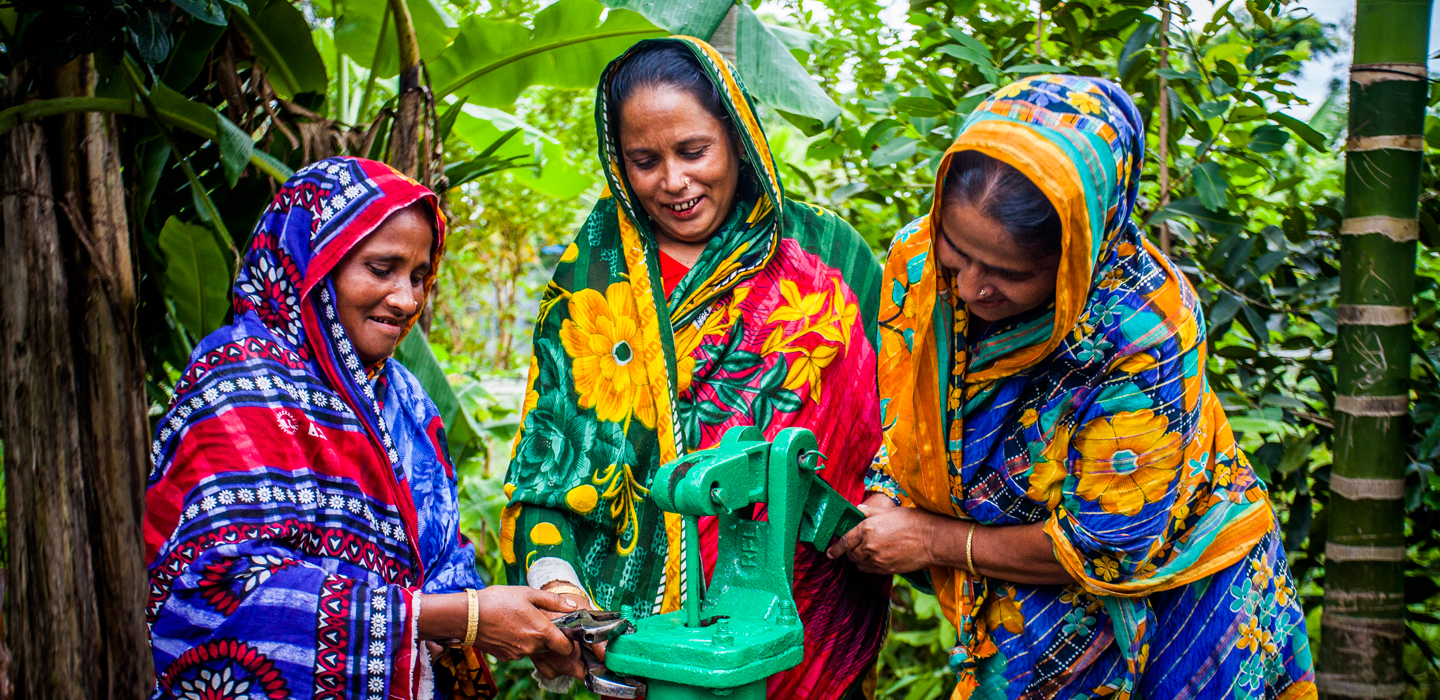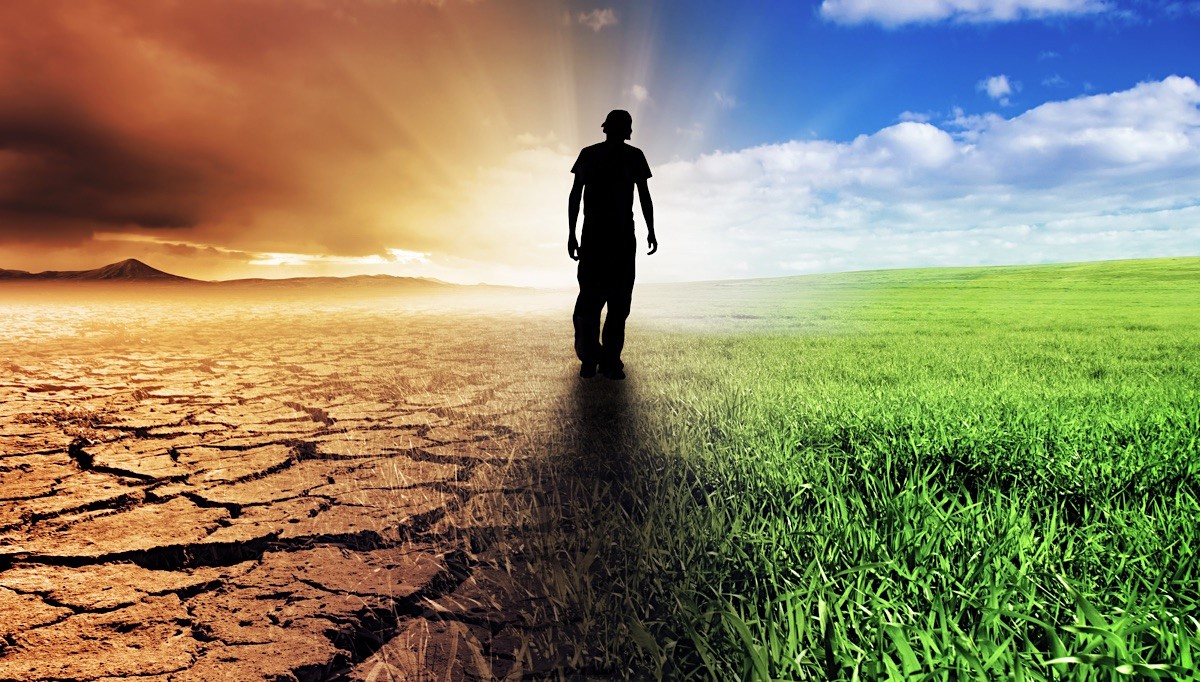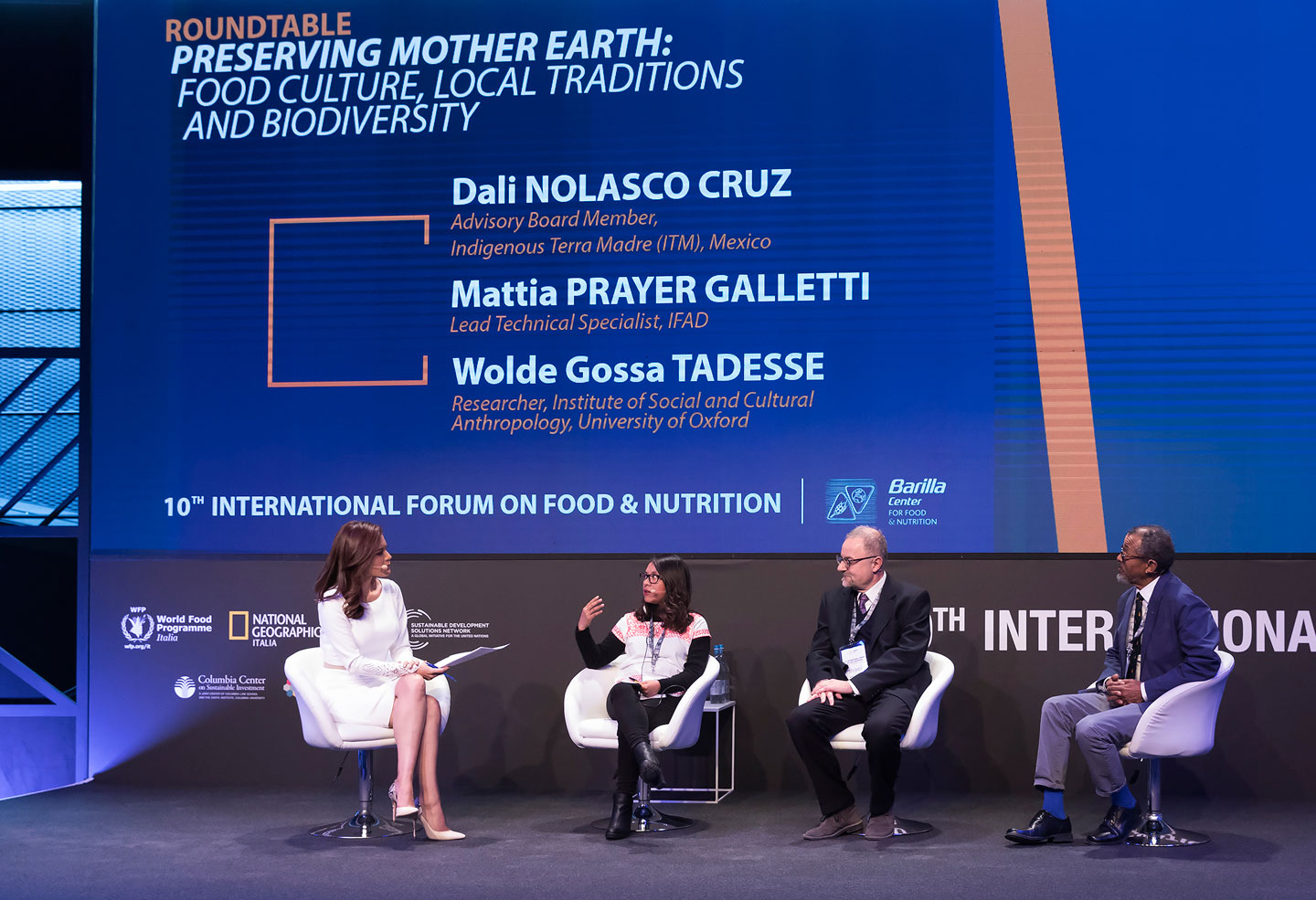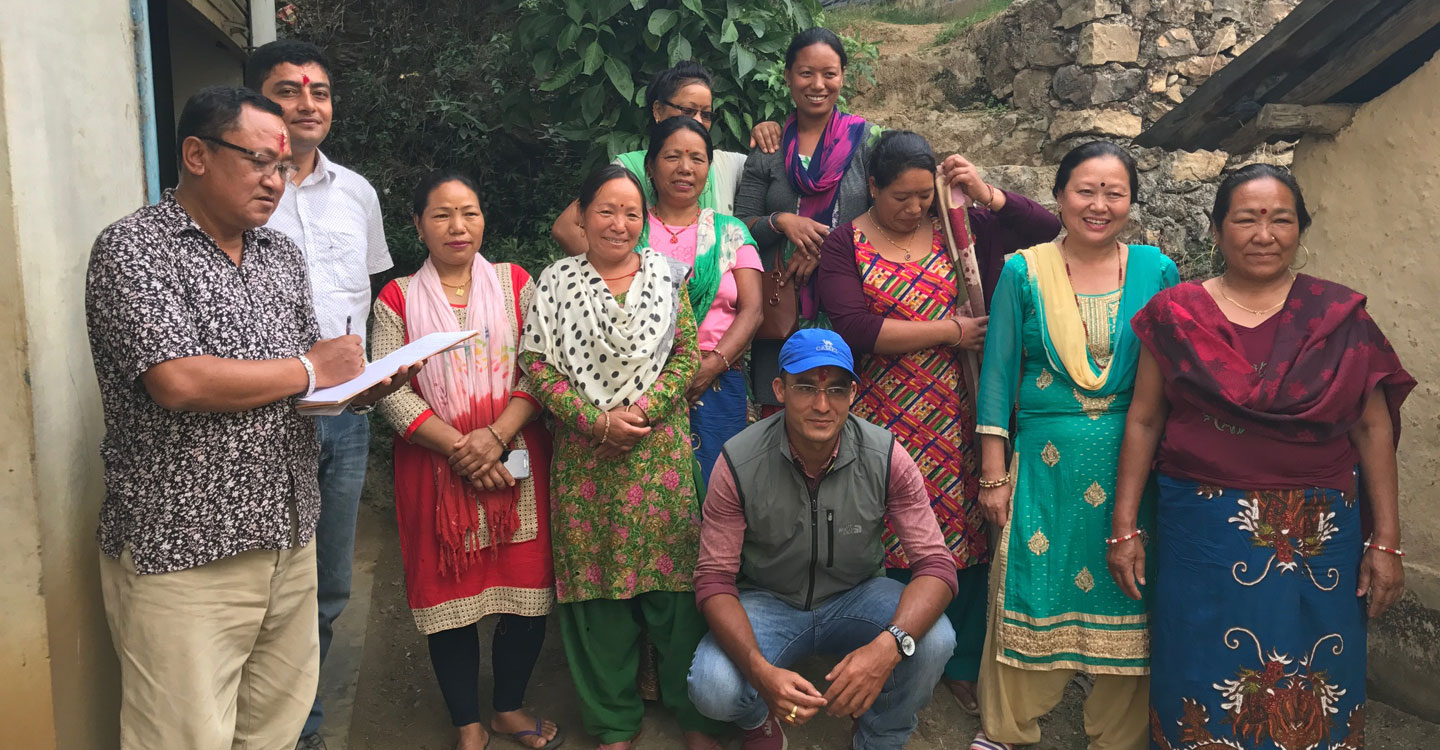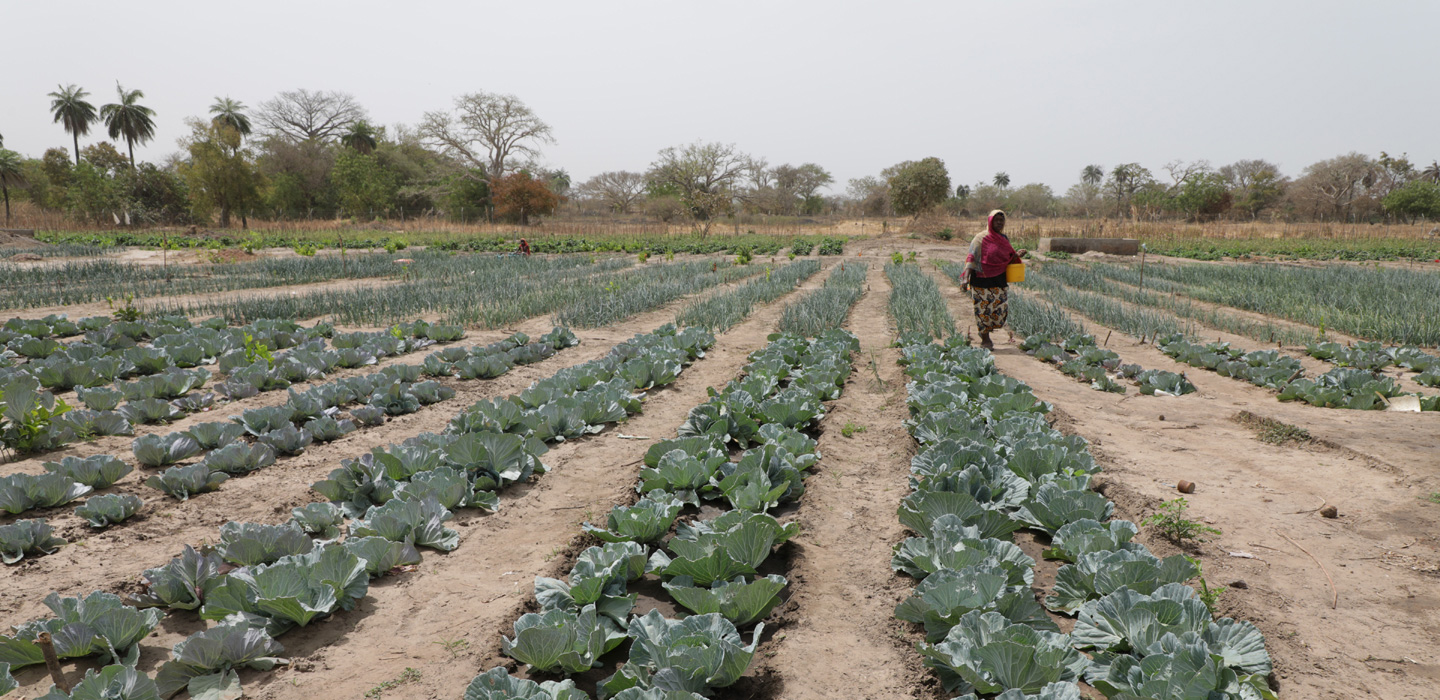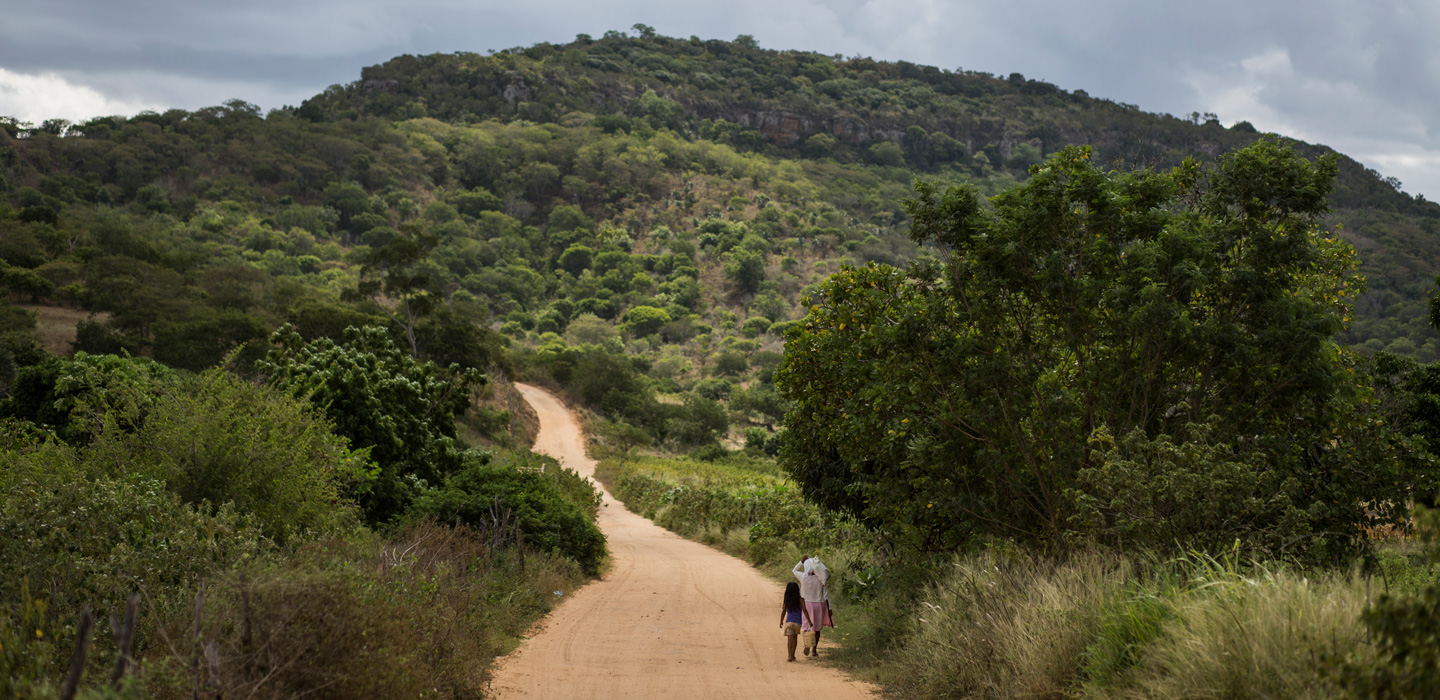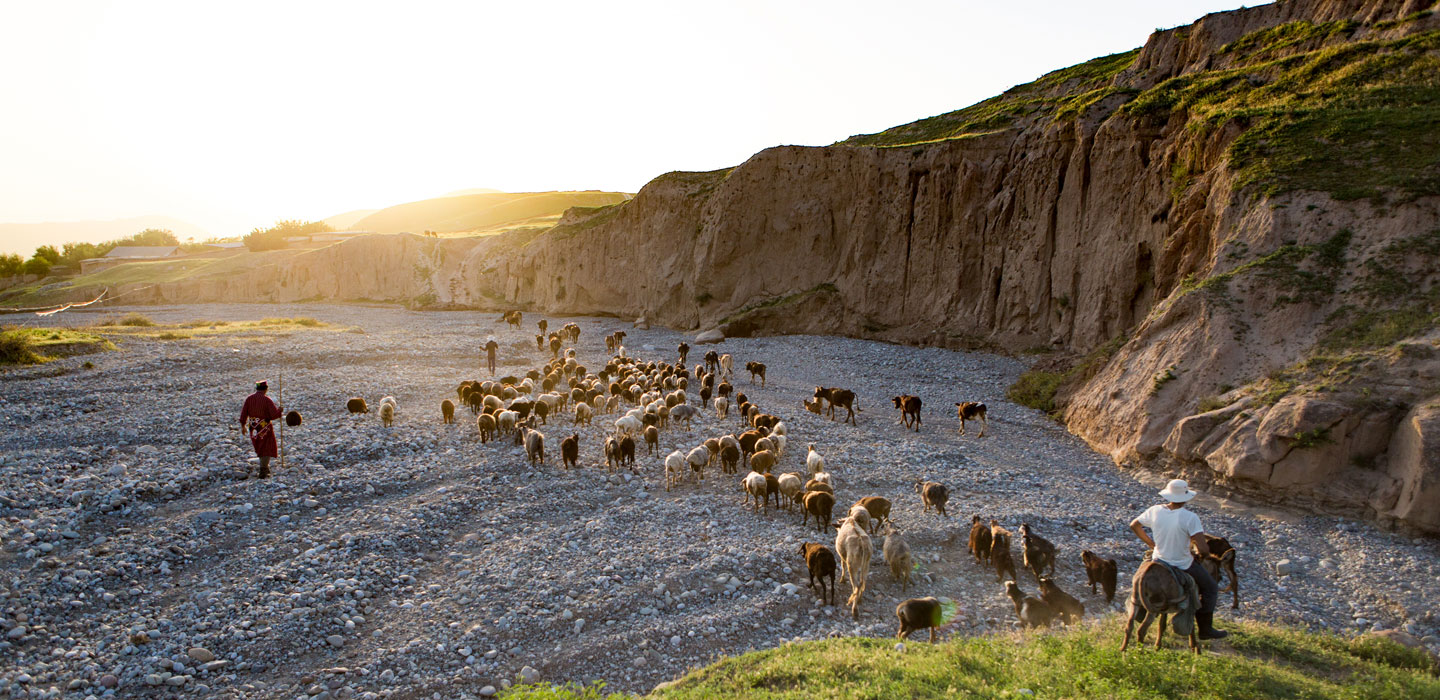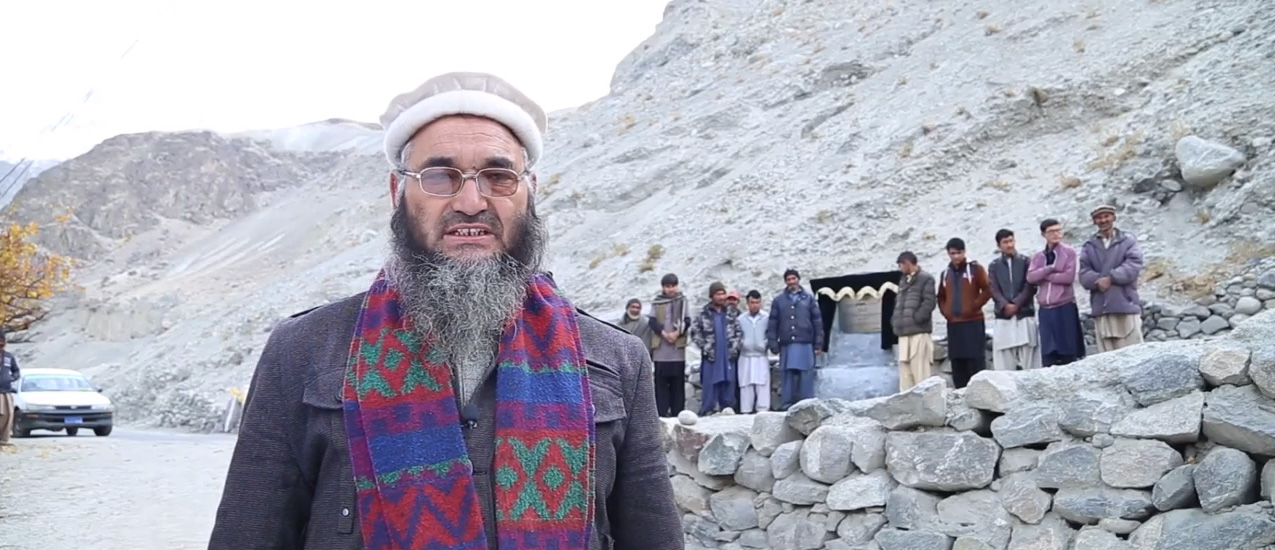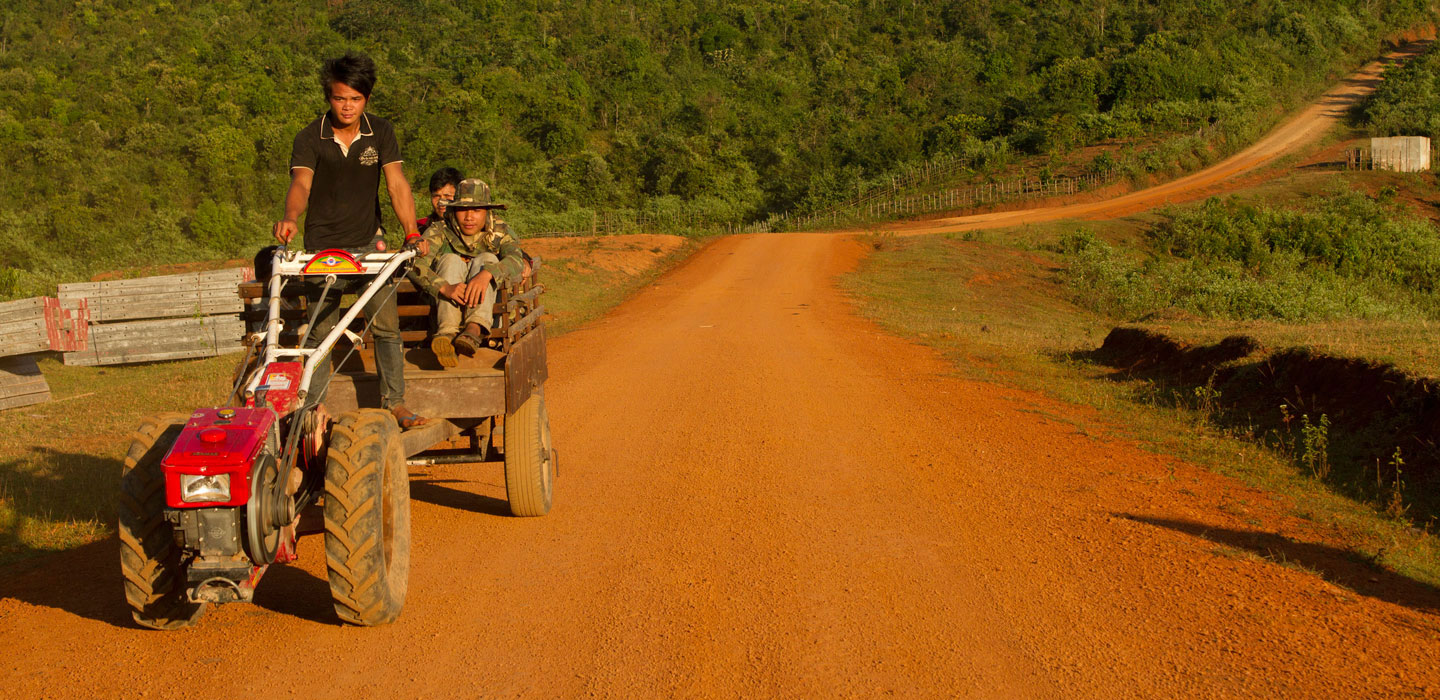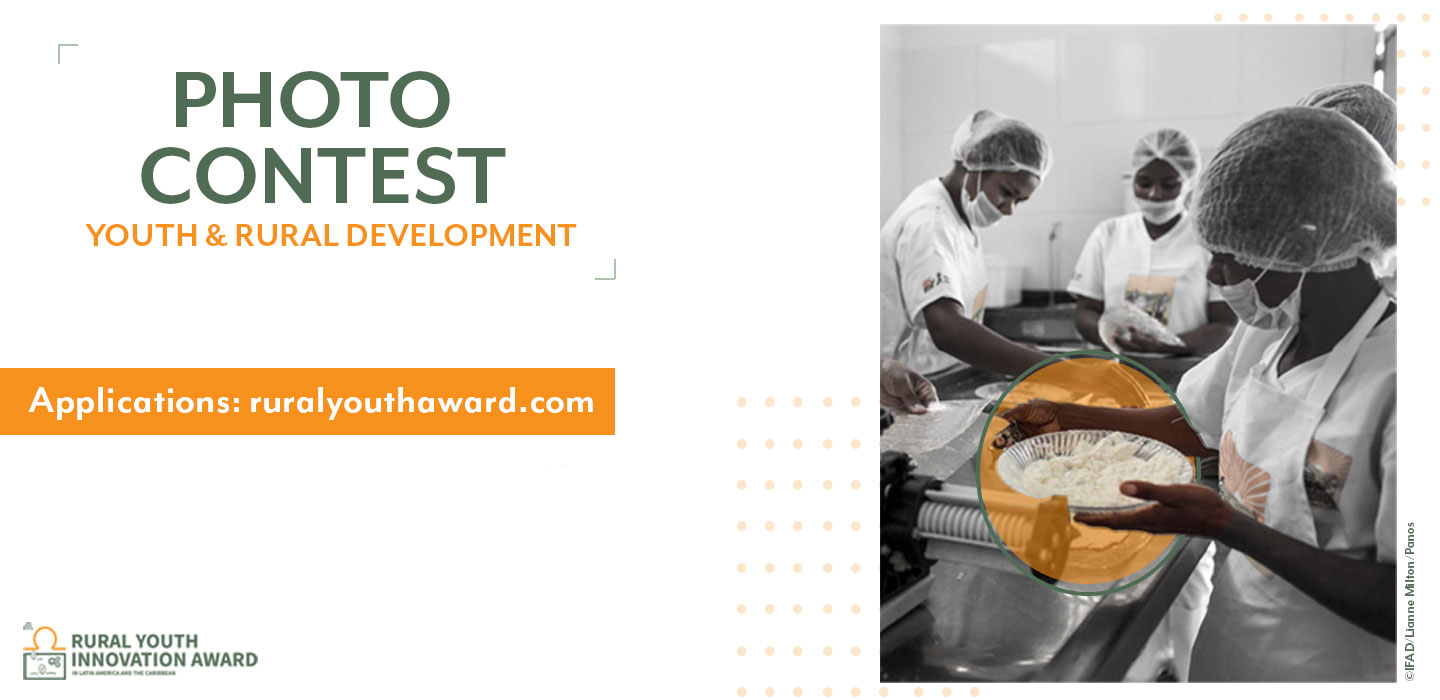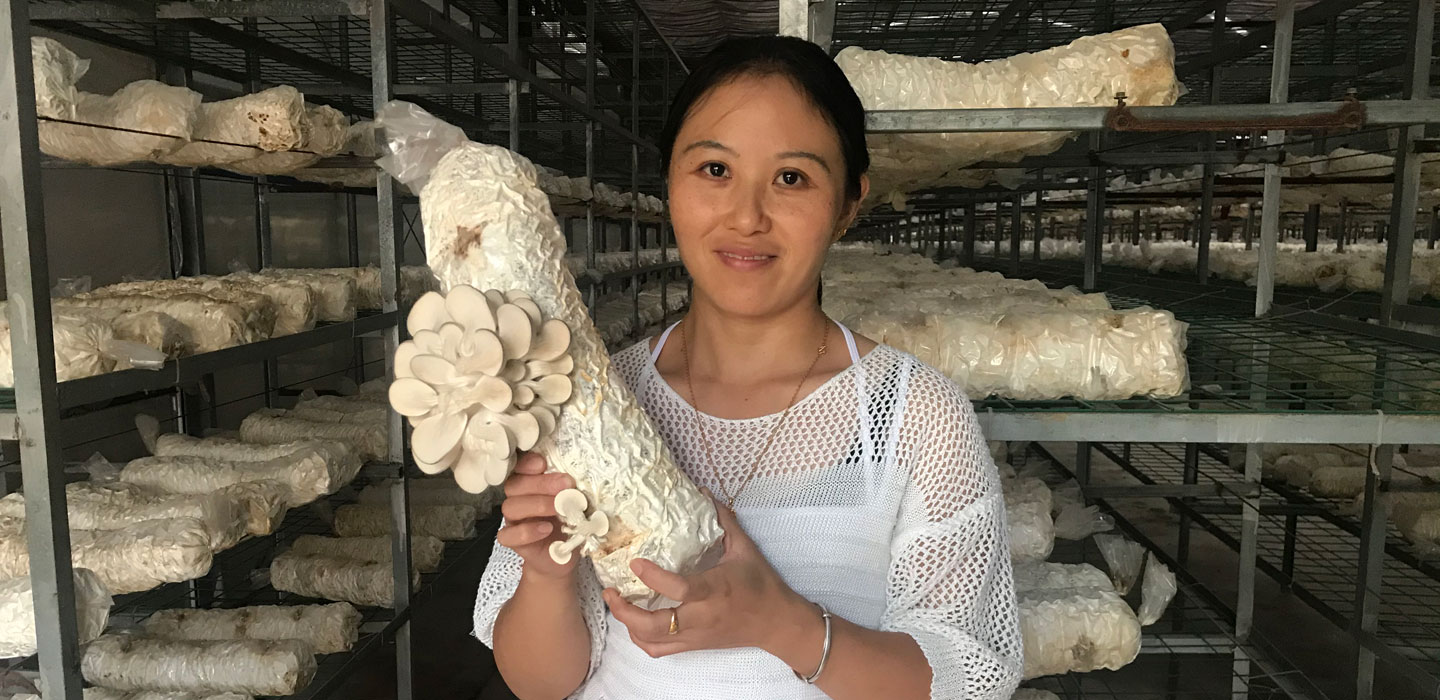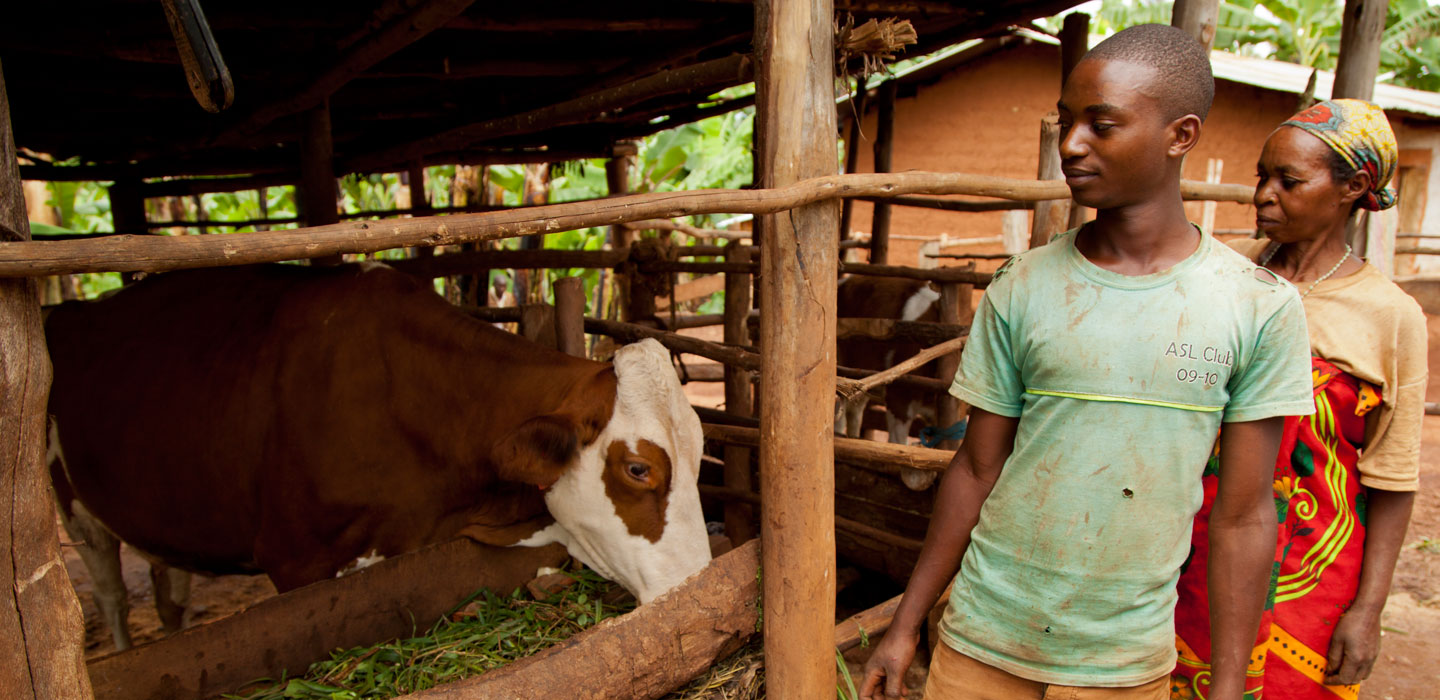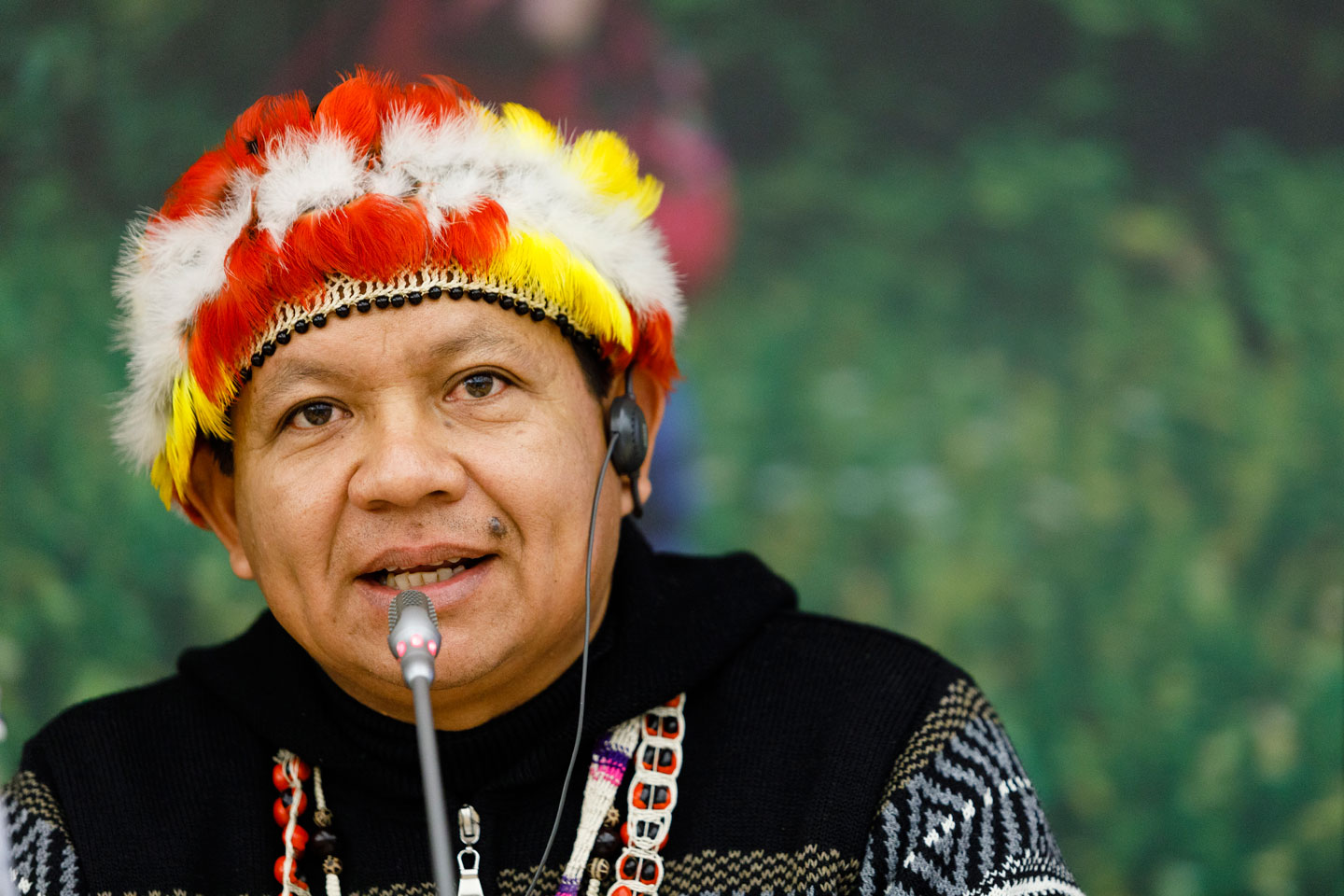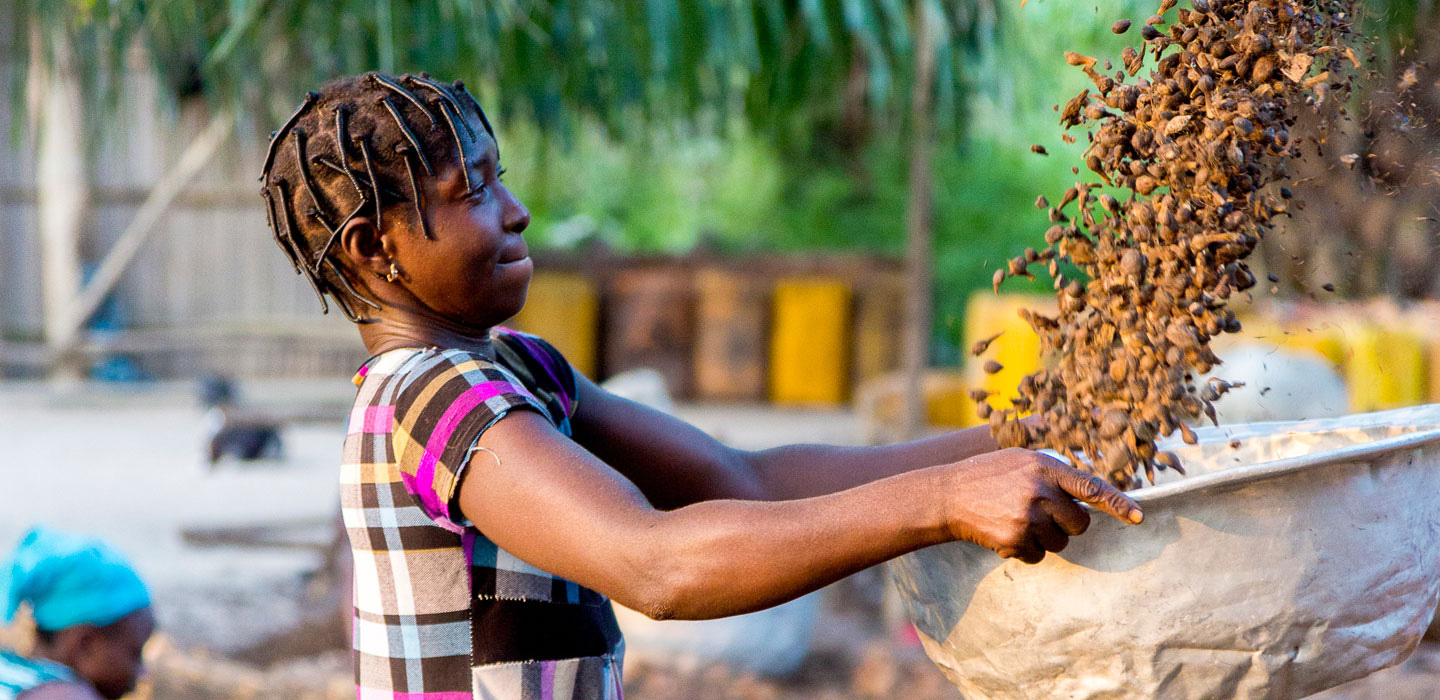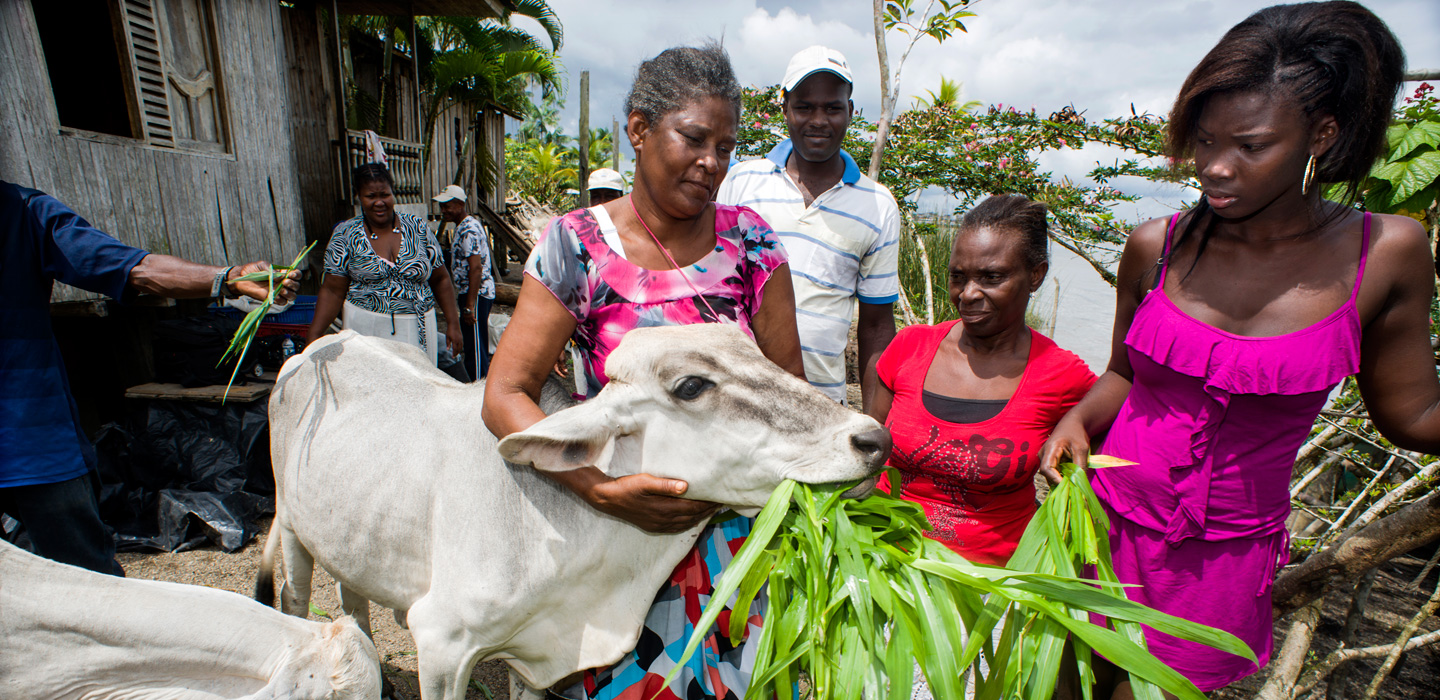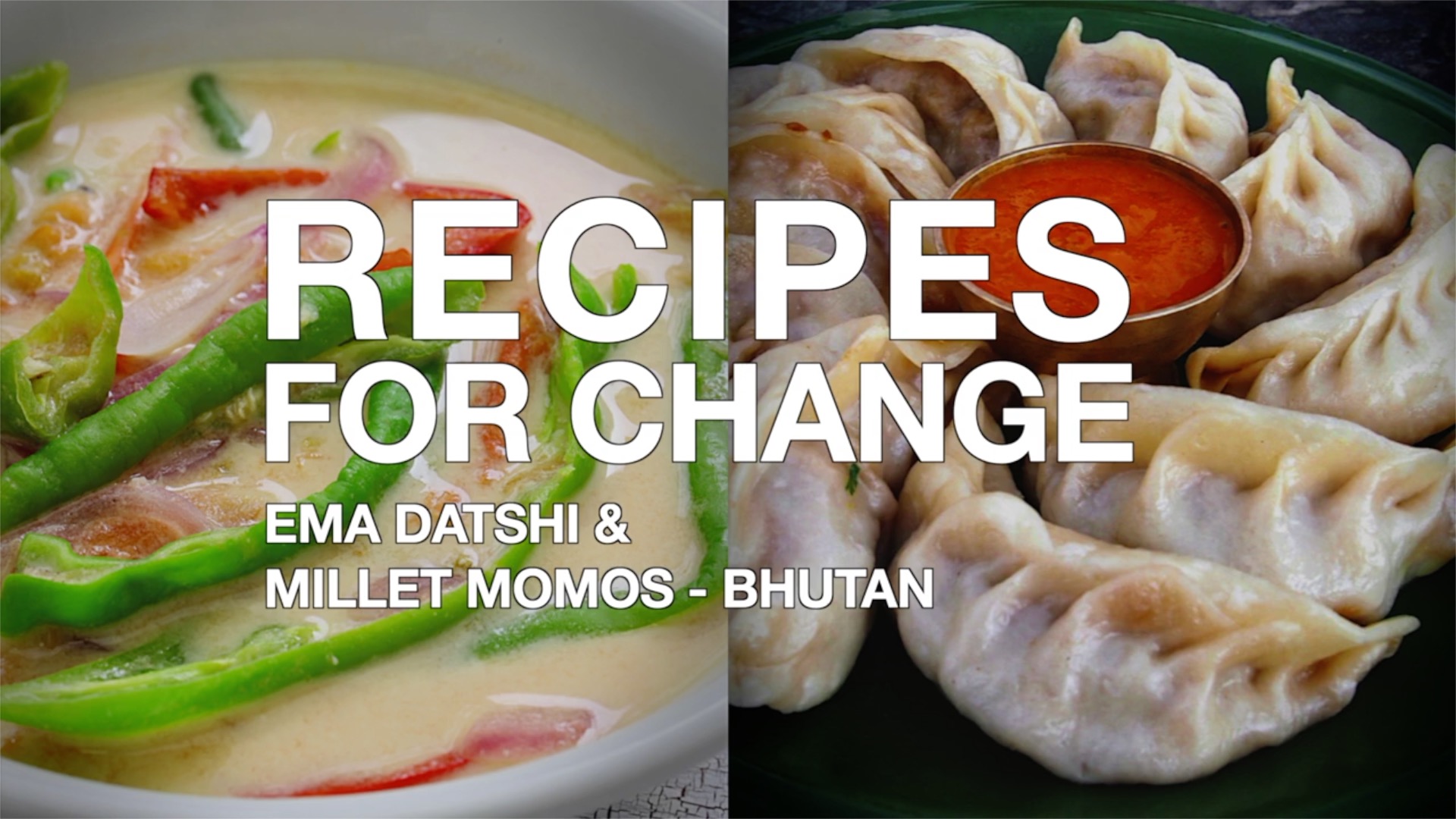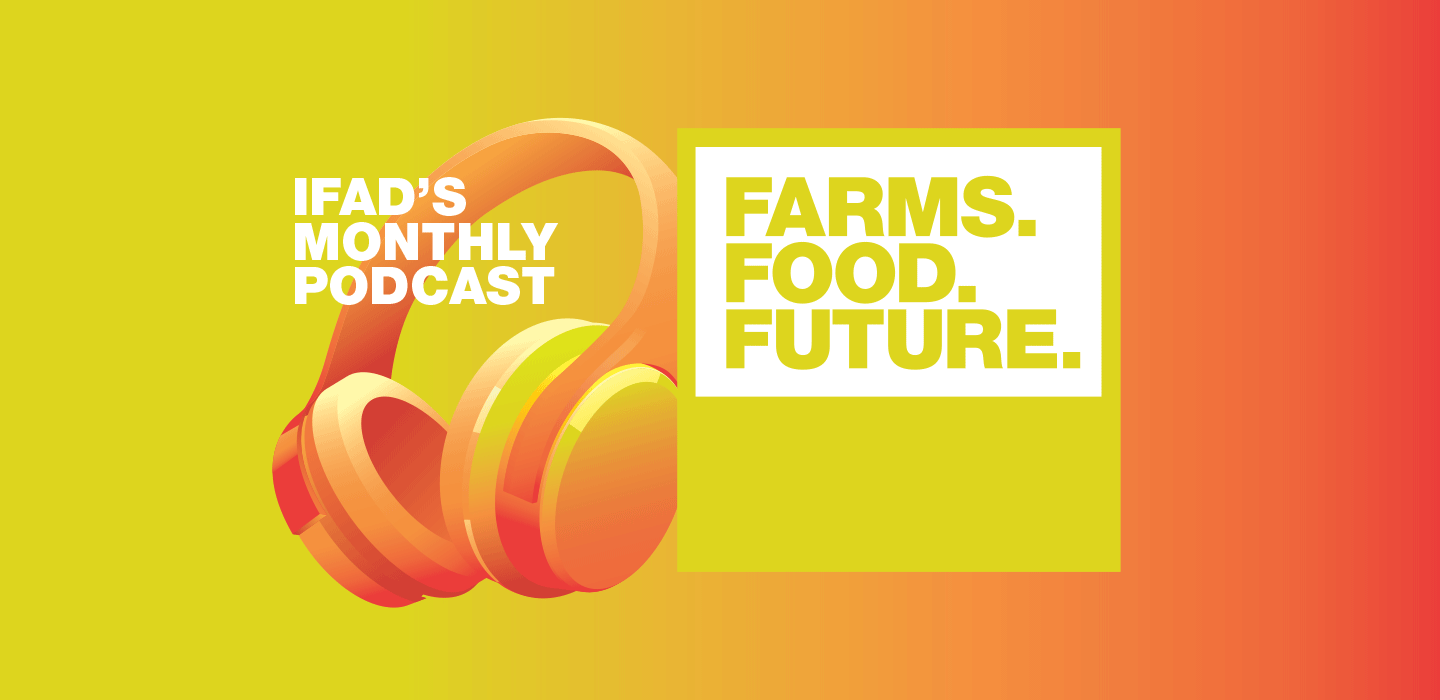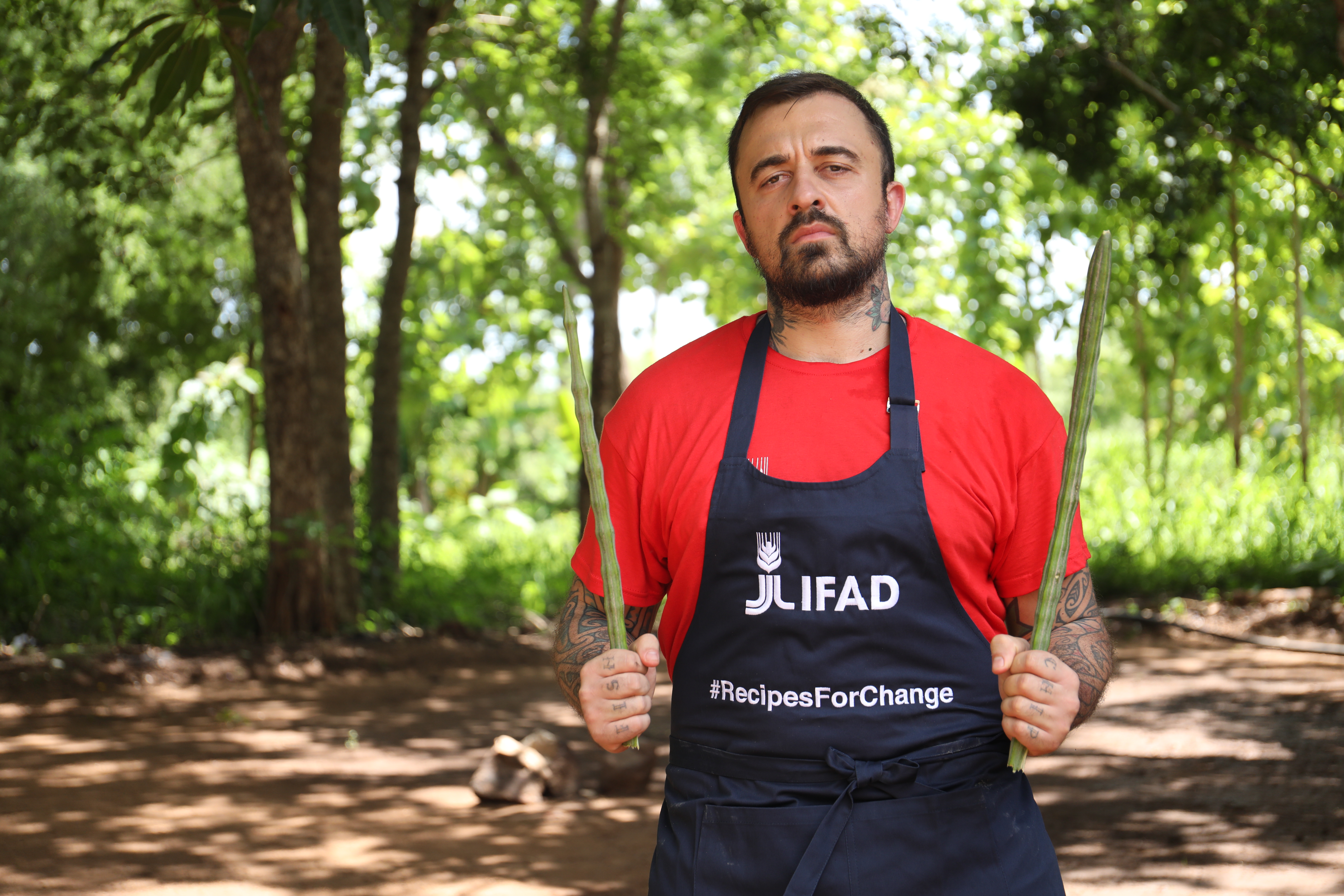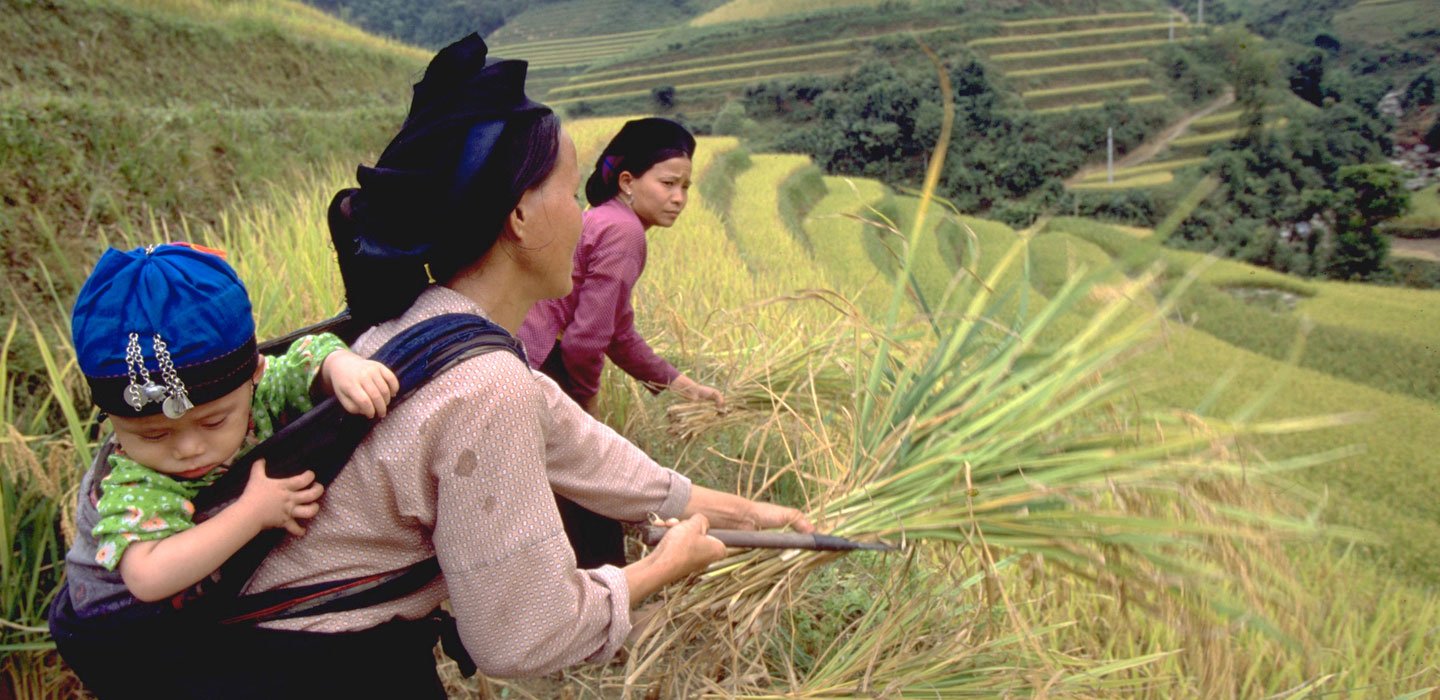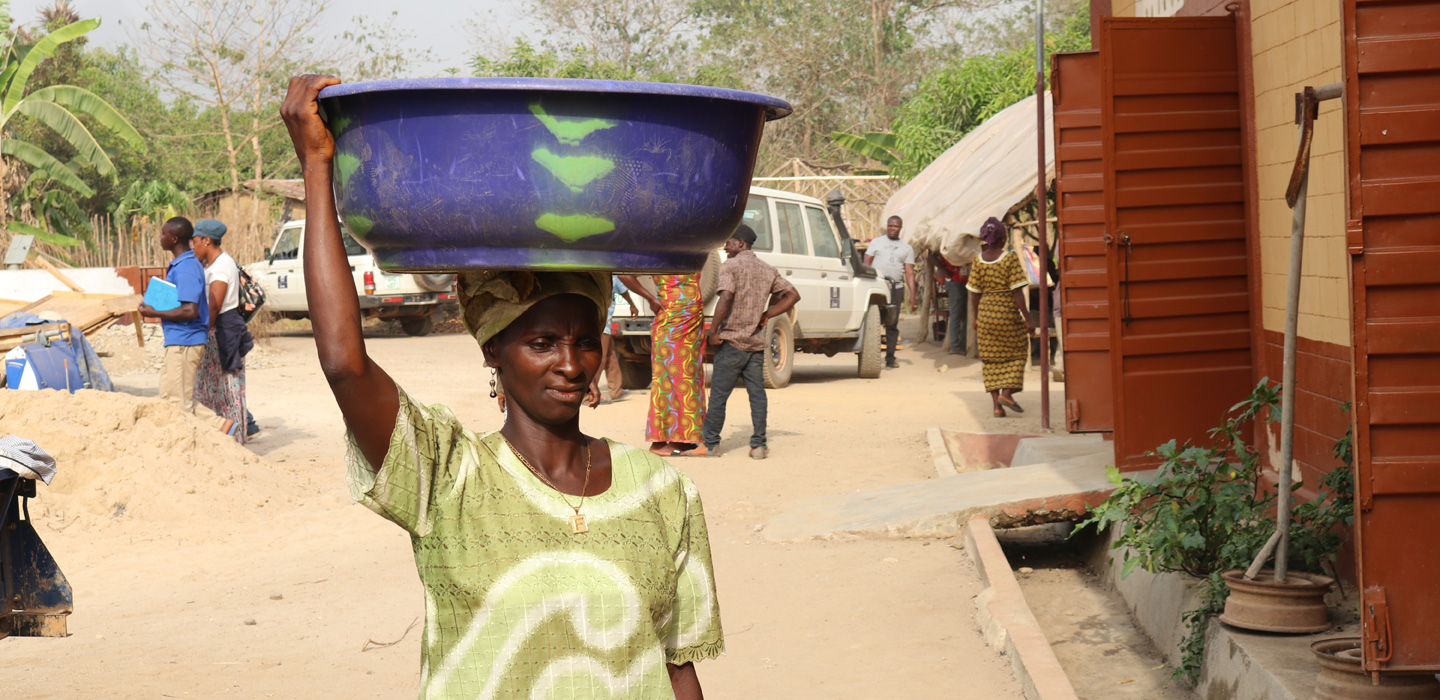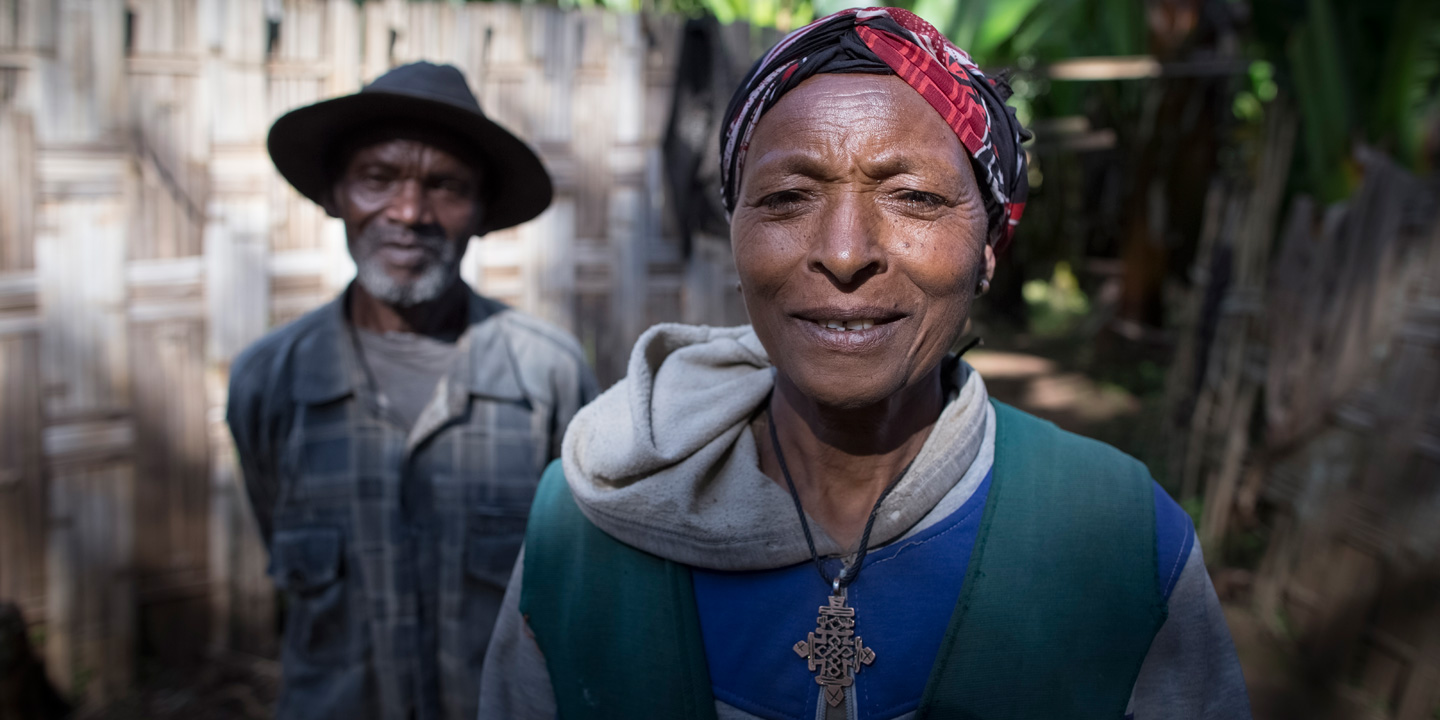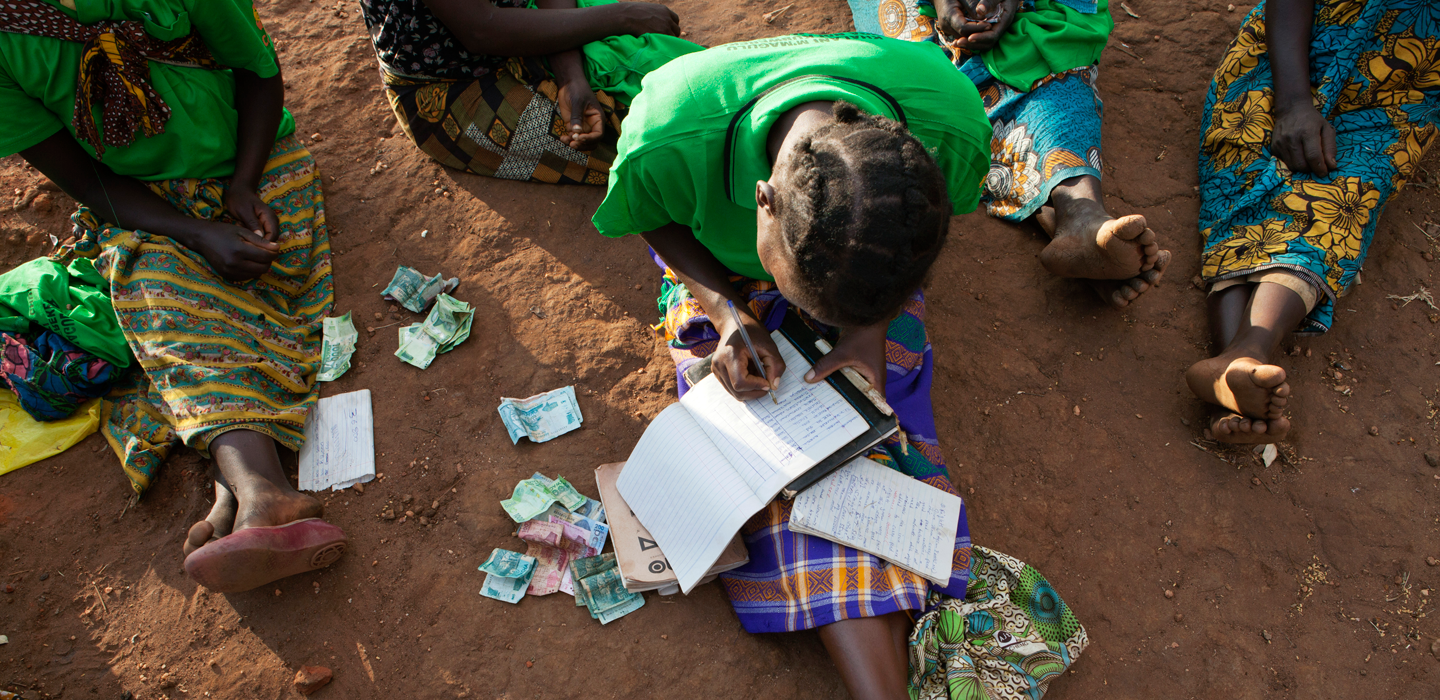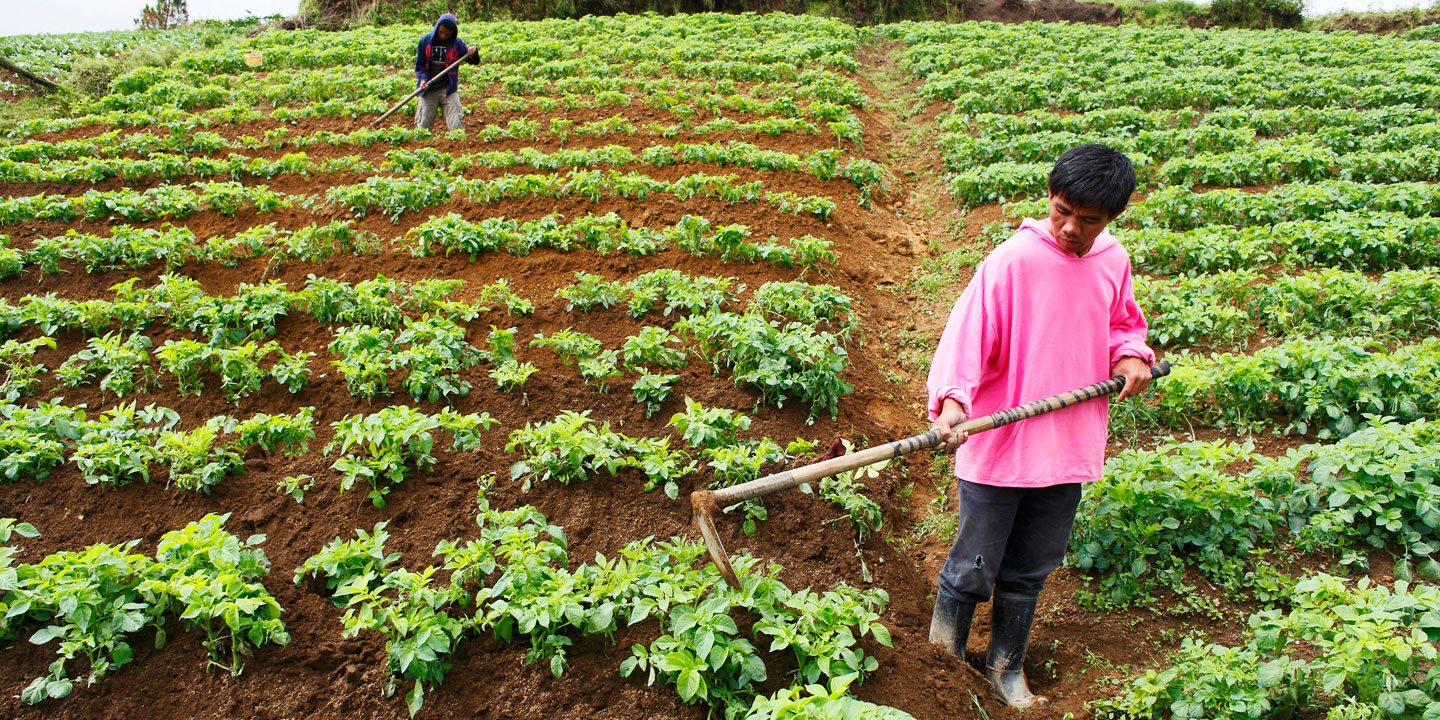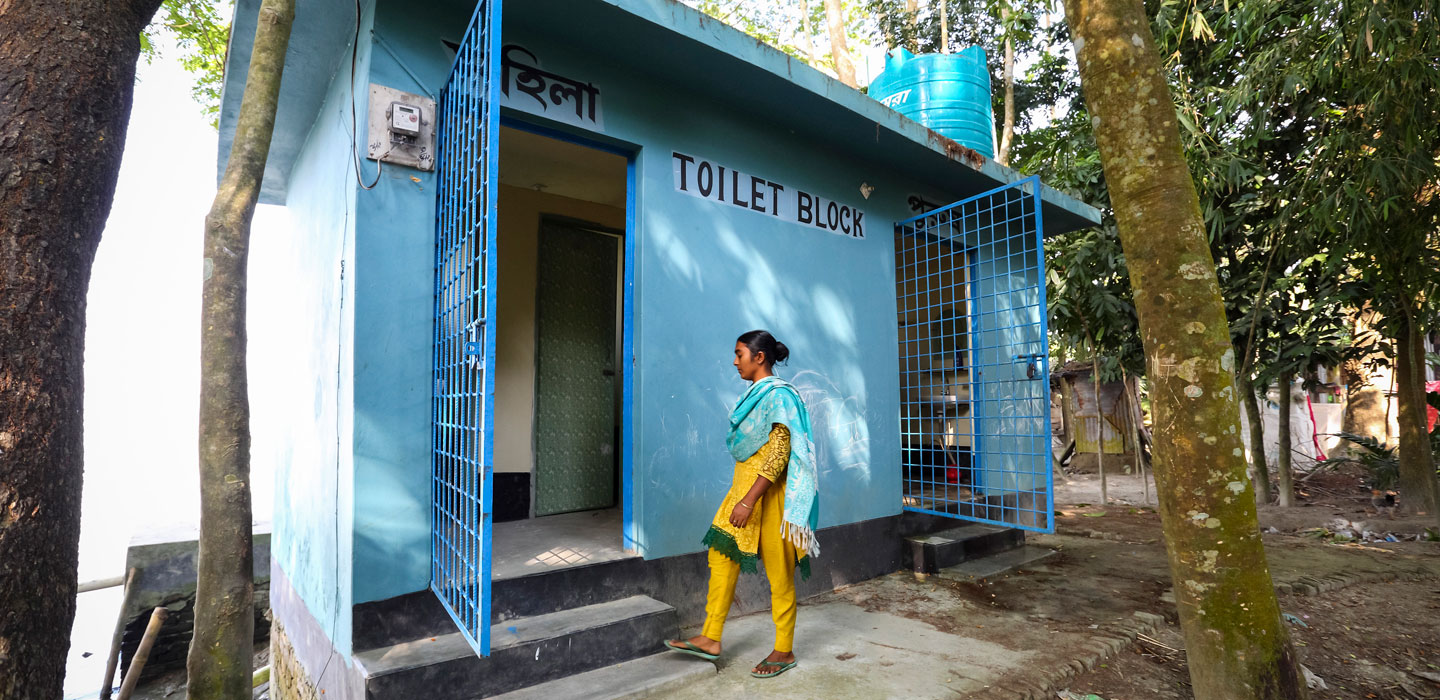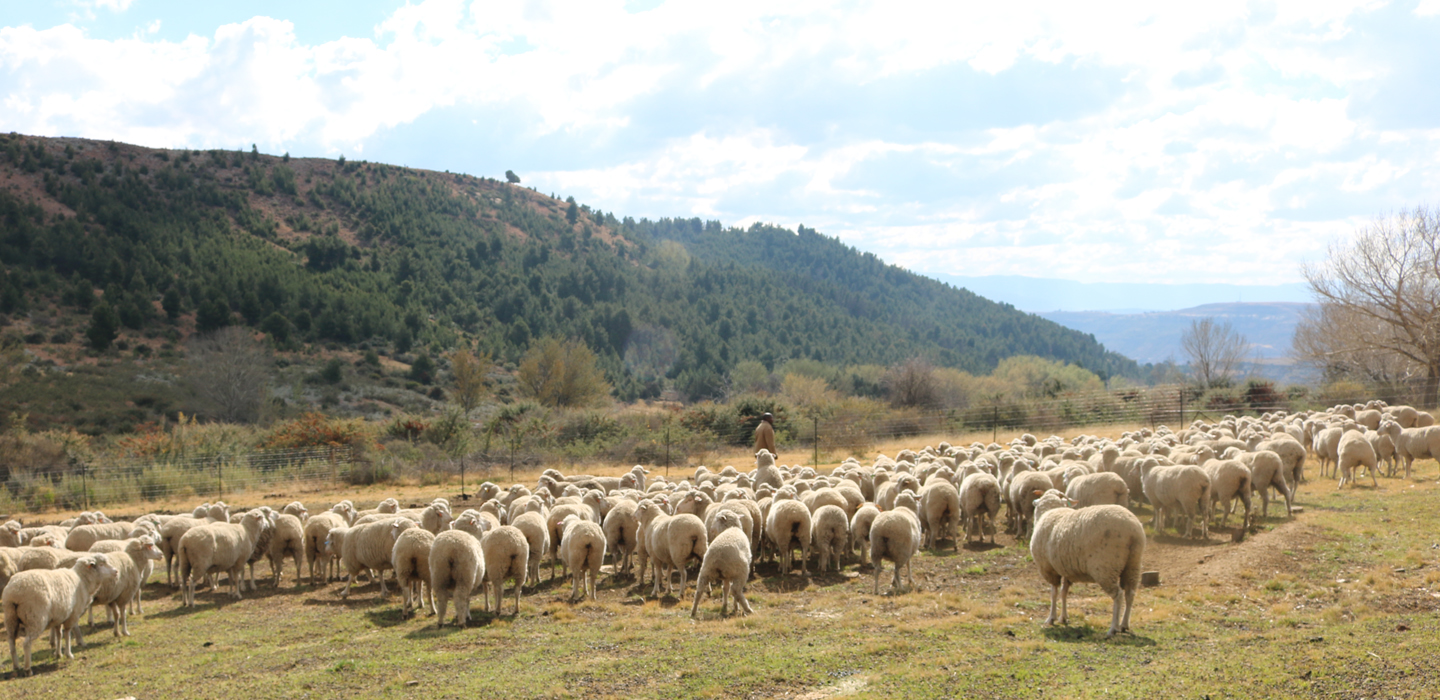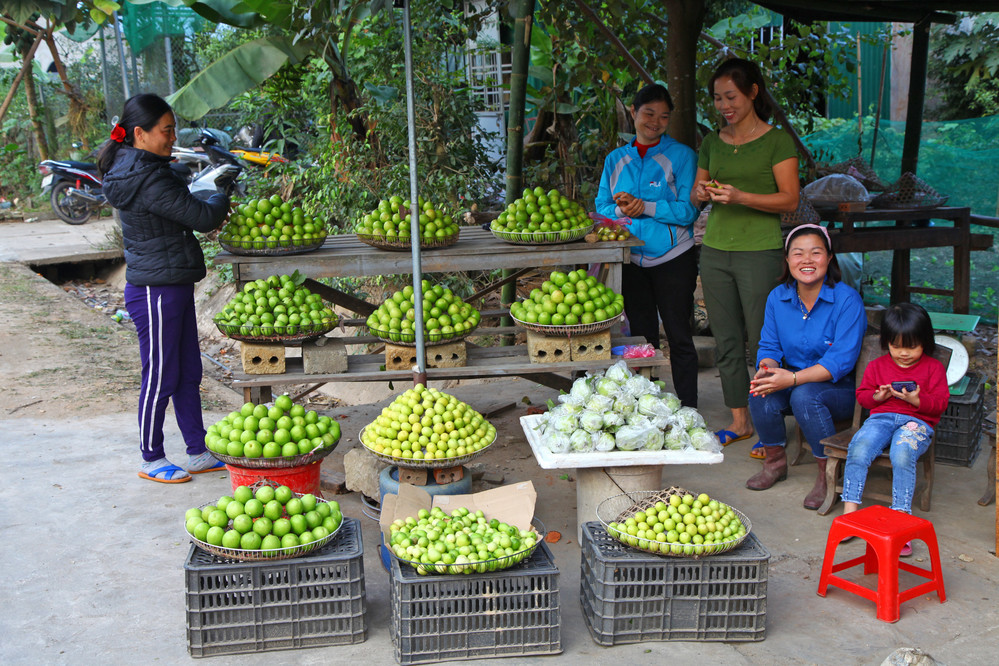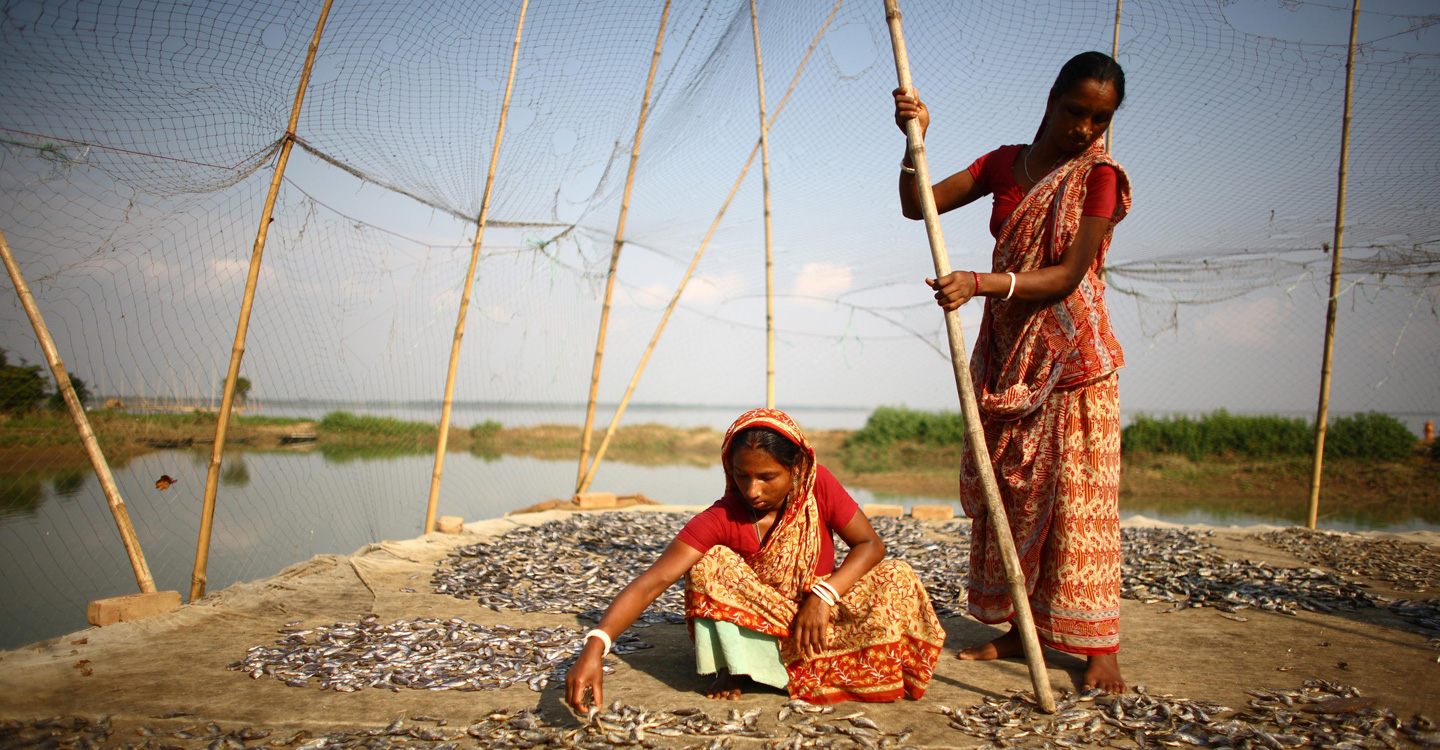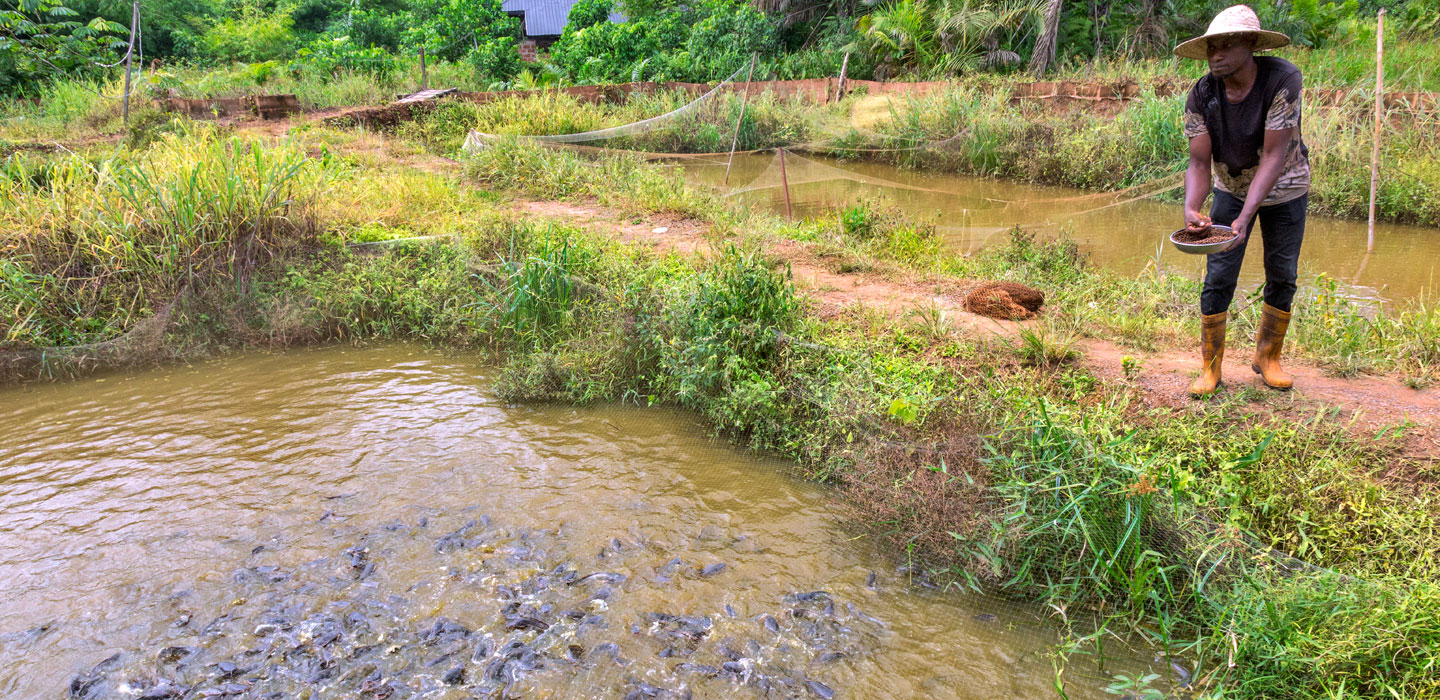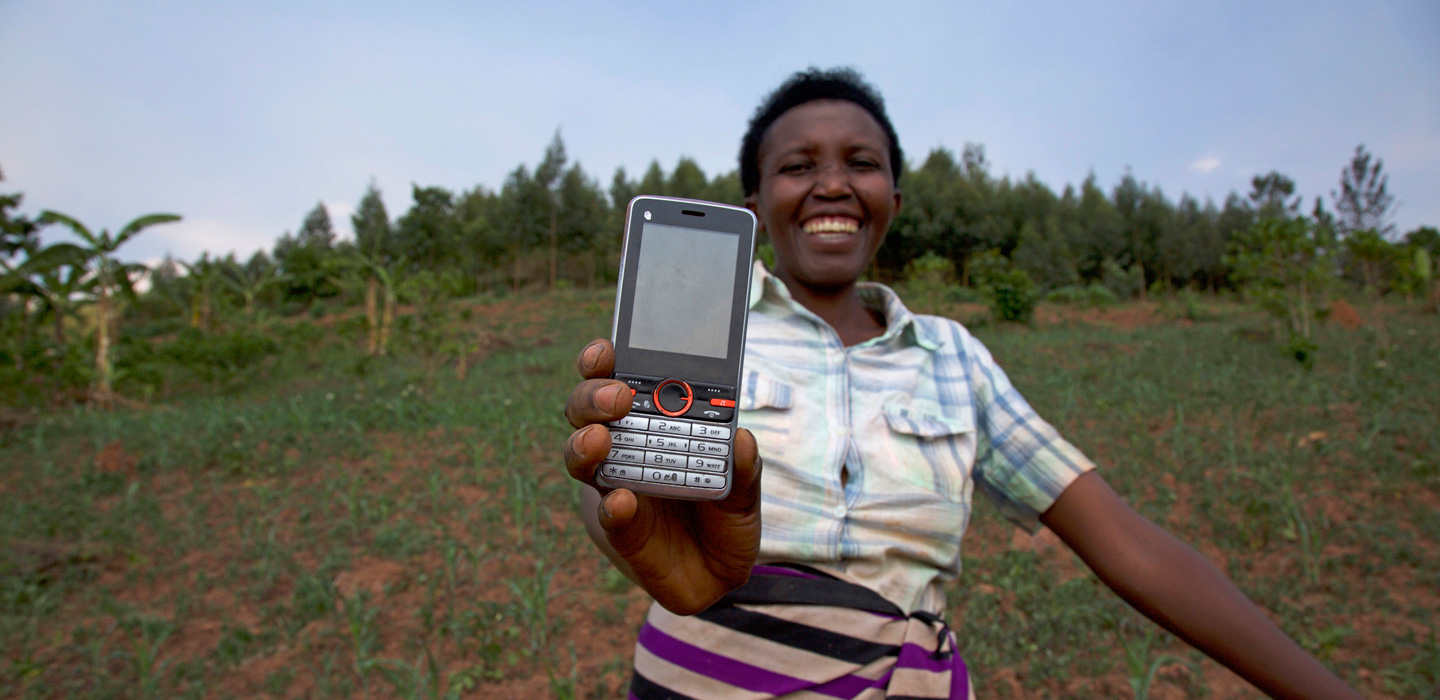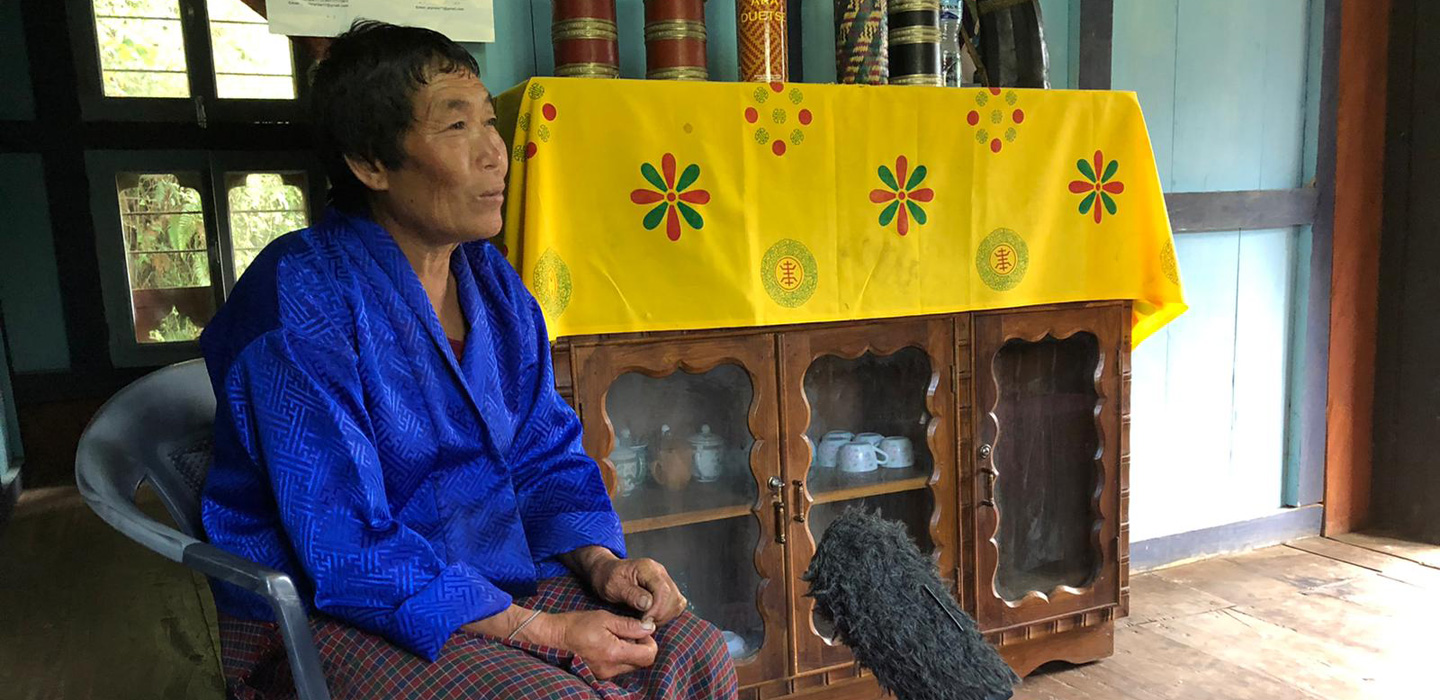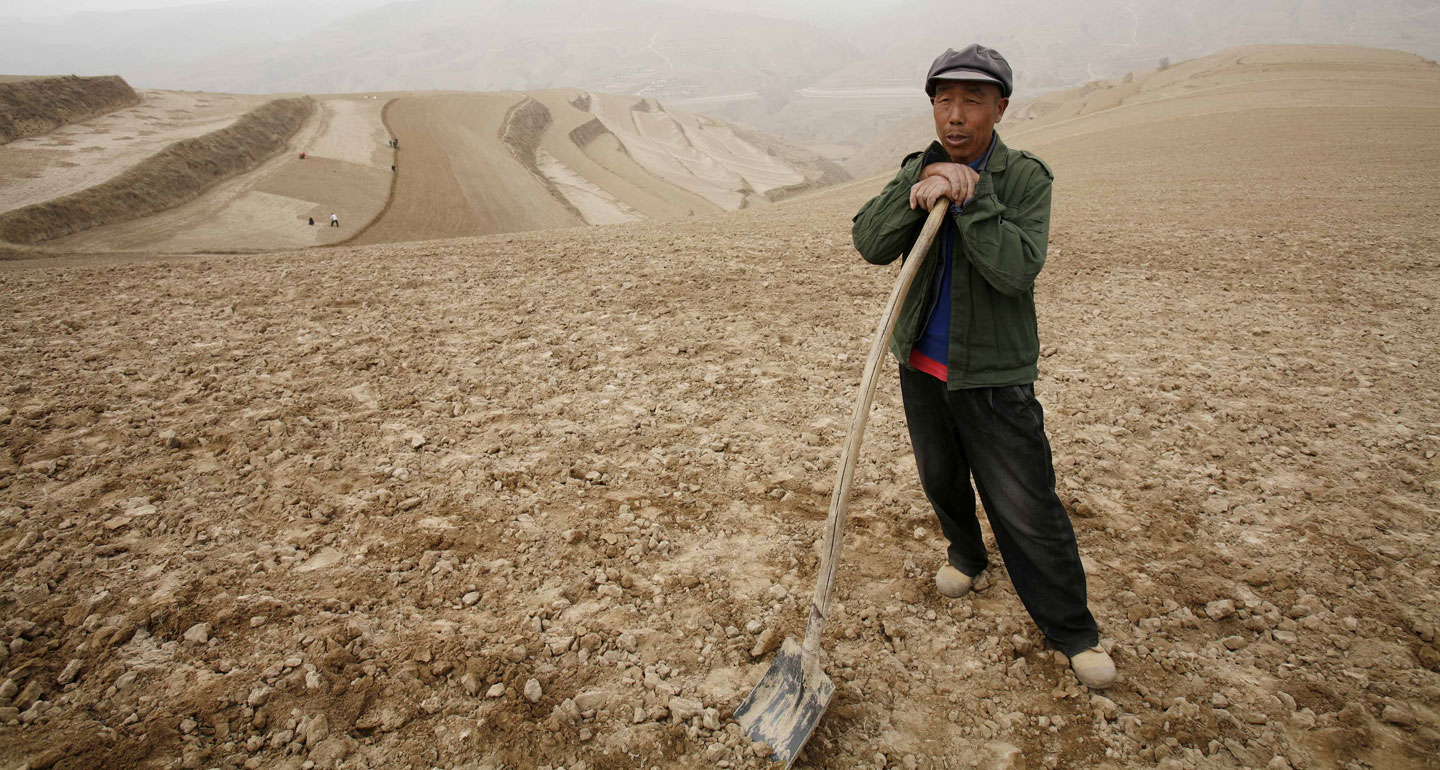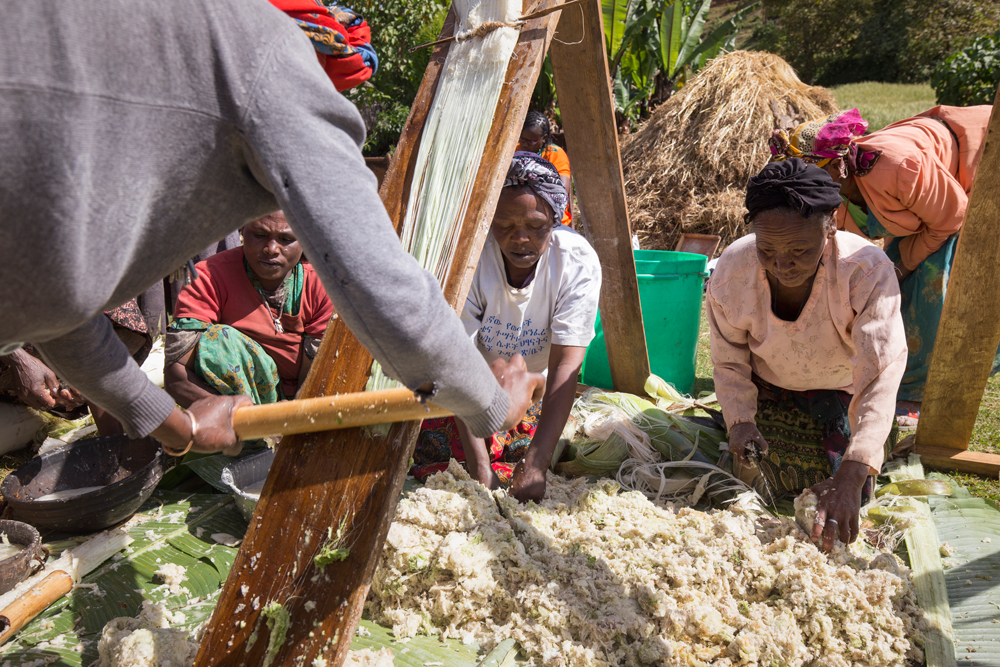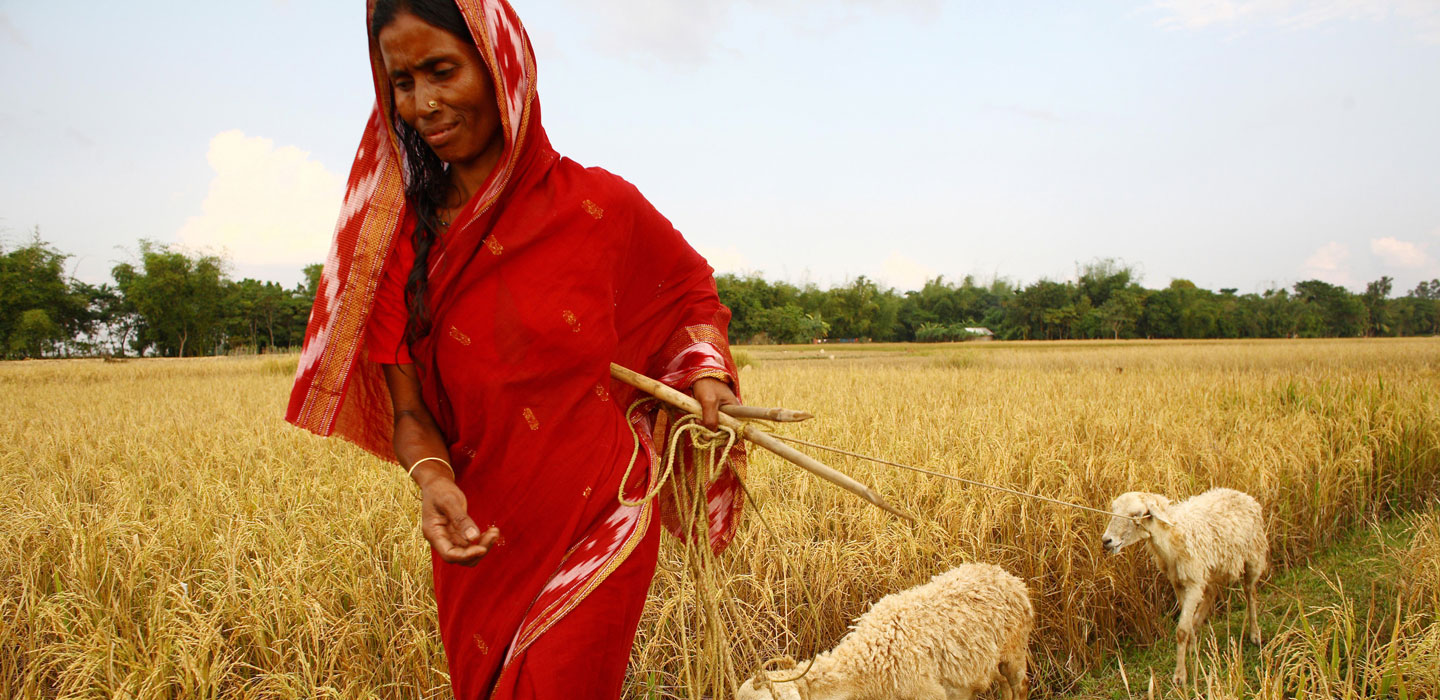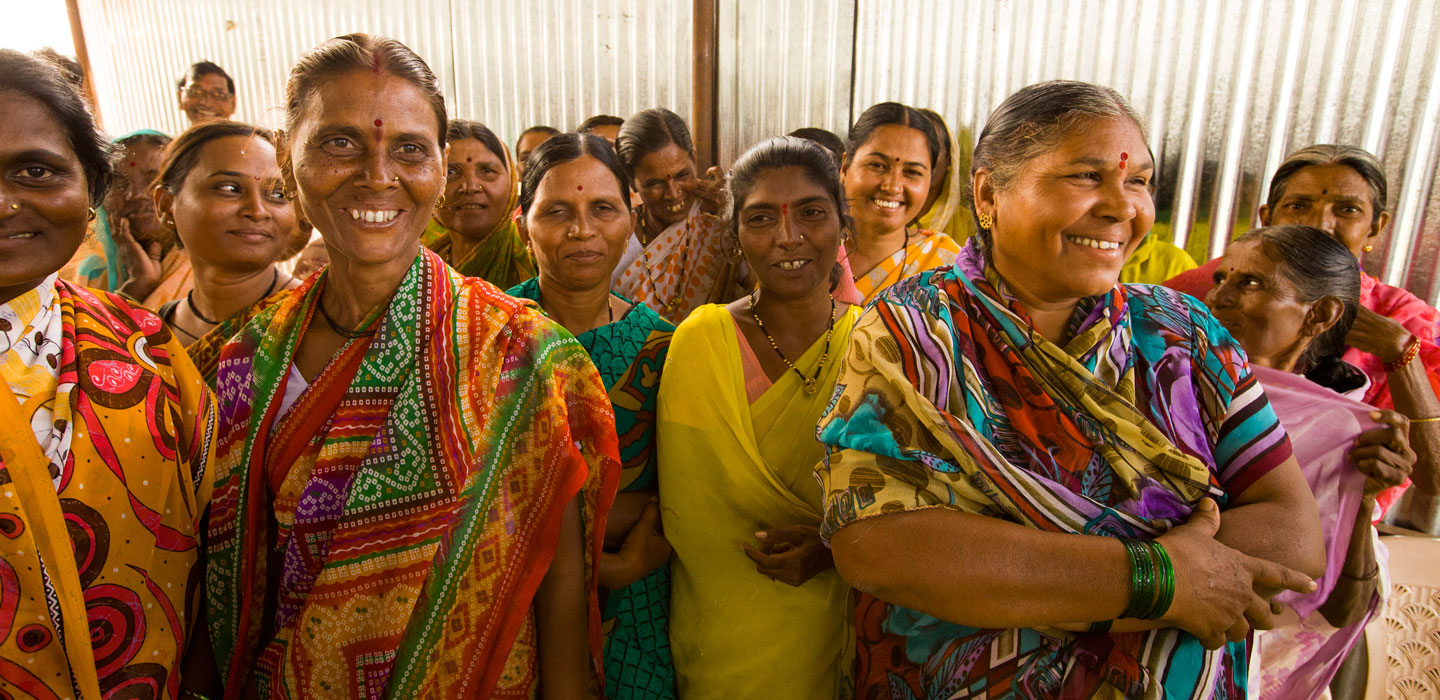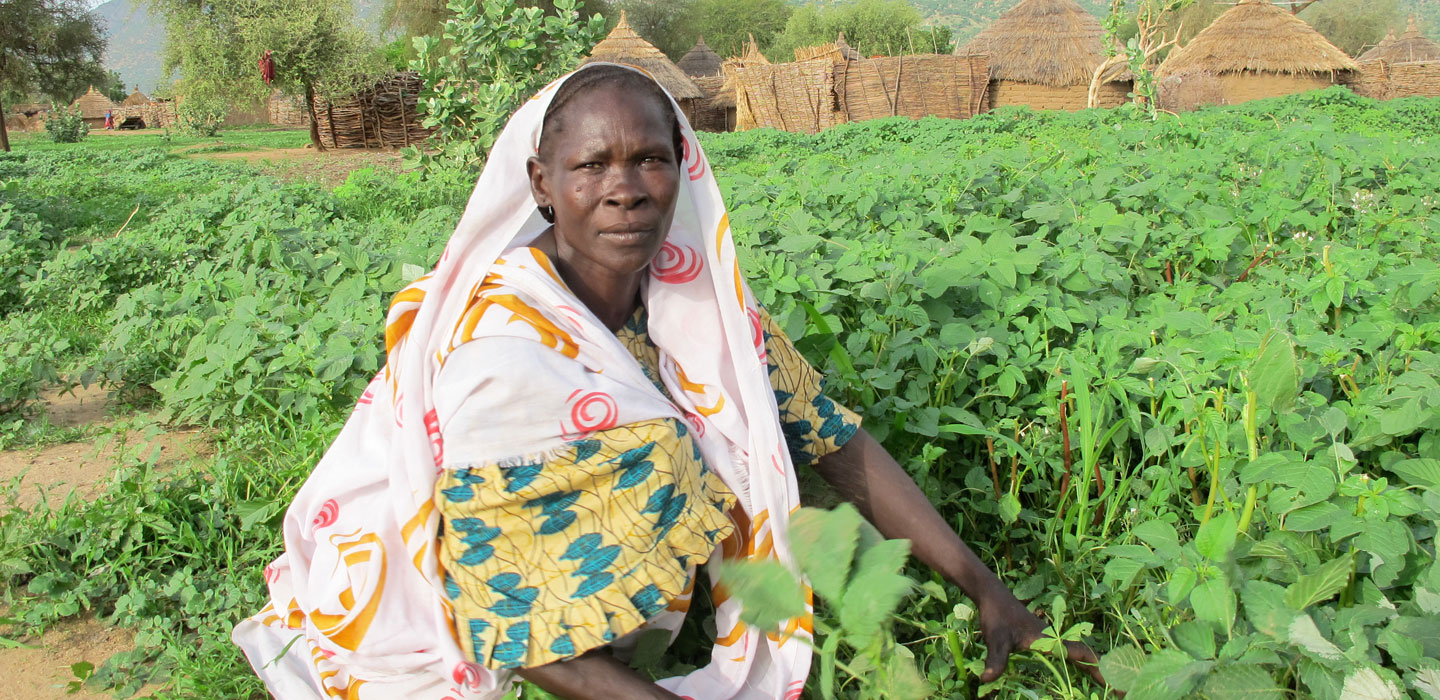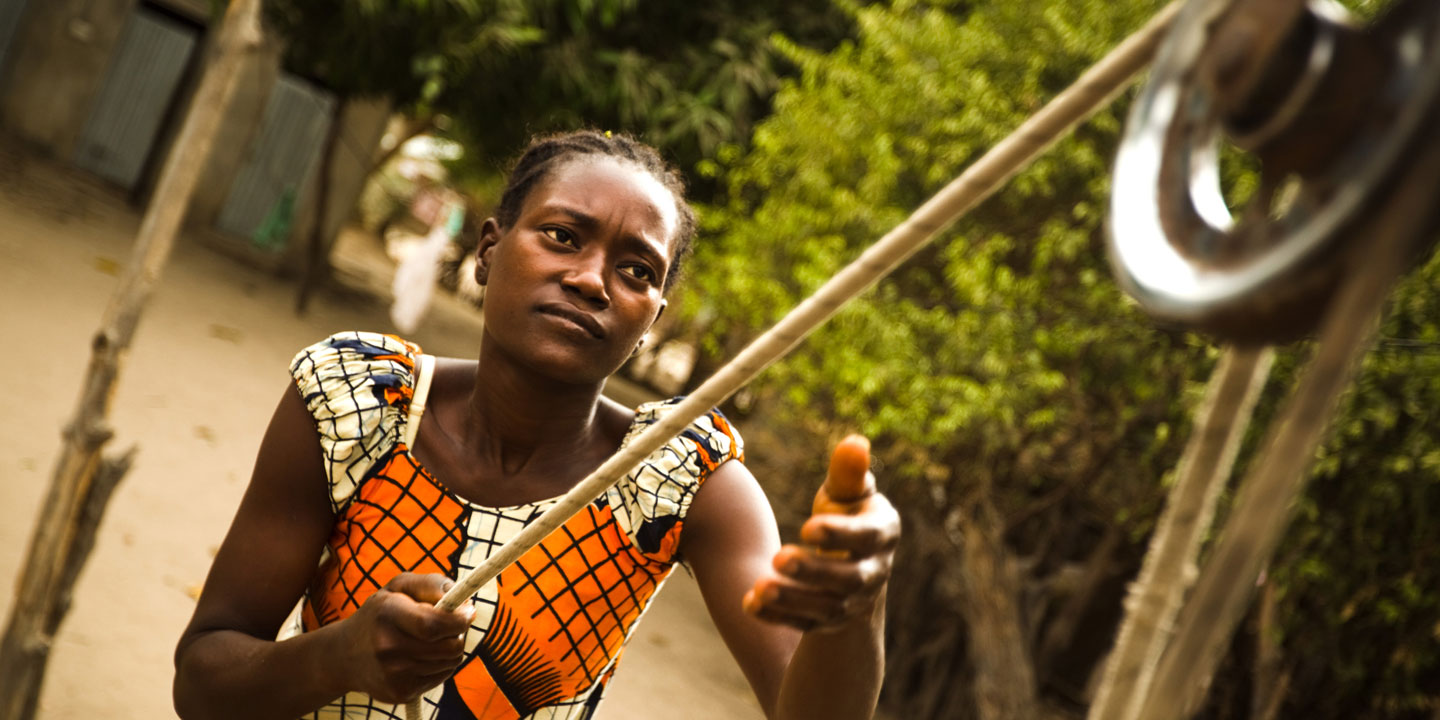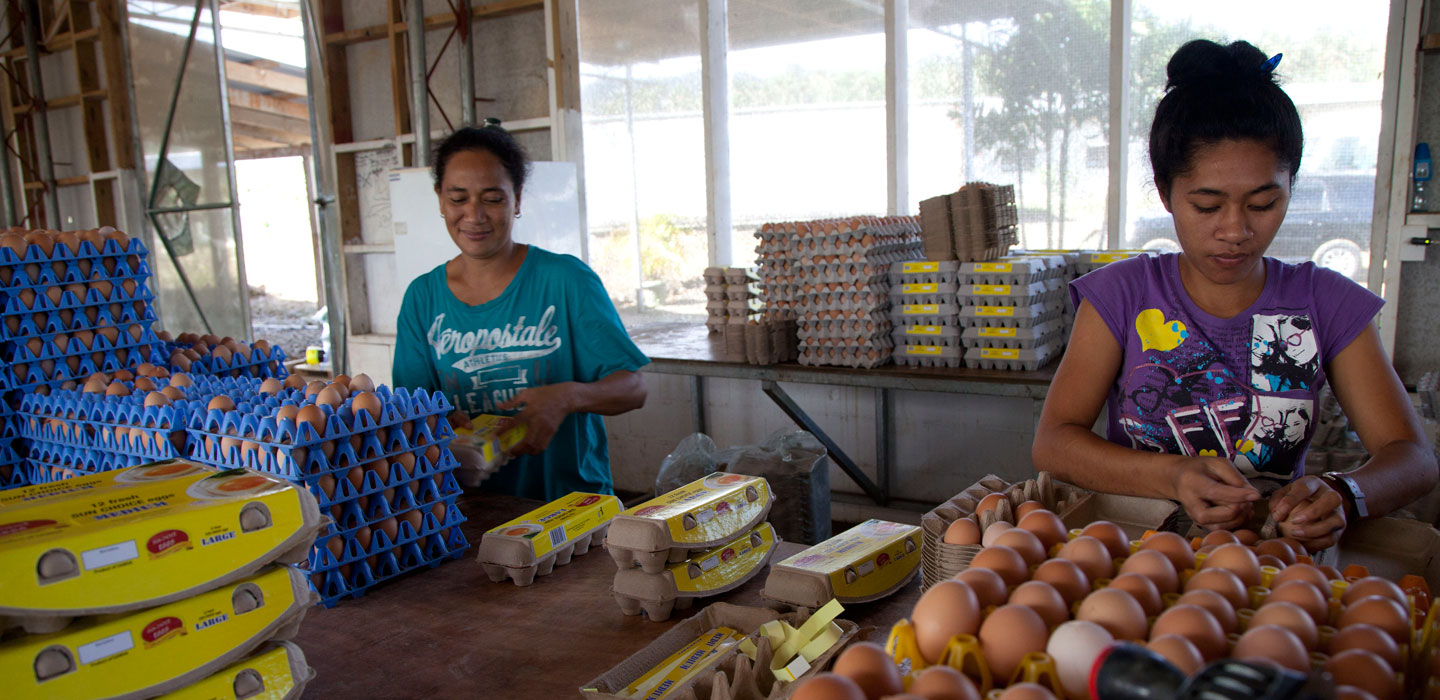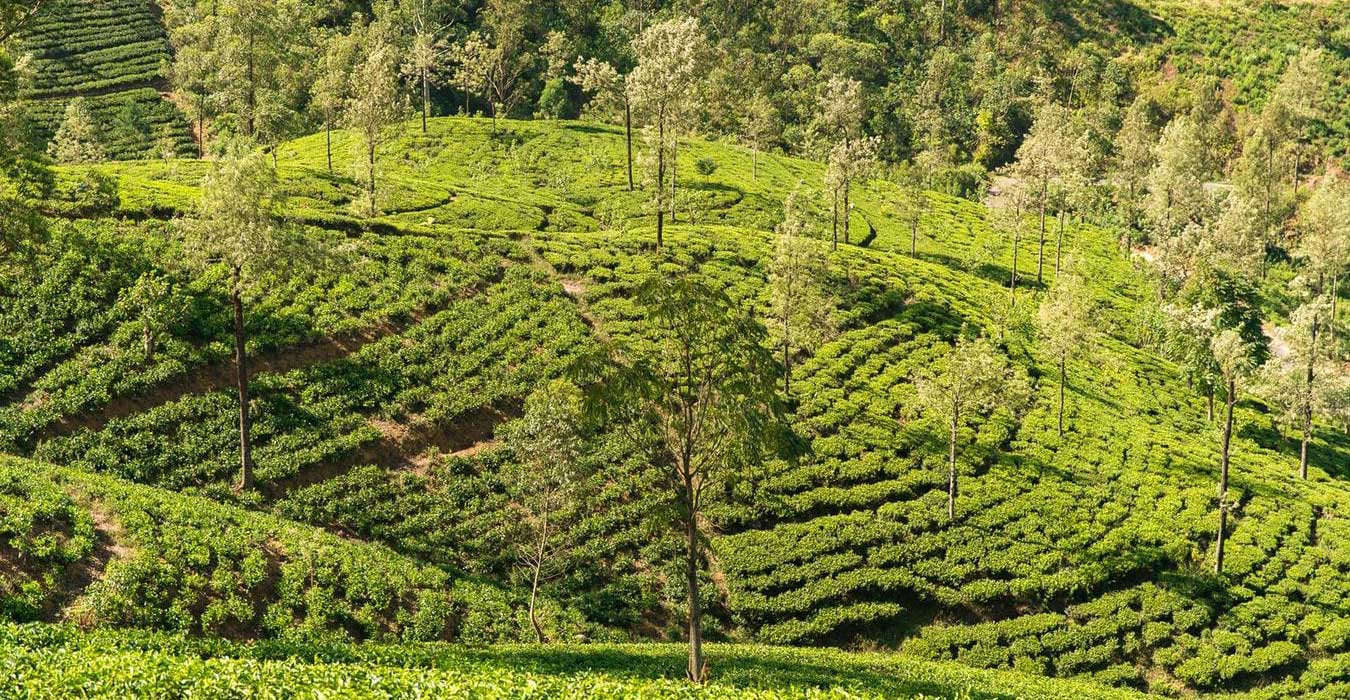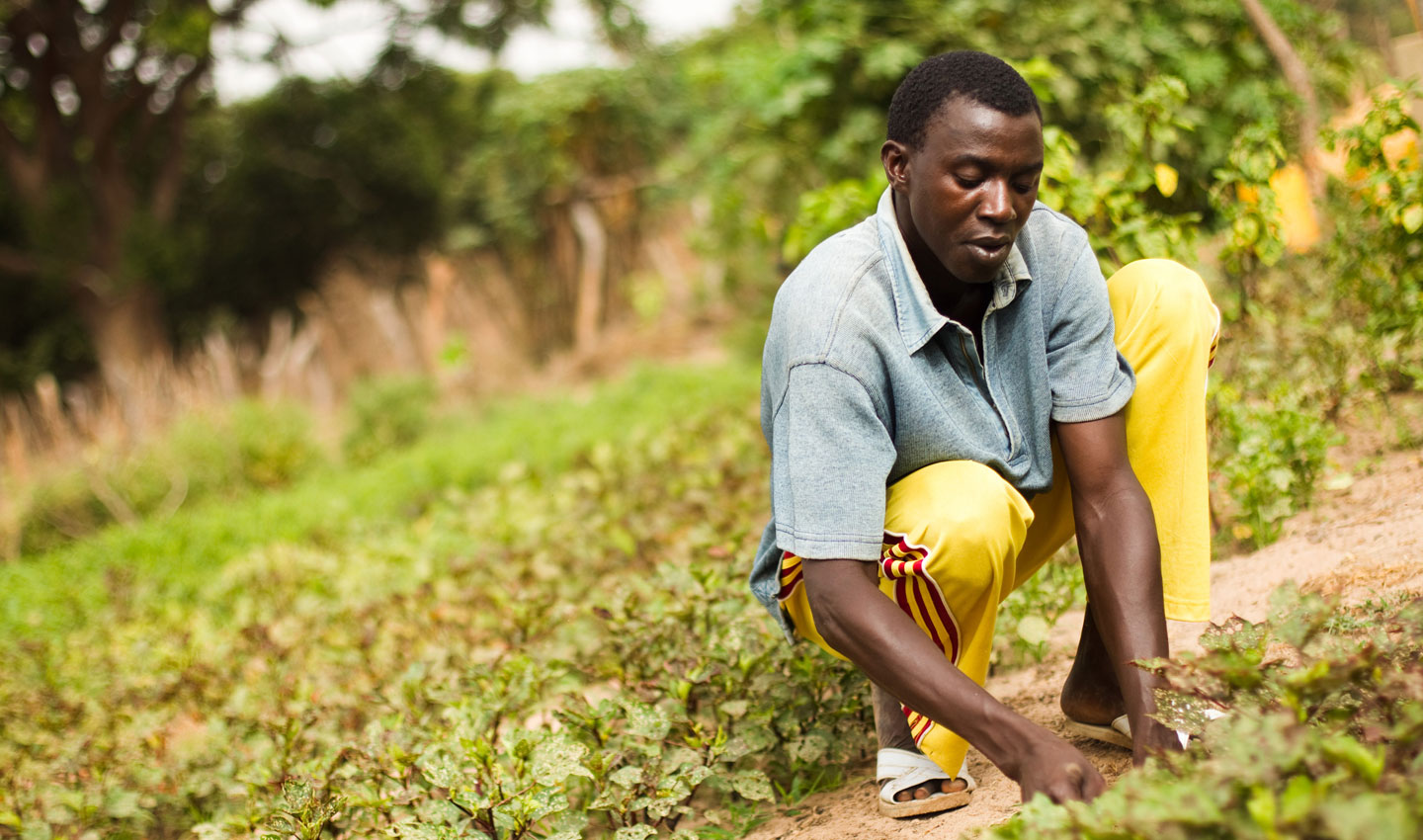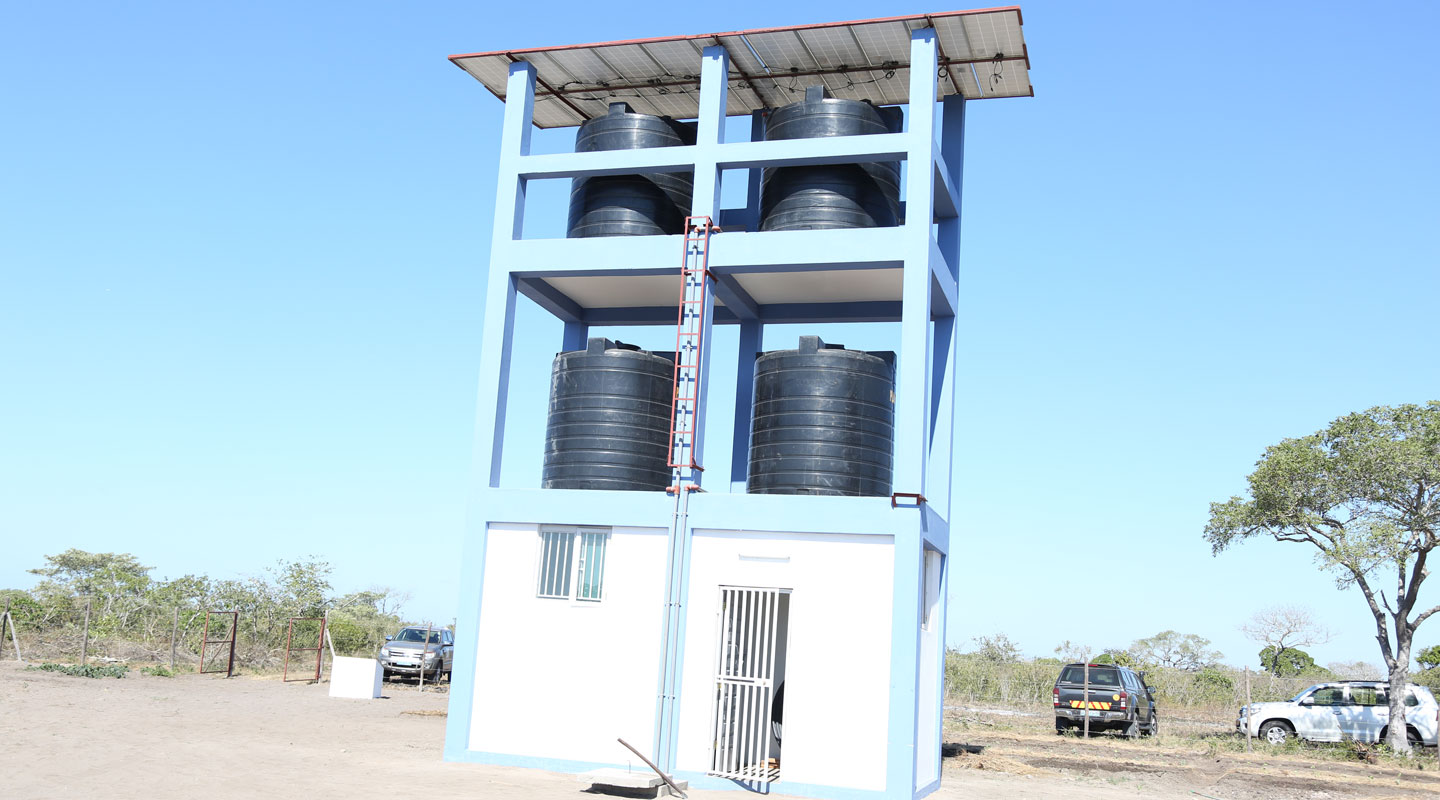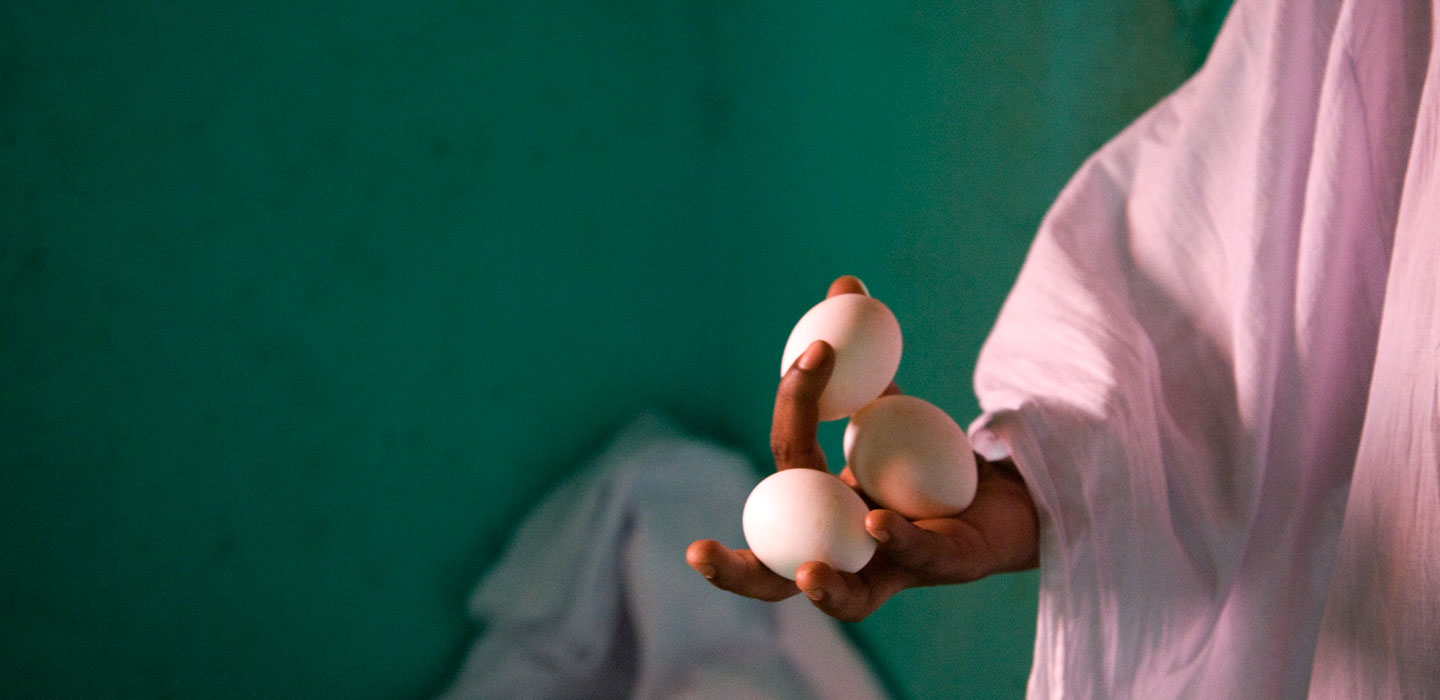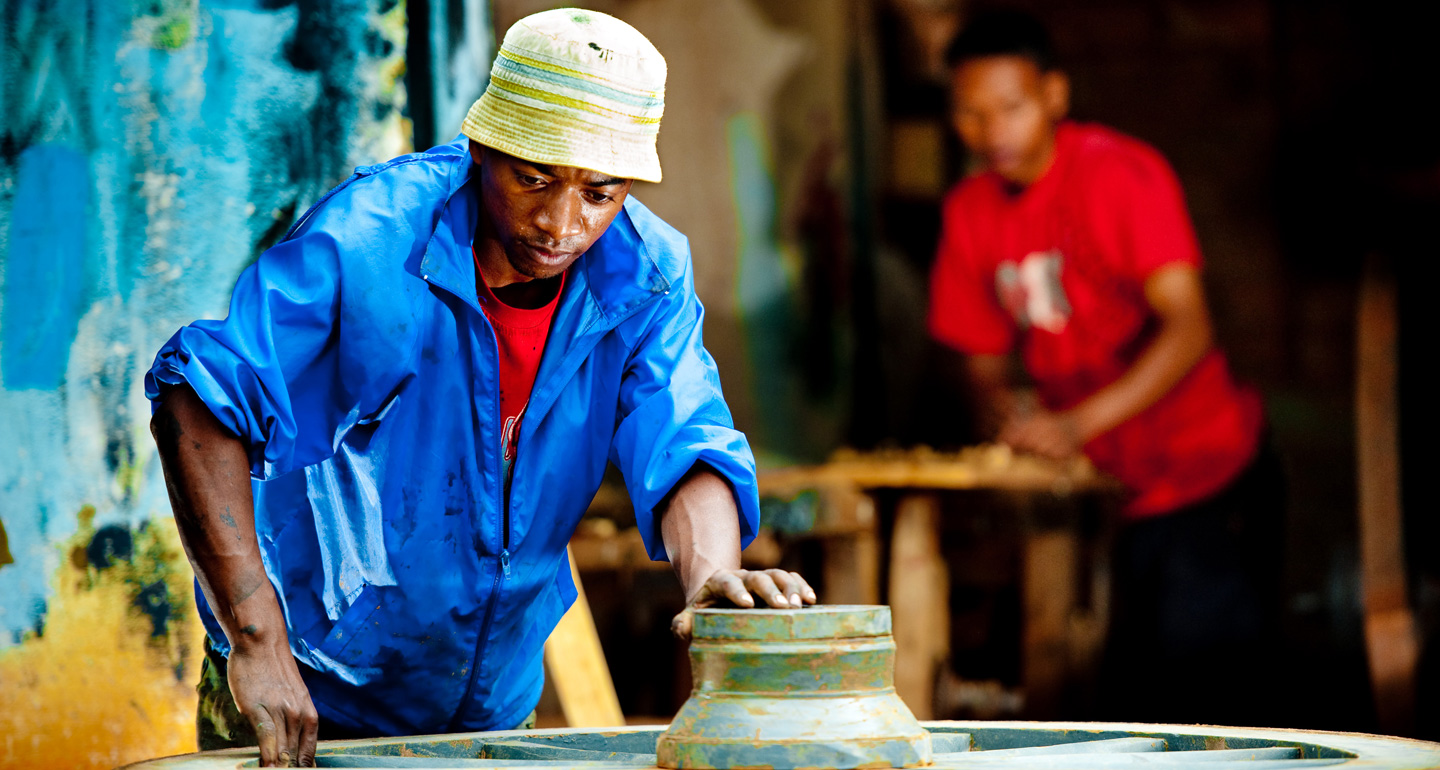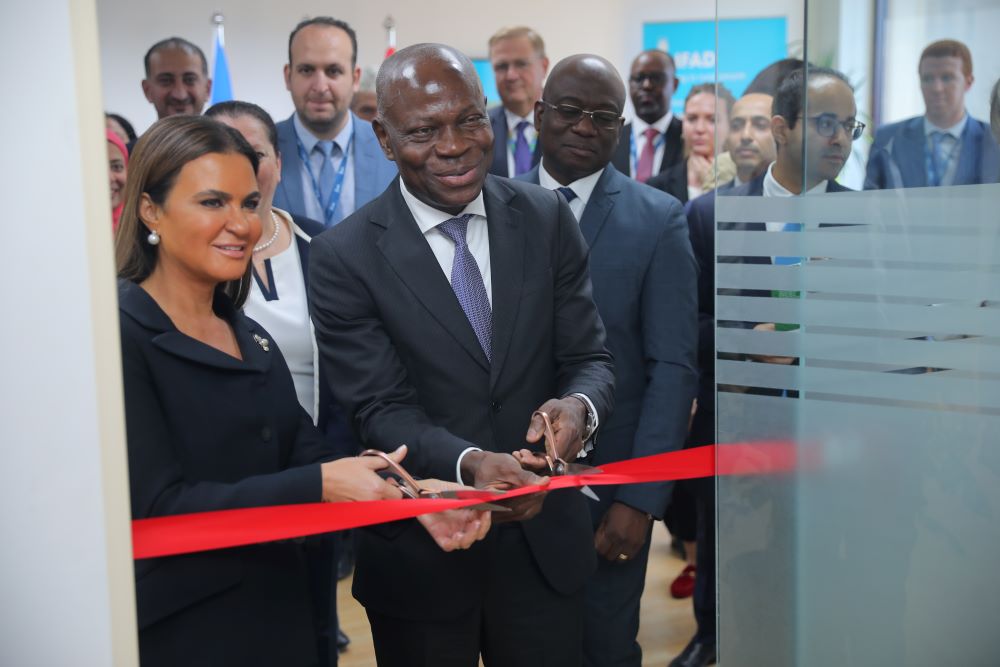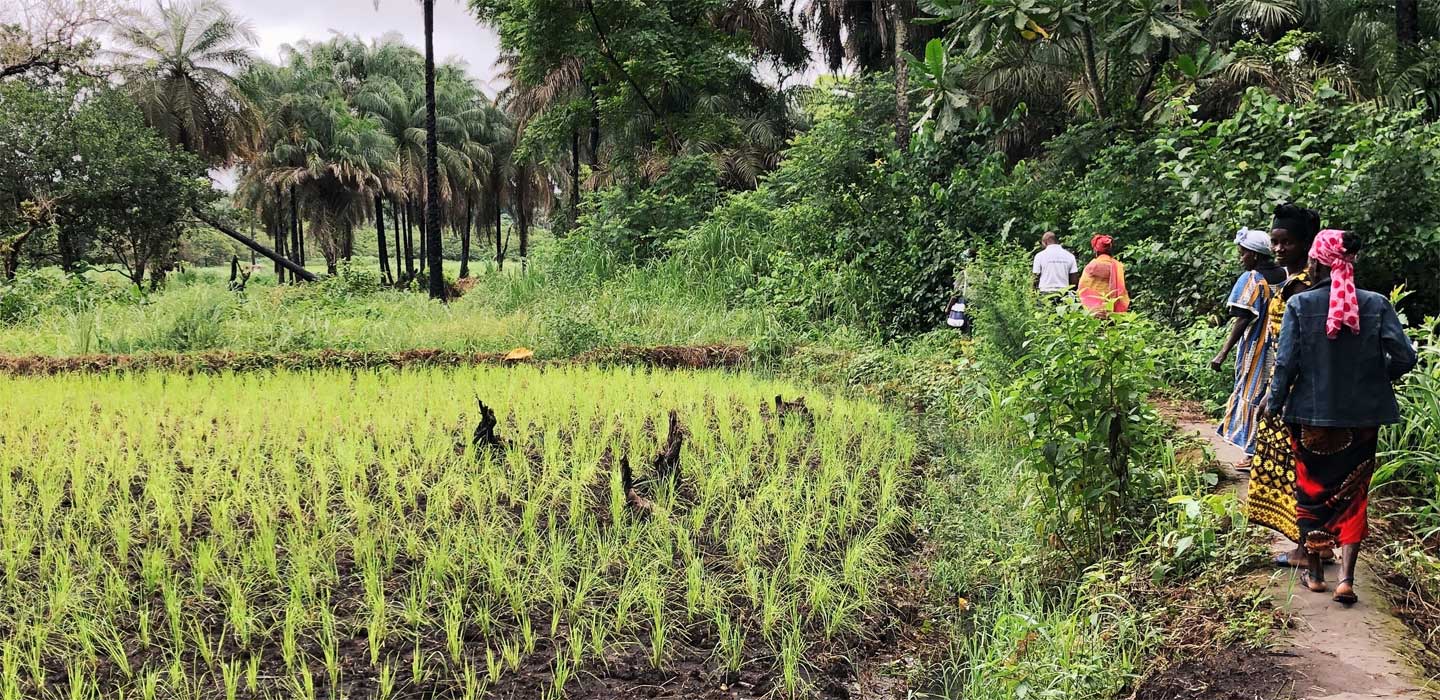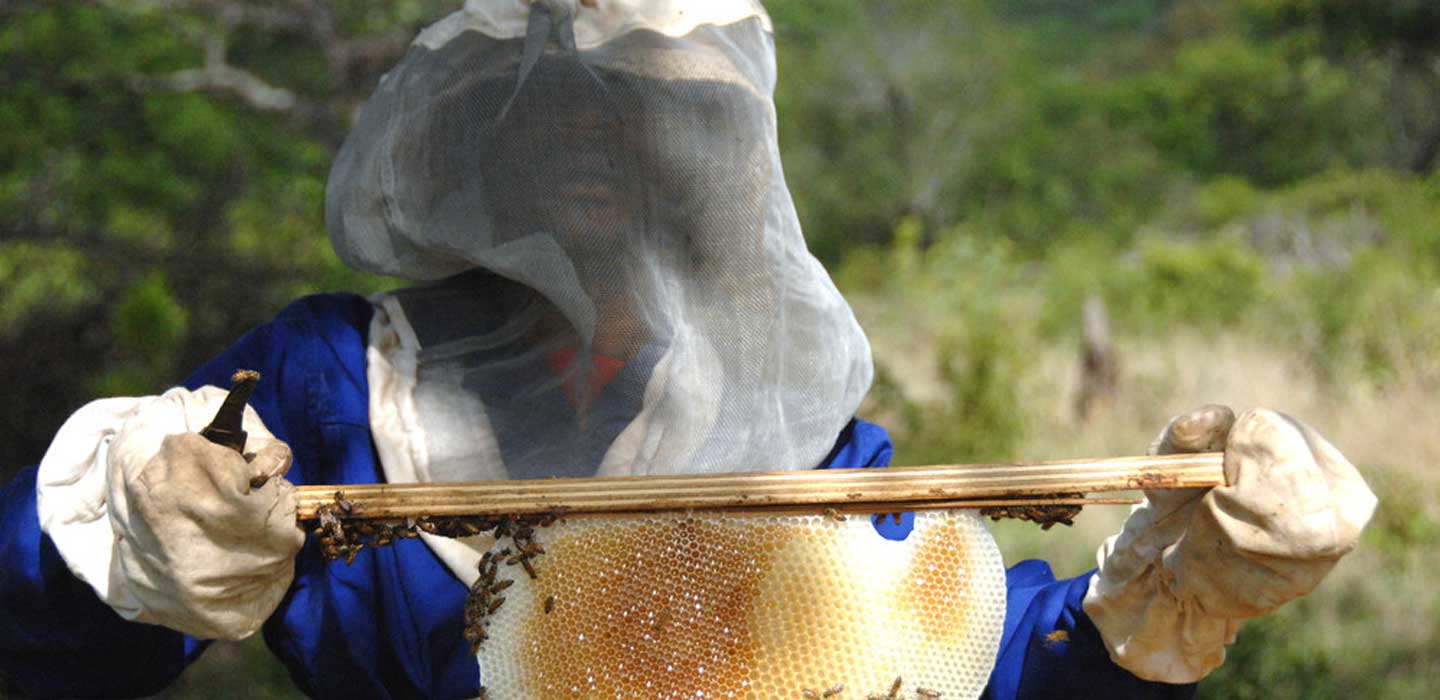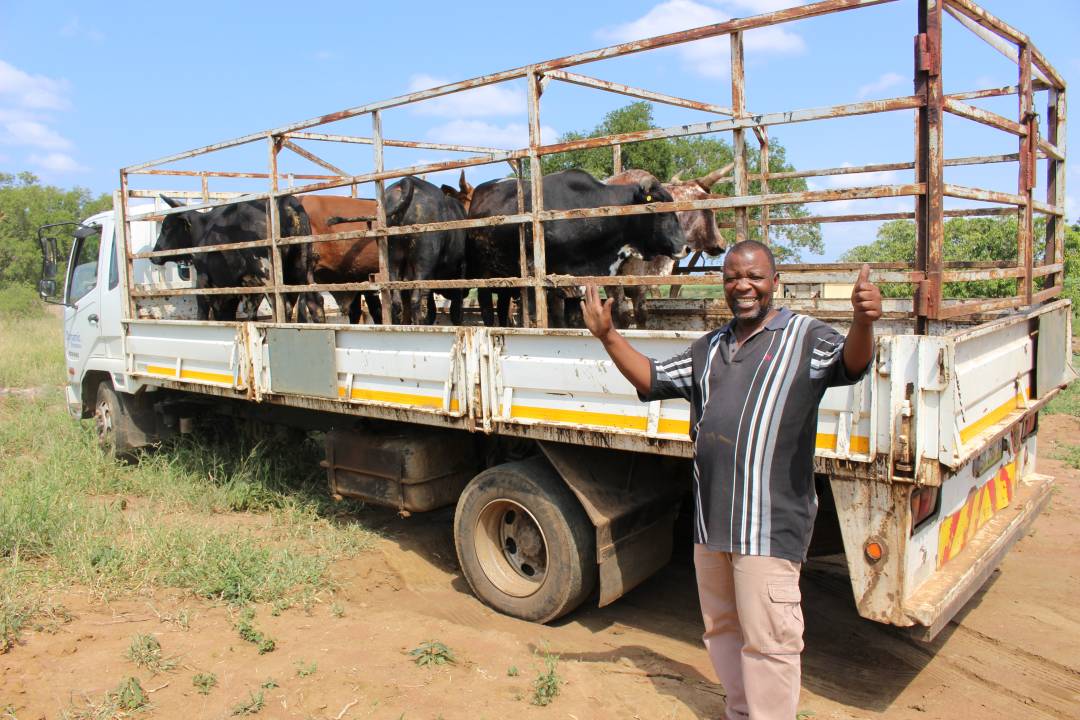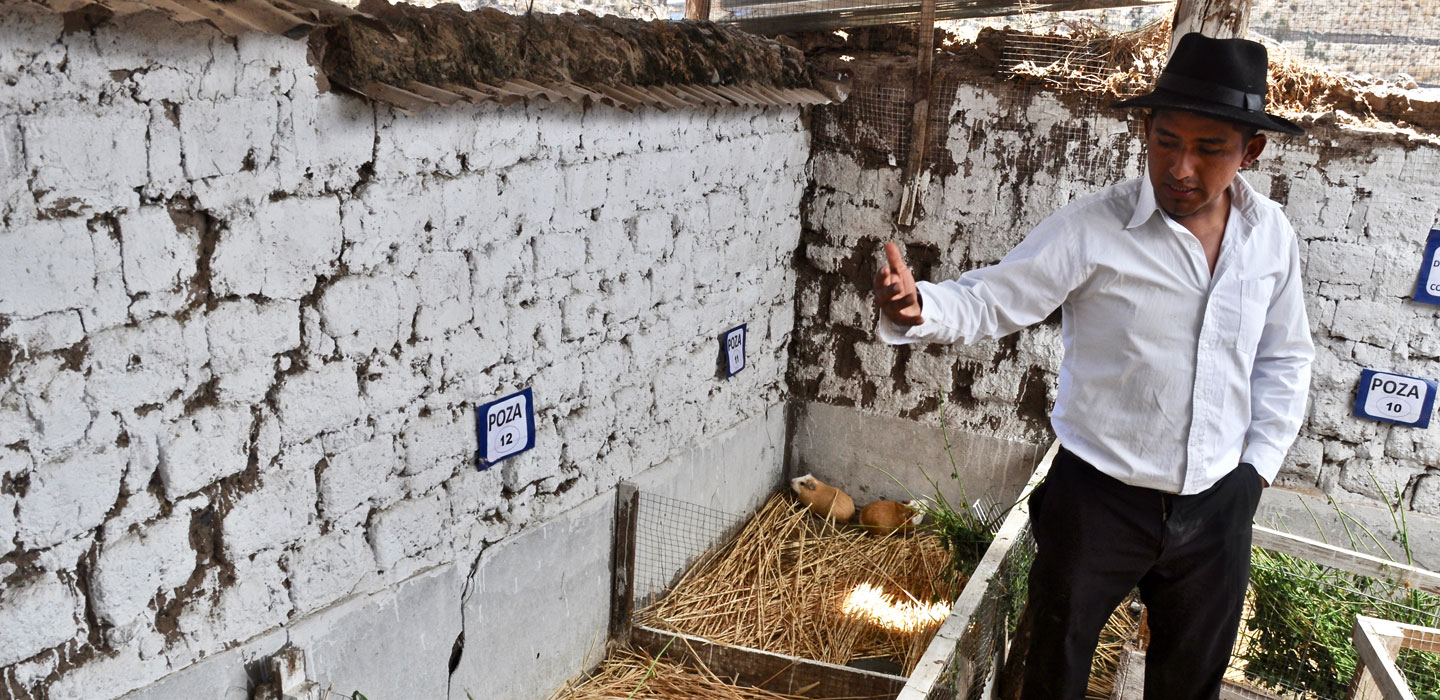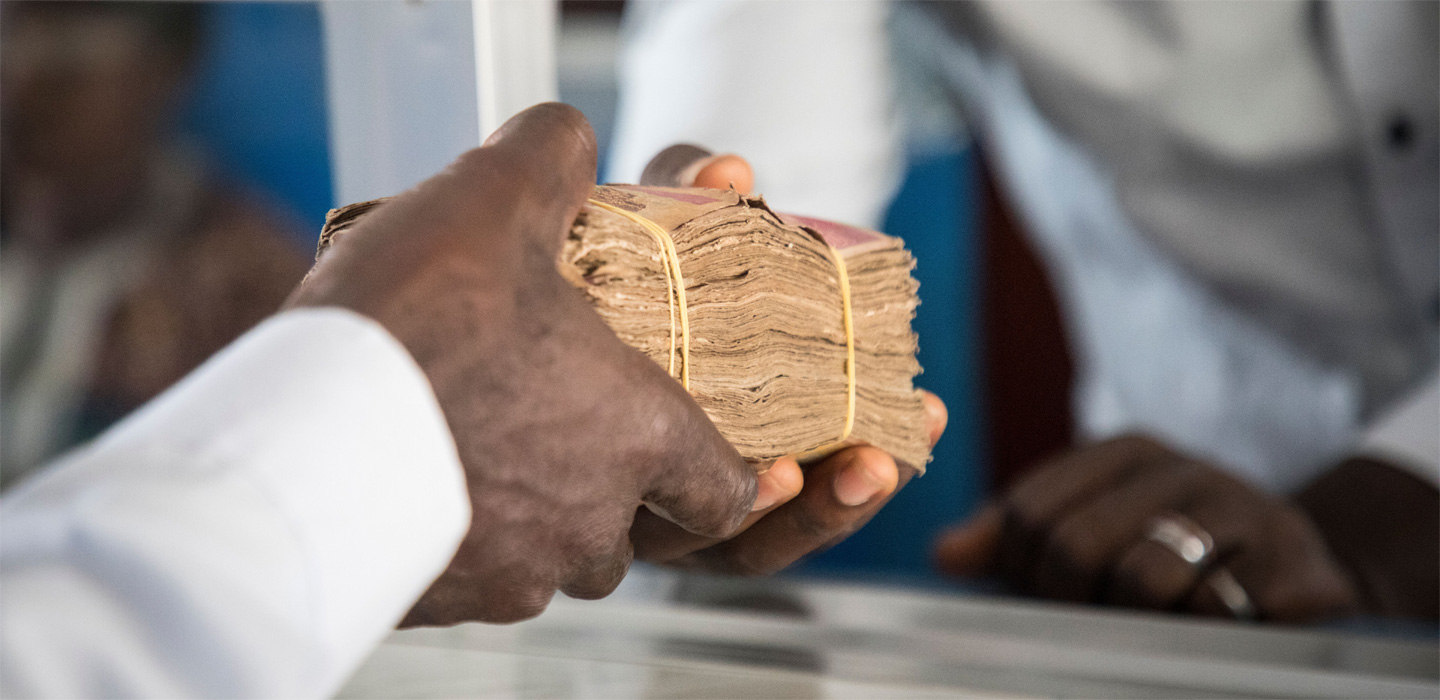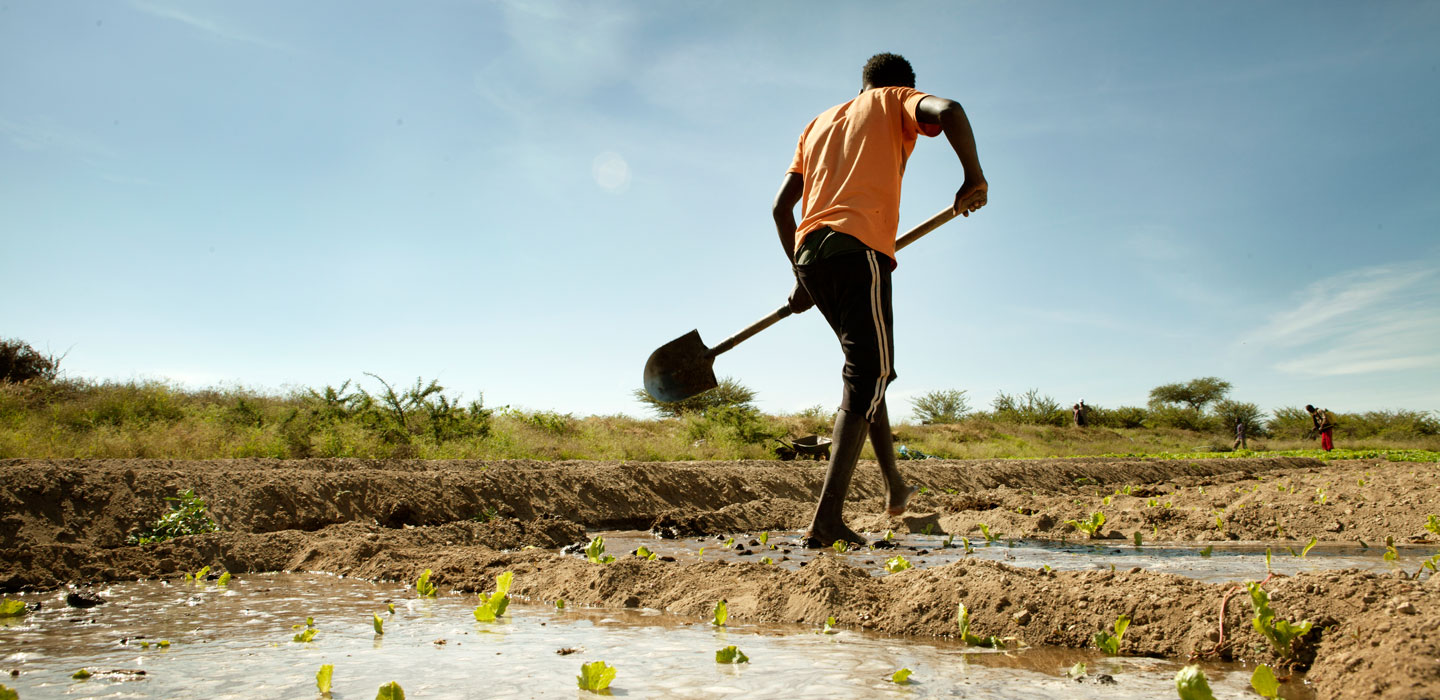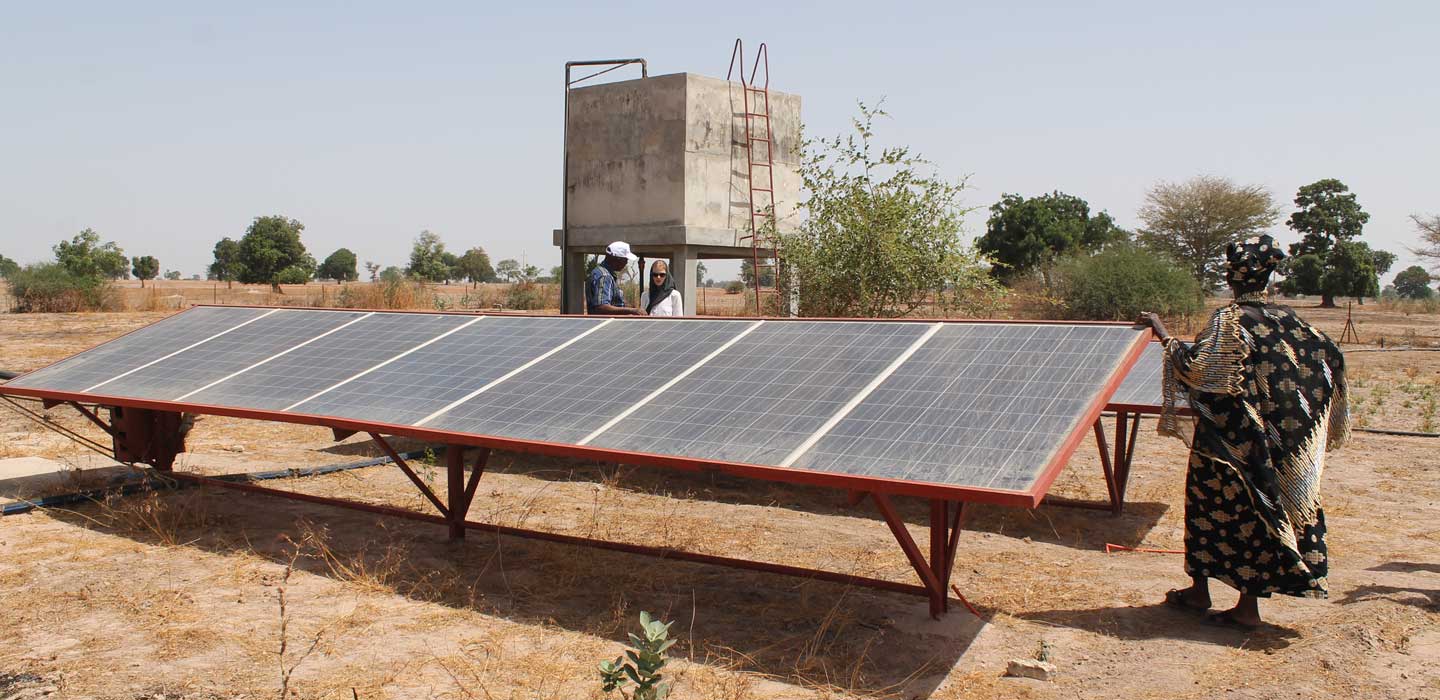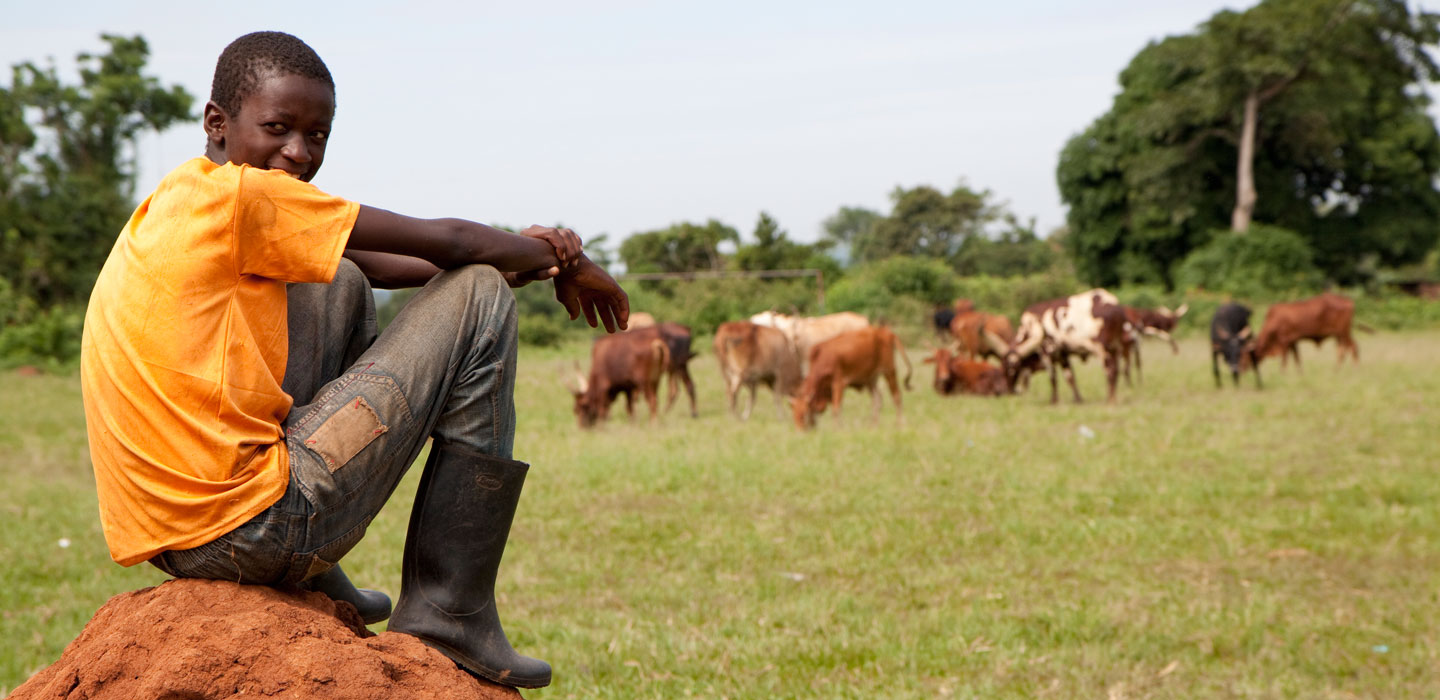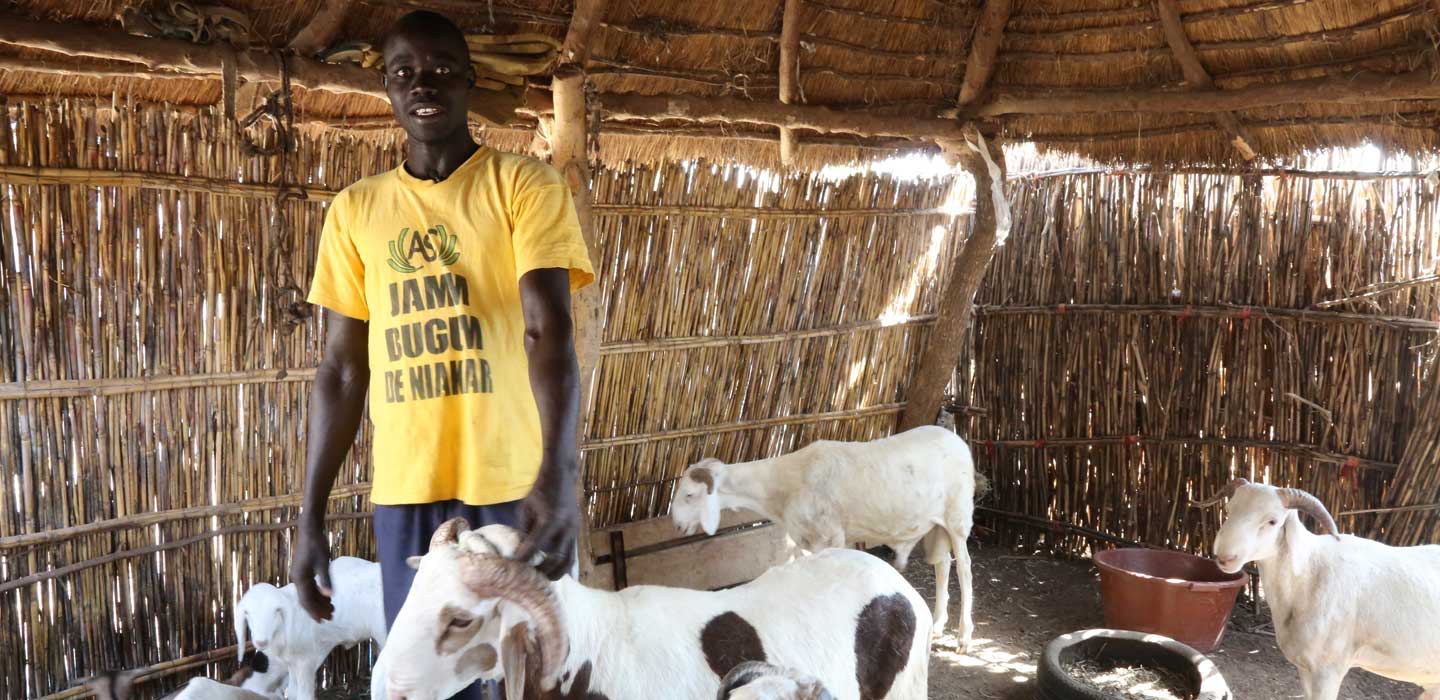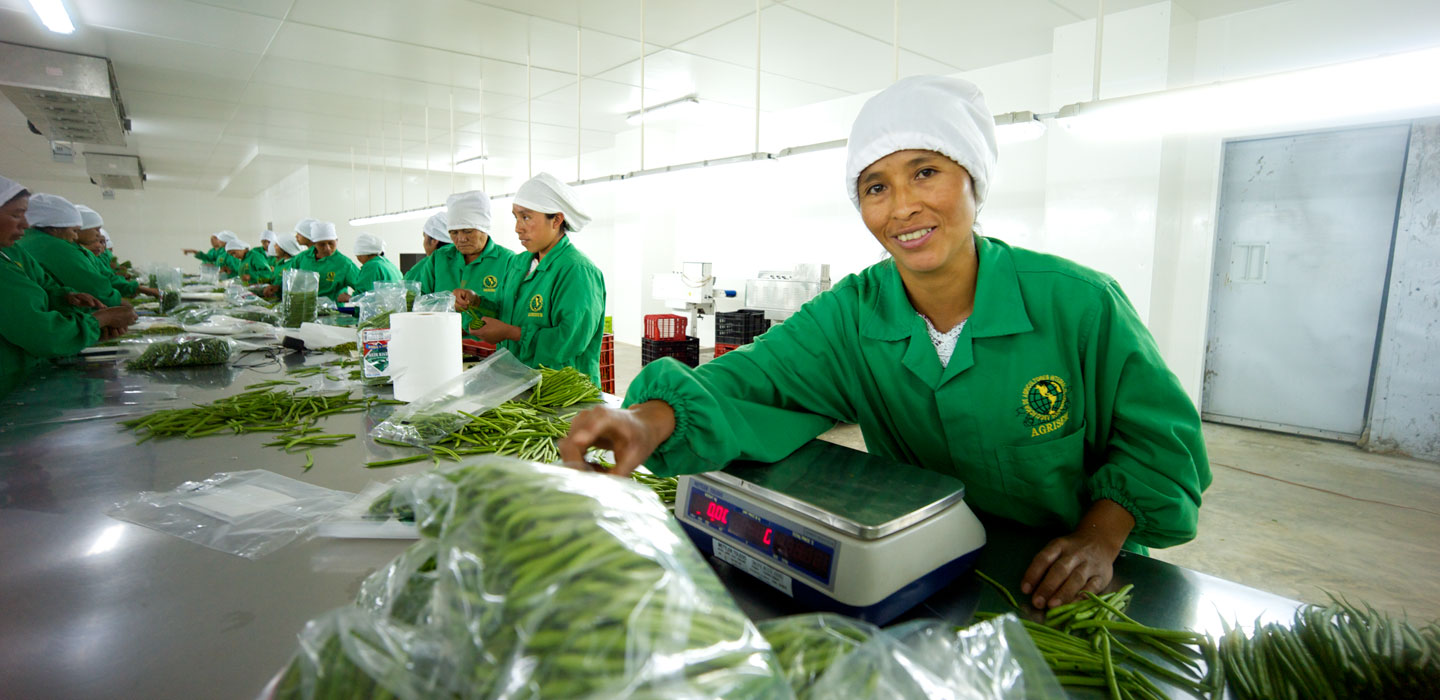Latest
Latest

Latest
Manual Submenu Topics
SearchResultsFilters
Search Results
Recipes for Change: Chef Pierre Thiam shares a lockdown-friendly vegan chilli recipe
IFAD’s Recipes for Change chefs are carrying on with life under lockdown by sharing some excellent recipes that you can make with ingredients you’ve already got in your home cupboard. Senegalese Chef Pierre Thiam joins us from his home in New York State with a delicious recipe for vegan chilli.
Shaping a holistic response to COVID-19: Protecting food systems and rural producers
It is easy to lose sight of the big picture when called upon to act quickly in response to the human tragedy caused by COVID-19.
Solidarity and flexibility: IFAD-supported artisans produce masks and hairnets to fight coronavirus in Brazil
An organization of artisan women, facing a slowdown in their work due to the economic effects of the COVID-19 pandemic, has begun to make protective gear for local health care workers.
Six ways investing in rural communities makes people healthier
Malnutrition causes health problems and losses in economic productivity. Over the course of their lifetimes, malnourished individuals can earn 10 per cent less than those who are well-nourished.
Targeting at IFAD - Focusing efforts to create opportunities for rural poor people
To improve its contribution to the 2030 SDGs Agenda of eradicating poverty in all its forms and in line with the Leave No One Behind framework, IFAD has committed to improve its targeting performance.
Making sure rural communities won't be left behind in the response to COVID-19
Whenever crisis strikes, it is invariably the poor and the vulnerable who suffer most. In many cases, they are directly affected by crisis; in other cases, their lives are made harder by the economic consequences. Often it is both. We have seen this time and time again.
Dealing with the COVID-19 Crisis - Episode 6
We’re coming to you ahead of schedule with an extra edition: an interview with IFAD’s President Gilbert Houngbo on how the novel coronavirus has impacted IFAD’s work.
Don’t allow the coronavirus to open up another front
What started as a health crisis could turn into a food crisis unless we take measures now. Preventing a food crisis is key to maintaining the strength to fight back.
Recipes For Change: Chef Bowerman’s take on cooking from home under lockdown
As the world adjusts to life with COVID-19, we’re asking our Recipes for Change chefs to share some world-class recipes that you can make with ingredients you’ve already got in your home cupboard. Michelin-starred Chef Cristina Bowerman shares two simple and nutritious recipes involving chickpeas.
Changing lives in times of uncertainty: how innovative agriculture builds resilience
As countries prepare for the pandemic the mandate of a rural development organization may seem to some not particularly relevant to the current crisis.
Serving the rural poor in the time of physical distancing: Staying safe, well – and connected
It has been three weeks since COVID-19 has drastically altered the daily lives of IFAD staff headquartered in Rome and stationed around the world.
Indigenous Peoples in the Farming Front Seat - Episode 5
In IFAD's Podcast Episode 5, we’re focusing on indigenous peoples and the challenges they face when it comes to agriculture.
What we can do to support farmers on the front lines of climate change
Each of the world’s agricultural production systems had millennia to adapt to local climatic conditions, especially in terms of temperature and rainfall.
A future for students with water, vegetables and roses
In Kenya’s Nyeri county, sustainable water system technologies have substantially improved the lives of students, staff and surrounding communities and have opened up a brighter future for many.
Mali and IFAD develop a new strategic programme to meet the challenge of achieving the Sustainable Development Goals in the face of climate change
The Government of Mali and IFAD held a workshop in Bamako on 5 March 2020 to prepare a new results-based country strategic opportunities programme (RB-COSOP) for the period 2020-2024.
Recipes for Change: Dhindo – corn flour purée with nettle leaf curry and pickled tomatoes – Nepal
Climate change is contributing to increasing temperatures and droughts in Nepal, where corn and tomatoes are a staple food.
Scaling-out gender transformation for climate change
Development approaches must address structural barriers and power imbalances for women and other marginalized groups to adapt to climate change.
Djibouti’s “mother counsellors” are agents of change
They guide women through all the steps of caring for a child – from conception and pregnancy to birth and the critical first years of a child’s life. Although this description might call to mind doctors, nurses or specialised health workers, it also includes another category of care provider that must not be overlooked – mother counsellors.
Rethinking government support to farmers
It is becoming increasingly clear that the ways in which we produce, market and consume food need to be reconciled with environmental, economic and social sustainability.
Senegal: Focusing on Ability
Djenalib Ba and Daba Diom are Persons with a Disability. Training received from IFAD-supported projects in rural areas of Senegal made them able to feed their families and send their children to school.
Securing sustainable food systems hinges on gender equality
The three United Nations' Rome-based agencies dedicated to food and agriculture called today for bolder action to achieve gender equality and empower women and girls in the agricultural sector and beyond.
India - economic and social empowerment for one million women
Ahead of International Women’s Day on 8 March, IFAD has highlighted the role community organizations have played in empowering one million women to fully participate in economic, political and social life in the western Indian state of Maharashtra.
The faces of empowerment
Rural women are key agents in the effort to achieve the economic, environmental and social transformations required for sustainable development. Ensuring their empowerment is crucial not only to their own well-being, but that of their families and communities.
El FIDA invita a los jóvenes de América Latina y el Caribe a postular al Premio a la Innovación Juvenil Rural
El FIDA ha lanzado el Premio a la Innovación Juvenil Rural el cual busca impulsar y fortalecer las capacidades de los jóvenes rurales de América Latina y el Caribe y promover las oportunidades generadas por jóvenes que ya están cambiando el mundo rural en la región.
Handle with care: Vulnerability, the human face of state fragility
Vulnerability and fragility might not be perfect synonyms, but they share a very similar meaning. Both words refer to something breakable, delicate and frail – something that needs to be handled with care.
Fighting against COVID-19: the importance of building long-term resilience in rural communities
Two months have passed since the beginning of the new coronavirus outbreak in Hubei, China. It seems an appropriate time to reflect on the impact of COVID-19 on rural communities in China, and on the importance of investing in rural people in order to build long-term resilience to shocks.
President Xi Jinping of China thanks IFAD, FAO and WFP for their support during COVID-19 outbreak
President Xi Jinping of the People’s Republic of China has expressed his thanks to IFAD, FAO and WFP in response to their pledge of support to his country as they face the COVID-19 outbreak.
Guinea-Bissau and IFAD partner to build farmers’ resilience to climate change
The International Fund for Agricultural Development (IFAD) today announced support for a new project in Guinea-Bissau to reduce poverty, increase productivity and incomes, improve food and nutrition security and build the resilience of at least 287,000 small-scale farmers in the face of climate change.
Building for biodiversity: How one fence saved Kenyan farmers, crops – and wildlife
We often think of elephants as gentle giants. Beloved by nature enthusiasts the world over, they are an iconic presence in the forests and grasslands of Africa and Asia. They are also a keystone species, indispensable for maintaining the biodiversity of the ecosystems in which they live.
Rwandan silkworm farmers weave links to global markets
Forty-seven-year-old Rwandan farmer Pierre Kanyarwanda is enthusiastic. For the last five months, he has brought additional money home by applying his newly acquired skills in sericulture (silkworm rearing).
Could avocados save Nairobi's water?
Esther Wandia is an avocado convert. Two years ago, the single mother of four decided to set up a tree nursery on her farm in Makomboki, in a hilly area north of Nairobi known for its tea production.
To move the needle on ending extreme poverty, focus on rural areas
The considerable gains made worldwide in poverty reduction over the last 10 years have been widely recognized. And indeed, in a year when China aspires to complete its 40-year project of lifting some 770 million people across the poverty line, it is clear that a greater proportion of the human population is wealthier today than at any other moment in history.
CGIAR announces agritech blog post contest winners
Agritech – the use of cutting-edge technological innovations in agriculture – is generating a lot of buzz these days. Entrepreneurs and start-ups all over the world are brimming with brilliant ideas for bringing big data, connectivity, and digital platforms into the field, and the results so far have been incredibly promising.
Women Powering the Farming Future - Episode 4
In IFAD's Podcast Episode 4, we gear up for International Women’s Day and look at how women are powering the farming future.
Niger: No safety without water
Increasing violence in the Sahel region is causing a rise in the number of internally displaced persons. Fleeing Boko Haram through the desert, there is an urgent need for shelter and basic resources, like water.
Cacao: How just one crop has boosted an entire country’s exports
Once considered the world’s largest cacao exporter, Sao Tome and Principe had significantly scaled back its operations after gaining independence in 1975. But with IFAD's assistance, cacao – the key ingredient in chocolate, and a major cash crop – is making a comeback.
The importance of agrarian development in India
Although our world continues to urbanise at an alarming rate, there’s no getting away from the fact that agrarian activities will always be necessary.
Call for Proposals: Mainstream Fintech and Agritech Technologies into IFAD’s portfolio of country programmes (Latin America and the Caribbean region)
This call for proposals is for a grant under the Global/Regional Grants Programme aimed at: Mainstream Fintech and Agritech Technologies into IFAD portfolio of country programmes.
Sao Tome and Principe and IFAD partner to improve nutrition and incomes in face of climate change
IFAD today announced support for a new project to increase incomes, improve food and nutrition security and build the resilience of at least 34,800 rural farmers of Sao Tome and Principe, an island country highly affected by climate change.
Beating back climate impacts in Bhutan
Agriculture is the foundation of Bhutan’s economy, employing more than 70 per cent of the population. Bhutan has made huge progress overall in recent years in improving its people’s standards of living, though poverty rates remain high in the eastern part of the country.
Interview with Recipes for Change Chef Robert Oliver
I have always loved food - how it brings people together, the smells and flavours of new cultures. I guess I associate food most with gathering, communion.
Urgent call for increased investment in rural development to address rising conflict
Government and development leaders today made an urgent call for greater investment in rural development to address hunger and poverty caused by conflict and climate change.
Global Citizen and IFAD announce partnership to mobilize billions of dollars to help end extreme poverty and hunger
International advocacy organization Global Citizen today announced a partnership with IFAD as part of Global Goal Live: The Possible Dream. Both organizations are calling on world leaders to help mobilize new investments in rural and agricultural development.
World leaders and celebrities call for greater investment to end hunger and poverty
Heads of state, ministers, development leaders, and celebrities today called for greater investment in rural areas to accelerate progress to achieve a world free from poverty and hunger in the next 10 years.
Mali’s President calls for solidarity as food crisis escalates across Sahel
Against a backdrop of an escalating security crisis where 4.3 million women, men and children are at risk of increased food insecurity and starvation in Mali, Ibrahim Boubacar Keïta, President of the Republic of Mali, launched an urgent call to the global community to combine efforts and show solidarity in order to eradicate hunger and poverty in the Sahel.
Sahel Crisis leaves millions on the brink of hunger
Ibrahim Boubacar Keïta, President of the Republic of Mali will address journalists against a backdrop of a rapidly escalating crisis across the Sahel,immediately following the opening of the IFAD annual meeting of Member States on 11 February.
IFAD to provide US$43 million to boost aquaculture in Mozambique
IFAD announced today support for a new project to reduce poverty and increase production and incomes for more than 88,000 rural small-scale fish farmers through aquaculture.
Mozambique and IFAD join to combat climate change and increase food security
IFAD today announced support for a new programme to increase incomes, improve food and nutrition security and build the resilience of at least 902,500 rural Mozambican farmers, in one of the African countries most affected by climate change.
IFAD and Tunisia invest in improving the livelihoods of poor rural families
IFAD announced support for a new project that aims to reduce rural poverty in the region of Kairouan, one of the most disadvantaged in the country.
IFAD awarded for advancing practice in knowledge and organizational learning
The Henley Forum has recognized IFAD with an award for Advancing Knowledge & Organizational Learning Practice during its 20th annual conference.
IFAD President calls on Member States to increase investment in rural development to eradicate extreme poverty and hunger
Gilbert F. Houngbo, President of the International Fund for Agricultural Development (IFAD), will today call on its 177 Member States to help the Fund reach its goal of doubling its impact on the lives of the world’s most marginalized people by 2030 - with a proposed US$30 billion programme of work over the next 10 years.
Connecting lives: immerse yourself in the virtual reality of life
Step into the real world of Mariamo Fermino Bilasse as she builds her business in Mozambique
Stronger together: The power of farmers’ organizations
Working together makes it easier for small-scale farmers to access resources and reach larger markets – and when farmers thrive, other players in the food system benefit too.
43rd IFAD Governing Council, 11-12 February 2020
Ibrahim Boubacar Keïta, President of the Republic of Mali will open the 43rd session of the annual Governing Council meeting of the International Fund for Agricultural Development (IFAD).
Talking about climate risk insurance with women in Ethiopia: How to improve value, access, and delivery
Women in Ethiopia and the world over play a huge and growing role in farming and food production.
El FIDA evidencia que su apoyo ha mejorado los medios de vida de las familias rurales en el Ecuador
La Oficina de Evaluación Independiente del FIDA y el Gobierno del Ecuador organizan un taller para presentar los resultados de una evaluación independiente de las operaciones del FIDA en el Ecuador en los últimos diez años (2009 a 2019), período en el que se ejecutaron cuatro proyectos en 16 provincias por un valor de más de USD 160 millones.
Call for proposals: Stepping up IFAD’s gender transformative agenda - Women’s land rights initiative
This call for proposals is to select a recipient or consortium of recipients to receive a three-year IFAD grant financing to implement the project: Stepping up IFAD’s gender transformative agenda - Women’s land rights (WLR) initiative, for a total amount of up to US$3 million.
Climate Knowledge from the Ancestors
Have you ever found yourself looking outside the window, wondering if it will be raining soon? Perhaps you never thought of asking the ants.
IFAD and EIB launch $125 million project to boost rural incomes and food security in Cambodia
IFAD, together with the Government of Cambodia and the European Investment Bank (EIB), are launching a US$125 million rural development project today that aims to boost incomes and food security for 200,000 families in Cambodia.
Building women’s resilience and livelihoods
Around the world today, women make up over half the people working in agriculture – as smallholders, market gardeners, wage labourers, unpaid workers on family farms – and that figure is on the rise.
El FIDA presenta la evaluación de su labor de reducción de la pobreza rural en el Ecuador
La Oficina de Evaluación Independiente del Fondo Internacional de Desarrollo Agrícola (FIDA) y el Gobierno del Ecuador están organizando un taller para presentar los resultados de una evaluación independiente de las operaciones del FIDA en el Ecuador en los últimos diez años (2009 a 2019), período en el que se ejecutaron cuatro proyectos en 16 provincias por un valor de más de USD 160 millones.
Media invite: IFAD Governing Council 2020
Heads of state, ministers, celebrity artists and development leaders will gather in Rome to renew the commitment to ending hunger by 2030, and to define what needs to be done and how to do it.
Call for Proposals: Disability inclusive rural transformation project
This call for proposals is to select a recipient or consortium of recipients to receive a three-year IFAD grant financing to implement the project: Disability inclusive rural transformation for a total amount of up to US$3 million.
Zero hunger, climate resilient: Transforming agriculture in Guinea-Bissau
Innovative and forward-looking, the IFAD-funded project in Guinea-Bissau will transform rural economic networks for a sustainable agriculture of the future.
Call for Proposals: Scaling up renewable energy technologies in agriculture
The purpose of this Call for Proposals is to identify the recipient of a three-year grant financed by IFAD of a total of US$2 million to implement the Scaling up Renewable Energy Technologies in Agriculture project.
Keeping Farming Real - Episode 3
In this month’s programme we look at one of the most pressing issues facing farming today – that of youth and what’s being done to offer interesting and viable options for life on the farm for young people in developing countries.
Call for proposals: Grant to apply a results based management approach to enhance project management for rural transformation
This call for proposals is to select a recipient or consortium of recipients to receive a three-year IFAD grant financing to implement the project: RESOLVE - Results based management for rural transformation.
One size doesn’t fit all: How to design a user-friendly climate insurance
Weather index insurance can protect and support smallholder farmers from climate-related disasters, providing them with means to buy food when harvests fail.
Five ways bamboo can fight climate change
With an estimated 30 million hectares throughout the tropics in Africa, Asia and the Americas, bamboo can provide a significant contribution to combatting climate change in the developing world, particularly in rural communities.
New tool improves the visibility of farmers and rural producers’ organizations
Grassroots and international farmers’ and rural producers’ organizations play an invaluable role as representatives of the farming community.
How savings groups are empowering women in Guatemala
Guatemala has the largest economy in Central America but it also has the worst rates of poverty and malnutrition. This is especially the case in rural areas and for indigenous communities.
Former Norwegian minister and diplomat joins IFAD as Associate Vice-President
Åslaug Marie Haga, a Norwegian national, has joined IFAD as Associate Vice-President of the External Relations and Governance Department.
Ethiopia and IFAD to increase access to financial services in rural areas threatened by climate change
A new US$305.7 million programme will help more than 13 million of Ethiopia’s most vulnerable farmers to increase and diversify their incomes, access financial services and build their resilience in rural areas threatened by climate change.
Wild honey of the Wichi people: a treasure to be discovered
In the community of Larguero, in the Chaco Salteño, a group of indigenous beekeepers are raising the profile of a unique wild honey
IFAD and FAO Investment Centre sign cooperation agreement
IFAD has long drawn on the services of the FAO Investment Centre (DPI) to assist it in its operational work at country level.
Funds from Sweden to help farmers adapt to climate change
The Government of Sweden has contributed approximately US$12 million to help rural farmers adapt to a changing climate and to help reduce greenhouse gas emissions in developing countries, IFAD announced today.
Interview with Recipes for Change Chef Pierre Thiam
As a chef, I believe that we have a responsibility and we should take concrete actions to tackle climate change.
20 podcasts we will be listening to in 2020
We asked colleagues for their favourite podcasts on topics related to development, food, agriculture and climate. If you are looking to learn something new check out our suggestions.
Action on Climate for Farmers - Episode 2
In this month’s bumper edition of Farms. Food. Future. presented by Brian Thomson, we’ve been all over the UNFCCC COP25 Climate Conference in Madrid.
New investment to commercialize small-scale farming for 300,000 Malawians
At least 300,000 highly vulnerable Malawian families will benefit from a new US$125.4 million programme that aims to increase their productivity and strengthen their market access.
What does it mean to be “smart” on planet Earth?
What are the global transformations required for our food systems to become sustainable in the face of climate change?
Call for Expressions of Interest: Capacity Building for IFAD’s Project Procurement investment portfolio (BUILD PROC)
As part of IFAD’s recognition of well-organized, transparent and value-for-money driven project procurement as a key determinant for development effectiveness, IFAD has approved a Grant under its Global/Regional Grants Programme to address capacity gaps in public procurement in borrower/recipient countries.
Productivity and incomes of small-scale farmers increased through IFAD and Nepal partnership – new report.
Rural development projects financed and supported by IFAD have contributed to increased agricultural productivity and incomes of smallholder farmers in Nepal, according to a new report presented today.
Community gardens pave the way for climate-resilient agriculture in Gambia
Climate change is affecting global food systems in such a way that those who already suffer from hunger and undernutrition are also the most vulnerable to the added threats from climate change.
How agroecology can respond to a changing climate and benefit farmers
Current food systems are at a crossroads. There is a strong need for transforming food production and consumption patterns in a sustainable way. One where farmers adapt and build resilience to the increasing challenges from climate change and where nutritious food is available for all. Agroecology provides one solution towards this transformation.
IFAD opens Liaison Office in Riyadh to strengthen partnerships with Gulf
The United Nations’ International Fund for Agricultural Development (IFAD) will inaugurate its first Liaison Office in the Gulf Region today.
IFAD and China promote climate-resilient agriculture and reforestation in Pakistan
Climate-resilient and sustainable reforestation practices to support Pakistan's national development is the focus of a one-day seminar convened by IFAD and the governments of China and Pakistan in Islamabad today.
Help farmers and the planet? Yes, we can
Tajikistan is a mountainous country nestled in Central Asia. Over five million people live a rural life, the majority of them depending on agriculture for their livelihoods.
Cooking to reduce climate change
An IFAD co-sponsored event at COP25 in Madrid brought together experts and celebrity chefs to examine how climate change is effecting food systems.
Paving the way: Rural youth in Pakistan
Deep in the mountainous region of northern Pakistan sits the picturesque village of Minimarg. Almost 200 kilometres from Gilgit, the region’s capital, Minimarg can only be accessed via the 4,000-meter Burzil Pass.
IFAD and Nepal to review progress in reducing rural poverty
The Independent Office of Evaluation of IFAD and the Government of Nepal are holding a one-day workshop to share the findings of an independent evaluation of IFAD’s operations in Nepal over the last seven years (2013-2019).
New microenterprise project to make farming profitable for half a million Bangladeshi families
IFAD and the Government of the People's Republic of Bangladesh have signed an agreement to launch a project to accelerate inclusive economic growth, sustainably reduce poverty and improve food and nutrition security.
Helping agriculture climb the climate agenda in Madrid
Agriculture is uniquely placed to tackle climate change while reducing poverty and increasing food security. The key role of the sector has been recognised by the Koronivia Joint Work on Agriculture (KJWA).
Photo contest on youth and rural development
IFAD have launched a photo competition on the theme of youth and rural development to promote youth participation in rural development in Latin American and the Caribbean.
Specialised production secures better income for rural households in China
The rapid economic growth in China has brought numerous benefits, but also many challenges. Rapid urbanization, environmental vulnerability, an aging population and internal migration of young men is putting pressure on rural agricultural production systems.
Family farming, biodiversity and climate change - opportunities of the United Nations Decade of Family Farming
Agriculture is responsible for much of the world’s greenhouse gas emissions, but family farmers are also responsible for promoting biodiversity and guaranteeing ecosystem services upon which agricultural activity depends.
On a mission to save the Amazon
Against the backdrop of the climate crisis, José Gregorio Diaz Mirabal, Coordinator of the Congress of Indigenous Organizations of the Amazon Basin (COICA) visited IFAD in Rome, where he discussed the situation affecting the Amazon and the implications for indigenous peoples’ livelihoods and for humanity as a whole.
IFAD’s Climate Action Report 2019
Climate change is no longer a problem for the future: it is happening now. Actions to tackle climate change and address the challenges it poses are paramount on the international policy agenda, as well as among IFAD priorities and commitments.
Morocco and IFAD to invest in smallholder farmers’ climate change resilience
A new €82.6 million agricultural development project financed by IFAD and the Government of Morocco will help 11,200 vulnerable households to increase their productivity and incomes in the face of climate change.
New Report: Investments in indigenous peoples, youth and women essential to fight climate change in Latin America and the Caribbean
Development projects that integrate investments in rural indigenous peoples, youth and women with measures to adapt to climate change are more likely to be successful in Latin America and the Caribbean, according to a new report launched today by IFAD.
Recipes for Change: Ema Datshi & Millet Momos from Bhutan
In this episode of Recipes for Change, Italian celebrity chef, Carlo Cracco, is in Bhutan to find out how farmers are rediscovering traditional crops that can help them mitigate the impact that climate change is having on their staple cultivations.
IFAD, together with ASEAN invests in reducing transboundary haze pollution in Southeast Asia
The International Fund for Agricultural Development (IFAD) and ASEAN Secretariat have launched the Measurable Action for Haze-Free Sustainable Land Management in Southeast Asia (MAHFSA) Programme today to reduce transboundary haze pollution and its impacts in Southeast Asia.
Farms. Food. Future. IFAD’s new monthly podcast brings the voice of farmers in developing countries to the table.
Designed to be ‘Good for You, Good for the Planet and Good for Farmers’, IFAD’s new podcast series raises awareness on the challenges smallholder farmers face, highlighting the need to invest more in solutions focused on women and young people, environmental protection and better nutrition in the context of a changing climate.
Recipes for Change: Moringa Leaves with Coconut from Sri Lanka
In this episode of Recipes for Change, Italian celebrity chef Rubio is in Sri Lanka to learn about moringa, a drought-resilient superfood that is helping rural households cope with the effects of climate change, increase their incomes, and improve their nutrition.
Farmers on the climate frontline, reducing inequalities with IFAD at COP25
Small-scale farmers in developing countries are already suffering from a changing climate they did not cause – with lower crop yields, reduced water availability, price spikes and increased food insecurity.
Boosting incomes and protecting the environment – IFAD and Government of Peru assess achievements of joint project
Martín Vizcarra, President of Peru, and Rossana Polastri, Director of the Latin America and the Caribbean Division of IFAD, to chair the closing of the Sierra y Selva Alta Project (PSSA).
Interview with Recipes for Change Chef Lance Seeto
In addition to climate change, the Pacific Island communities are succumbing to modern diseases caused by a change of diet and lifestyle.
Enabling farming families to fight climate change: the key to survival
IFAD has adapted its development strategies for Viet Nam from focusing on boosting agricultural production to commercialisation and sustainability of smallholders.
Rural finance in Sierra Leone strengthened by IFAD projects – new report
Rural development projects financed and supported by IFAD expanded access to rural finance and increased agricultural production in Sierra Leone, despite the civil war (1991-2002) and Ebola epidemic (2014-2015), according to a new report released today.
Farmers on the climate front line - Episode 1
This is the inaugural episode of Farms. Food. Future. In this month’s programme we will be hearing from farmers on the climate front line.
Putting an end to violence against women in rural communities
On the international day for the elimination of violence against women, IFAD reaffirms its commitment to eliminate and prevent gender-based violence.
Introduction to IFAD's monthly podcast - It's all about Farms. Food. Future.
Welcome to Farms. Food. Future. A podcast that’s good for you, good for the planet and good for farmers.
Mobilizing inclusive remittances for rural development
It has long been recognized that the money remitted by migrants is used to supplement the receiving family’s income and is therefore largely spent on consumption. Only a small amount of remittances is invested in productive assets, much less saved.
Ethiopia and IFAD to help families adapt to climate shocks in new multi-million dollar project
Half a million of Ethiopia’s most vulnerable families are set to benefit from a new US$451 million project to increase their resilience to climate shocks in the country’s poorest regions.
Sanitation pays for itself and is the business opportunity of the decade
Water and sanitation are at the very core of sustainable development, critical to the survival of people and the planet. SDG6 not only addresses the issues relating to drinking water, sanitation and hygiene, but also the quality and sustainability of water resources worldwide.
Sierra Leone and IFAD to strengthen partnerships, agricultural value chains and rural finance
The Independent Office of Evaluation of IFAD and the Government of Sierra Leone are holding a half-day workshop in Freetown to share the findings of the independent evaluation of IFAD’s country strategy and programme for Sierra Leone.
Spinning yarns – Investing in wool and mohair in Lesotho
Wool and mohair form the bedrock of Lesotho’s rural economy. Producers range from smallholder farmers with small flocks, to breeders of large flocks of superior gene-quality animals. With over 1.2 million sheep and 845,000 goats there is a lot of potential to develop the industry.
IFAD calls on governments in Asia and Pacific region to invest in their rural youth
With about 60 per cent of the developing world’s rural youth living in Asian and Pacific countries, specific and effective policies and investments are urgently needed to offer them a future, according to a report by the International Fund for Agricultural Development (IFAD) to be presented at Peking University today.
The advantage of investing in sustainable fisheries, aquaculture and coastal communities
The fisheries sector is crucial for enhancing healthy diets, as fish are a valuable source of nutrients and micronutrients.
Call for proposals: Small Fish Grant
This call for proposals is to select a recipient or consortium of recipients to receive a three-year IFAD grant financing to implement the project: Promoting sustainable technologies and marketing strategies to increase incomes and reduce food losses in small fish systems for a total amount of up to US$2.5 million.
Mobile money: A product of choice for women to send and receive remittances
Women constitute the majority of remittance recipients globally and remittances have an impact on both women’s actual income as well as on social norms.
IFAD partnership in Bhutan reaping benefits for farmers
Most of the population of Bhutan depend on farming to make a living. However, as the climate crisis bites, this Himalayan nation is being hit by erratic rain, hailstorms and flash floods. This in turn is effecting farmers’ production.
China’s remaining challenges in reducing poverty
Next year China is hoping to announce that they have eradicated extreme poverty - but what are the challenges that China would need to deal with after 2020?
As climate shocks intensify, UN food agencies urge more support for southern Africa's hungry people
The Food and Agriculture Organization (FAO), the International Fund for Agricultural Development (IFAD) and the World Food Programme (WFP) are calling for urgent funding to avert a major hunger crisis and for the international community to step up investment in long-term measures to combat the impact of climate shocks and build the capacity of communities and countries to withstand them.
Meeting the challenge of SDG2: The moment for action
We are just over 10 years out from the deadline to the meet the SDGs, but the goals will require a step change in the quantity and quality of financing made available.
Head of UN rural development agency in India to boost efforts to eradicate poverty
Gilbert F. Houngbo, President of IFAD, will meet with government leaders in India this week to strengthen joint efforts to boost farmers’ incomes and build sustainable food systems, and review project activities that have already empowered more than one million rural women.
New project launched to help Chadian farmers adapt to climate change and boost the agriculture sector
A new €81.9 million project will help more than 1 million vulnerable small-scale farmers in Chad improve their incomes and food security and boost an underperforming agricultural sector hampered by recurrent droughts and rain-fed farming practices.
More than 100 million young adults are still living in extreme poverty
In recent years, the concerns and worldviews of young adults have been increasingly occupying center stage in global debates. And they should.
IFAD and partners invest US$ 30 million in Samoa to make small-scale farming and fishing more profitable and climate-proof
IFAD and Samoa have signed a financing agreement to significantly increase agricultural production and incomes for 25,000 smallholder farmer and fisher families, and to help protect against natural disasters on Samoa’s Savai’i and Upolu islands.
Recipes for Change: Moringa leaves with coconout - Sri Lanka
Sri Lanka is a small island nation in South Asia, located in the Indian Ocean off India’s southeastern coast. Given that a large proportion of the population is concentrated in coastal areas, the country is particularly vulnerable to rising sea levels.
Strengthening the resilience of small-scale farmers is critical to reversing the rise in hunger and ending poverty
Today, on the UN International Day for the Eradication of Poverty, I wanted to step back and reflect on progress.
El FIDA inaugura su oficina en Brasilia con la revisión de su estrategia país en Brasil
Hoy, el FIDA, en conjunto con el Gobierno Federal, inauguró su oficina en Brasilia y lanzó una agenda de discusión sobre su Estrategia de País con entidades del Gobierno Federal, representantes de la sociedad civil y agencias internacionales.
Sudan and IFAD to help smallholder farmers adapt to climate change and manage natural resources
With over 80 per cent of the Sudanese labour force engaged in agriculture, a new €77.7 million programme that aims to increase food security and ensure access to natural resources is a vital investment in Sudan’s future.
‘This is how we rise’ – Rural Women’s Day
A powerful short film featuring acclaimed poet Maya Angelou was launched today by IFAD on the International Day of Rural Women to raise awareness of the power and potential of rural women to help fight global hunger.
Assets for life: Small, but innovative, investments in water infrastructures, transform livelihoods in Mozambique
Mapai is one of the driest districts of Mozambique, with an arid and semi-arid tropical climate where water for consumption, cattle and agriculture is the major challenge for the people living there.
Don’t count your chickens before they hatch
The second Friday in October is World Egg Day. A day to recognise the vital role of eggs in feeding people around the world.
Pathways for rural youth to financial inclusion
With increasing population, underemployment and increasing demand for food, youth can pay rich dividend in terms of social and economic growth when given the right opportunities and support.
IFAD opens regional office in Egypt, providing rural development support to seven countries in the region
IFAD opened a regional office in Cairo today that will serve as a strategic rural development center for its work to reduce poverty, empower women and youth, and create employment opportunities in seven countries across the region.
Cultivating resilient communities in rural Guinea-Bissau
Over a decade ago, in the region of Tombali, Arama Tudarame’s husband and local chief sought land around their village suitable for growing cashew trees. Then, as now, monoculture of the kidney-shaped nut dominated the country’s agricultural sector
Egypt and IFAD strengthen partnership to reduce rural poverty and promote resilience in desert environments
The President of the United Nations' International Fund for Agricultural Development (IFAD), Gilbert F. Houngbo, will meet with H.E. Abdel Fattah El-Sisi, President of the Arab Republic of Egypt, during a four-day visit to the country from 6 to 9 October to discuss IFAD’s ongoing investments and to pave the way for a strengthened partnership towards the achievement of the Sustainable Development Goals (SDGs).
Eswatini and IFAD partner to boost inclusive financial services for smallholder farmers
About 30,900 rural people in the Kingdom of Eswatini will benefit from a new US$38.5 million project that aims to improve the prosperity and resilience of poor and vulnerable smallholder farmers and micro-entrepreneurs in the country.
Call for proposals: Grant to implement inclusive red meat value chains for women and youth farmers in Eastern and Southern Africa
This call for proposals is to select a recipient or consortium of recipients to receive a three-year IFAD grant financing to implement the project: Inclusive red meat value chains for women and youth farmers in Eastern and Southern Africa for a total amount of up to US$2 million.
Women and youth lead change in Lima's highlands and high rainforest
The resilience of smallholder farmers, coupled with the support of development projects is allowing Peru’s rural people to progress towards better living standards. Women and youth are very often on the frontline of that effort.
Guide to finding IFAD financial data
IFAD is the only IFI with the specific mandate to eradicate poverty and hunger by investing in poor rural people through financial and technical assistance to agriculture and rural development projects in developing member states.
Small credits foster rural entrepreneurship in Guinea
Mohamed enjoys welcoming visitors to his vegetables garden in Fria town, in Guinea, and is proud to show every crop he has been growing. This 32-year-old rural entrepreneur recalls how his business succeeded thanks to an unexpected opportunity while he was pursuing a civil servant career.
The disarming case to act right now on climate change
Last Friday was the global climate strike day. I have found myself wondering how we have arrived to this point.
The power of renewable energy
At first glance it may seem access to energy shouldn’t be high on the development agenda as almost 89 per cent of the world's population has access to electricity. However, the data mask disparities between rural and urban areas.
Climate change is a youth issue
Climate change ranks among the most important dynamics shaping livelihoods of young people now and in the future.
IFAD and Senegal invest in decent jobs and incomes for poor and marginalized rural young people
About 150,000 rural young people in Senegal – 50 per cent of them women - will benefit from a new US$93.3 million project that aims to create income and decent sustainable jobs in agricultural, pastoral and fishery value chains.
A common path towards Guatemala’s sustainable development
Today the Rome-based agencies (RBAs - FAO, IFAD and WFP) recognized the interagency country team based in Guatemala for their concerted efforts in maximizing results and impact on the ground.

